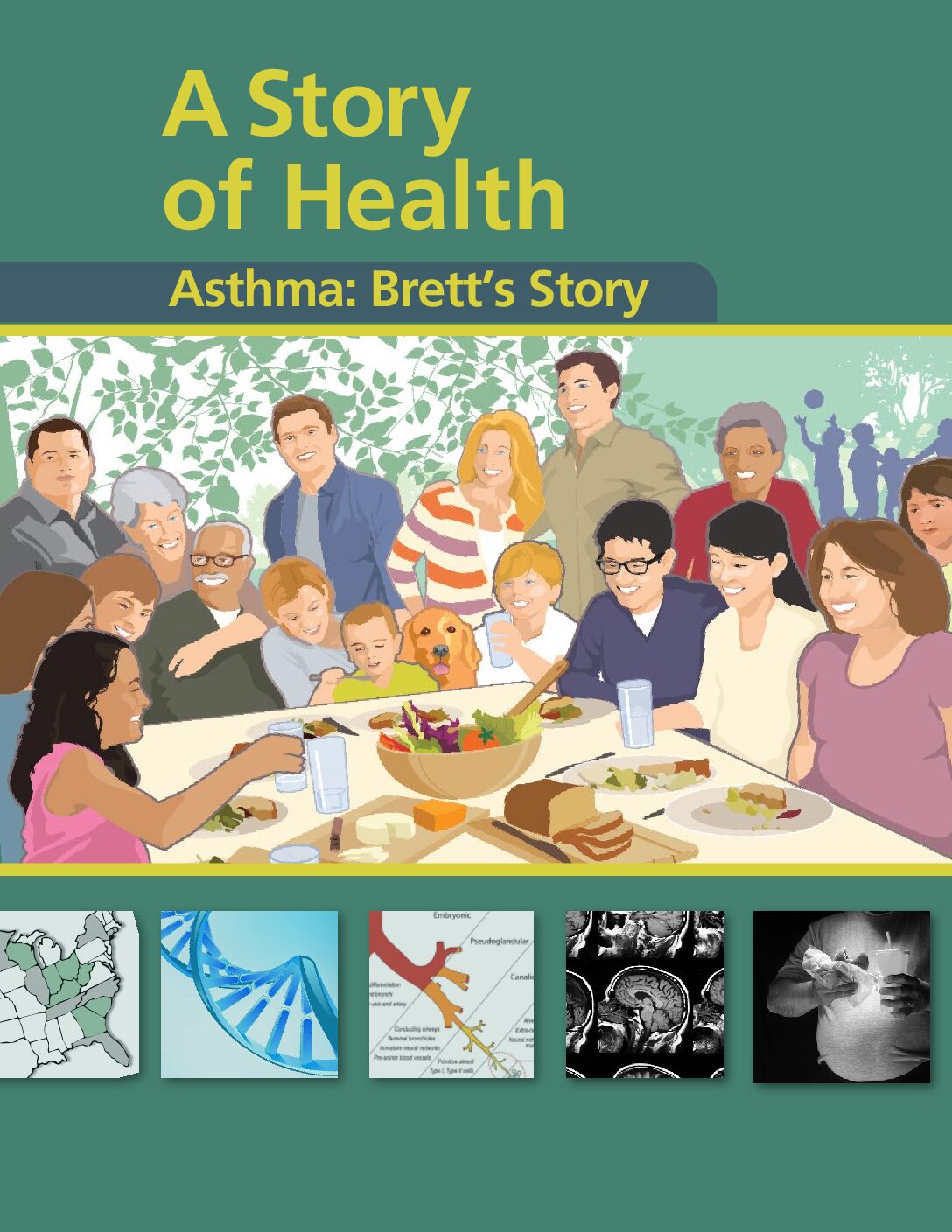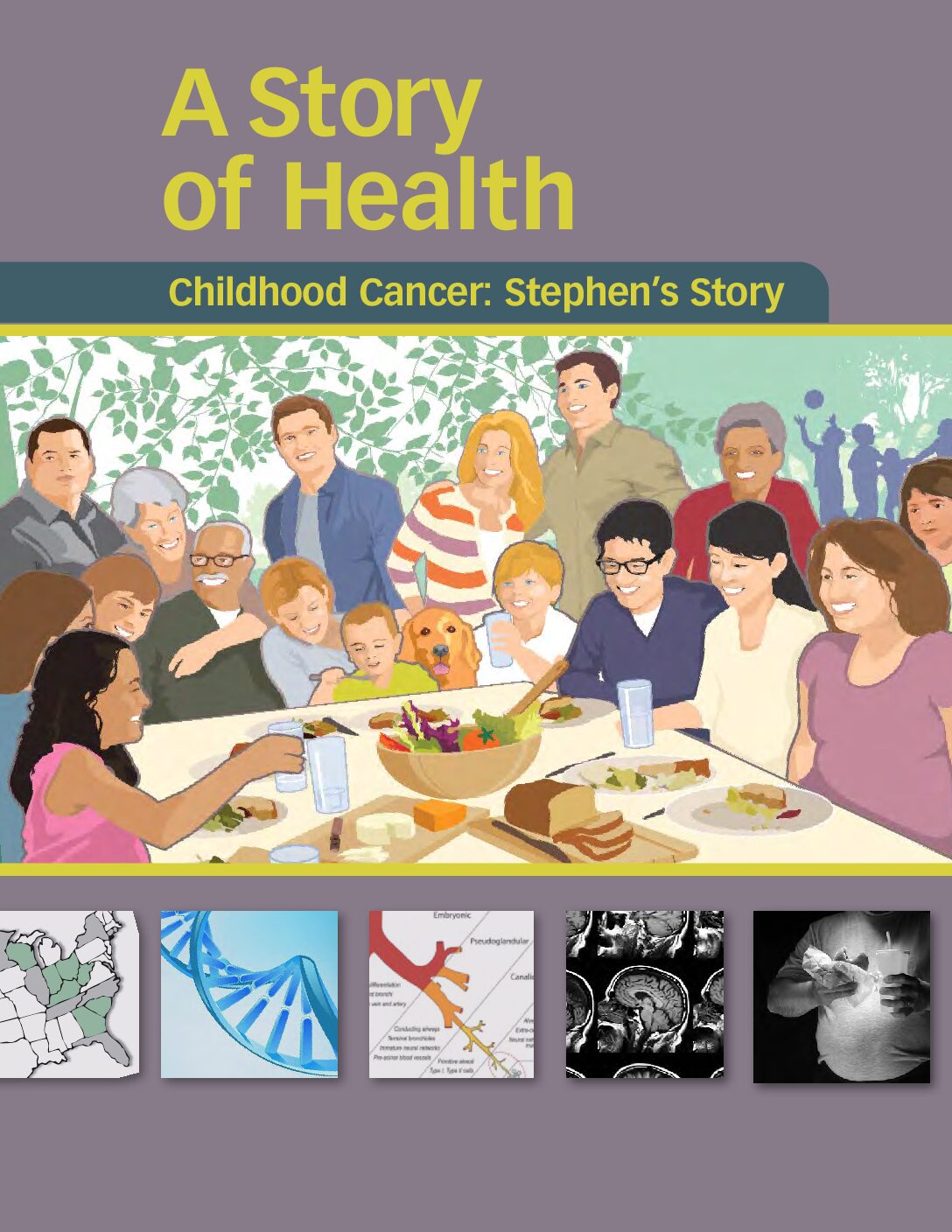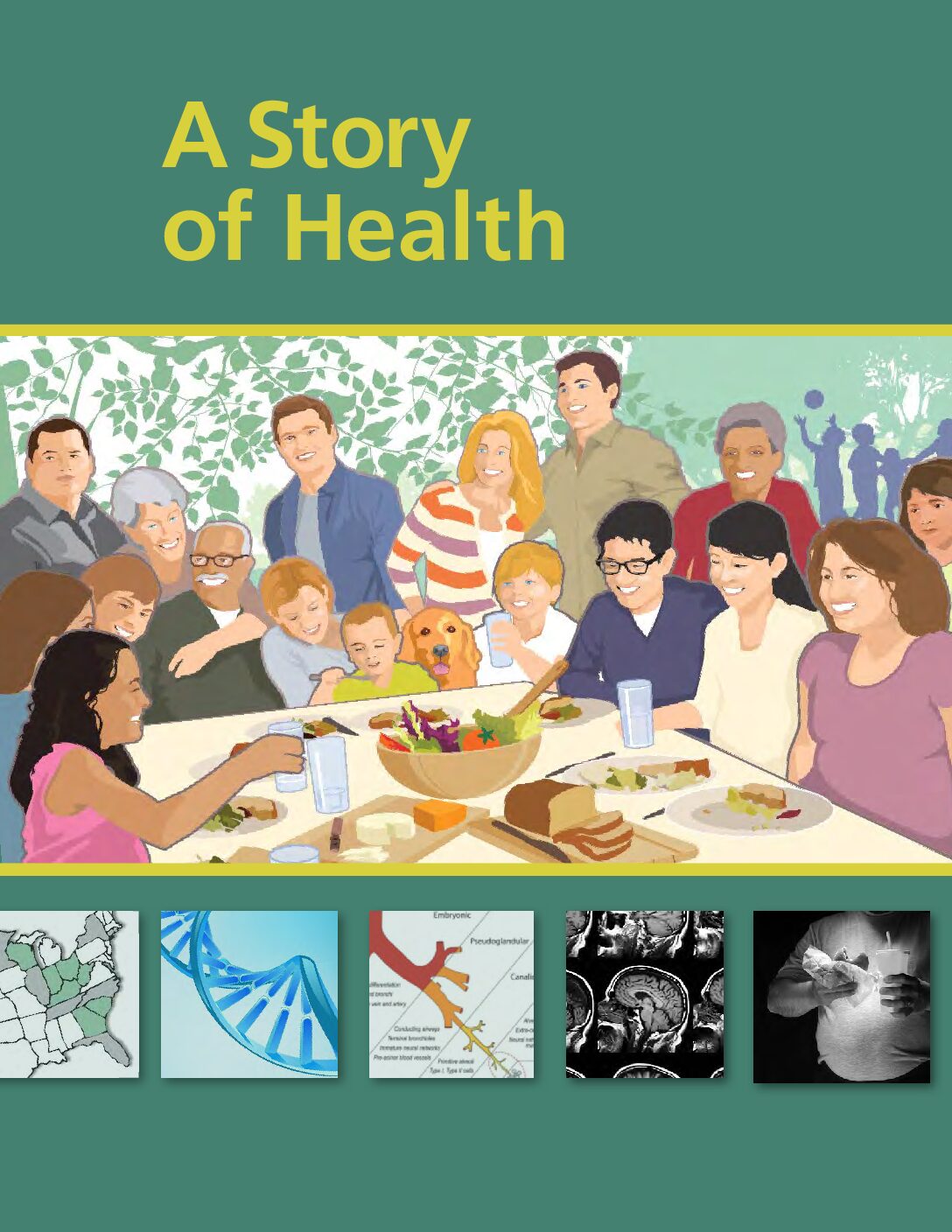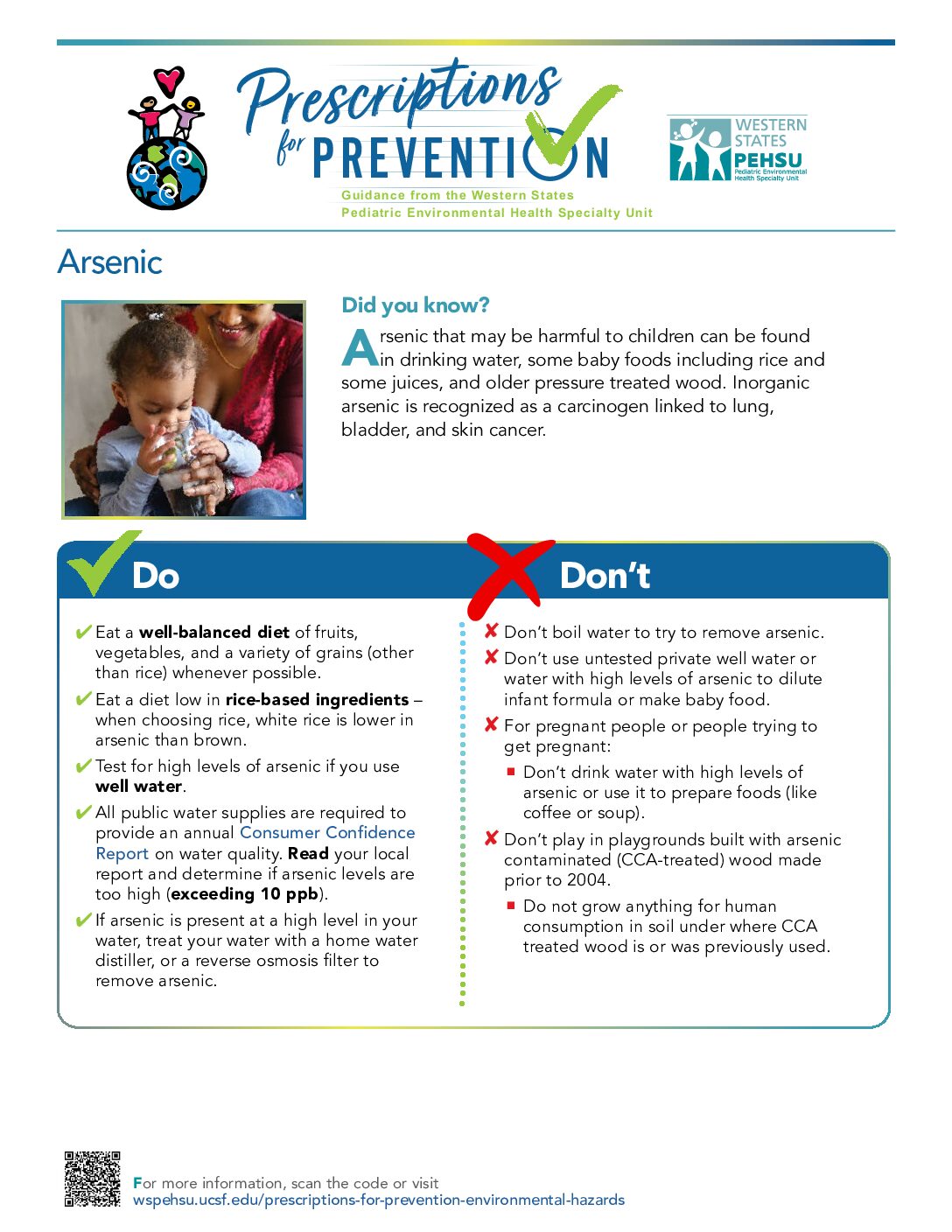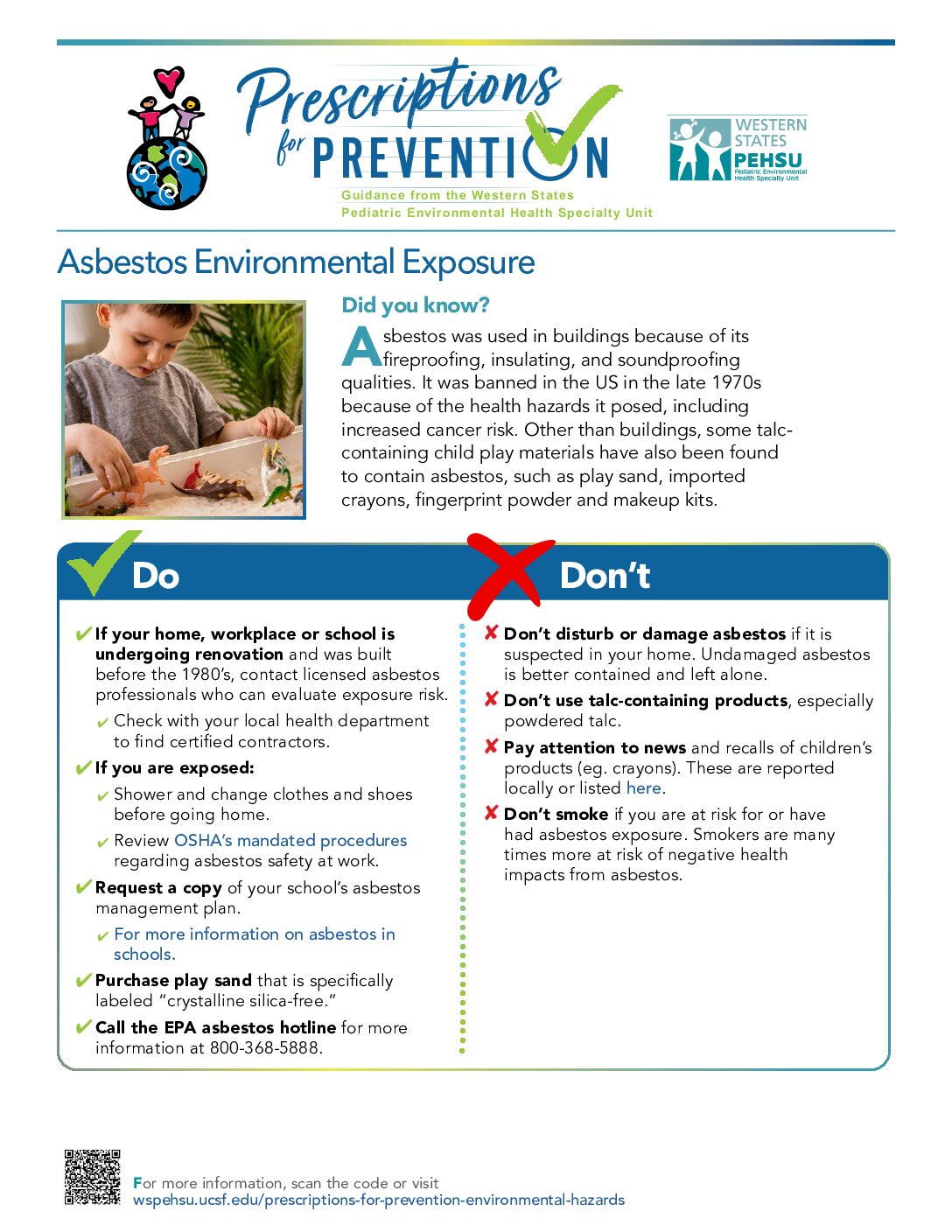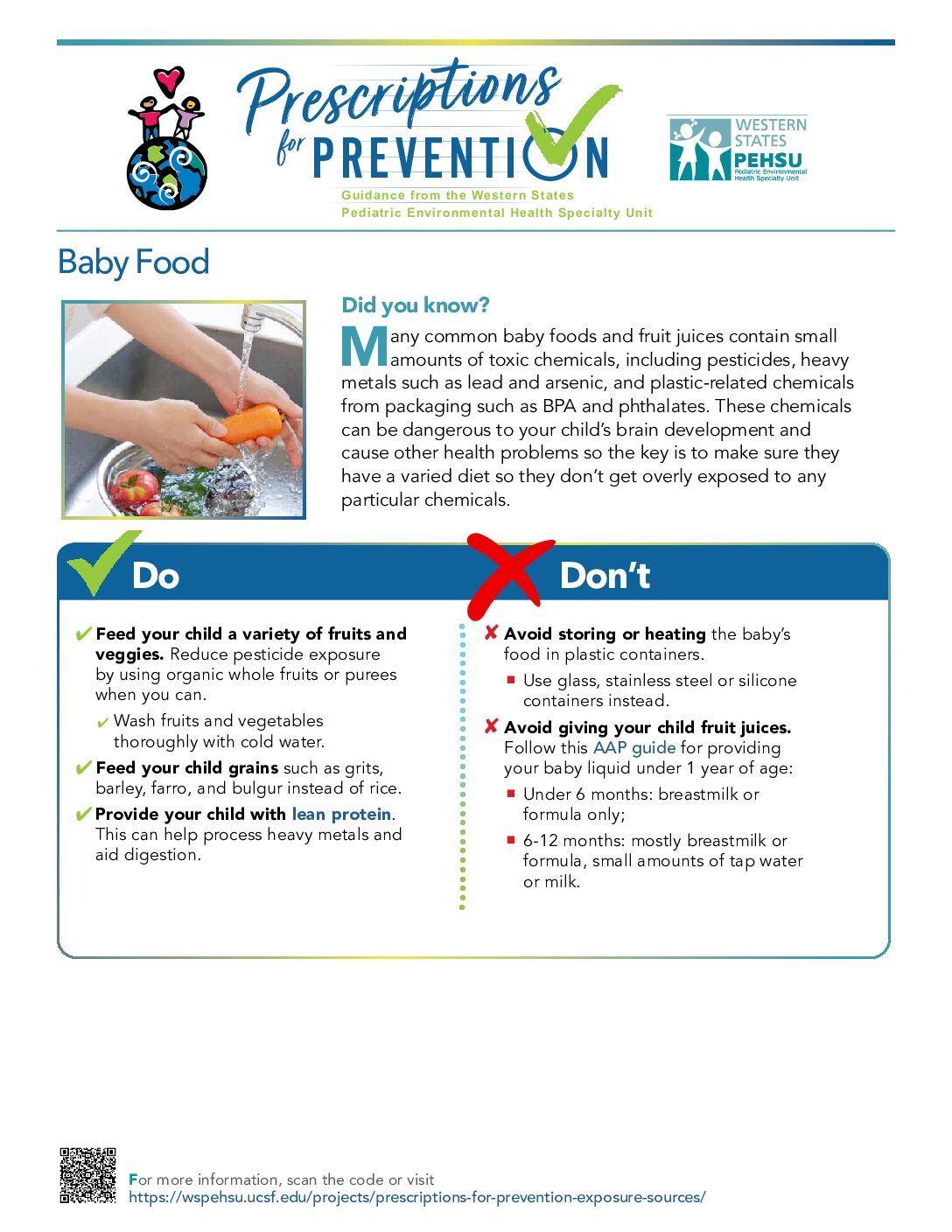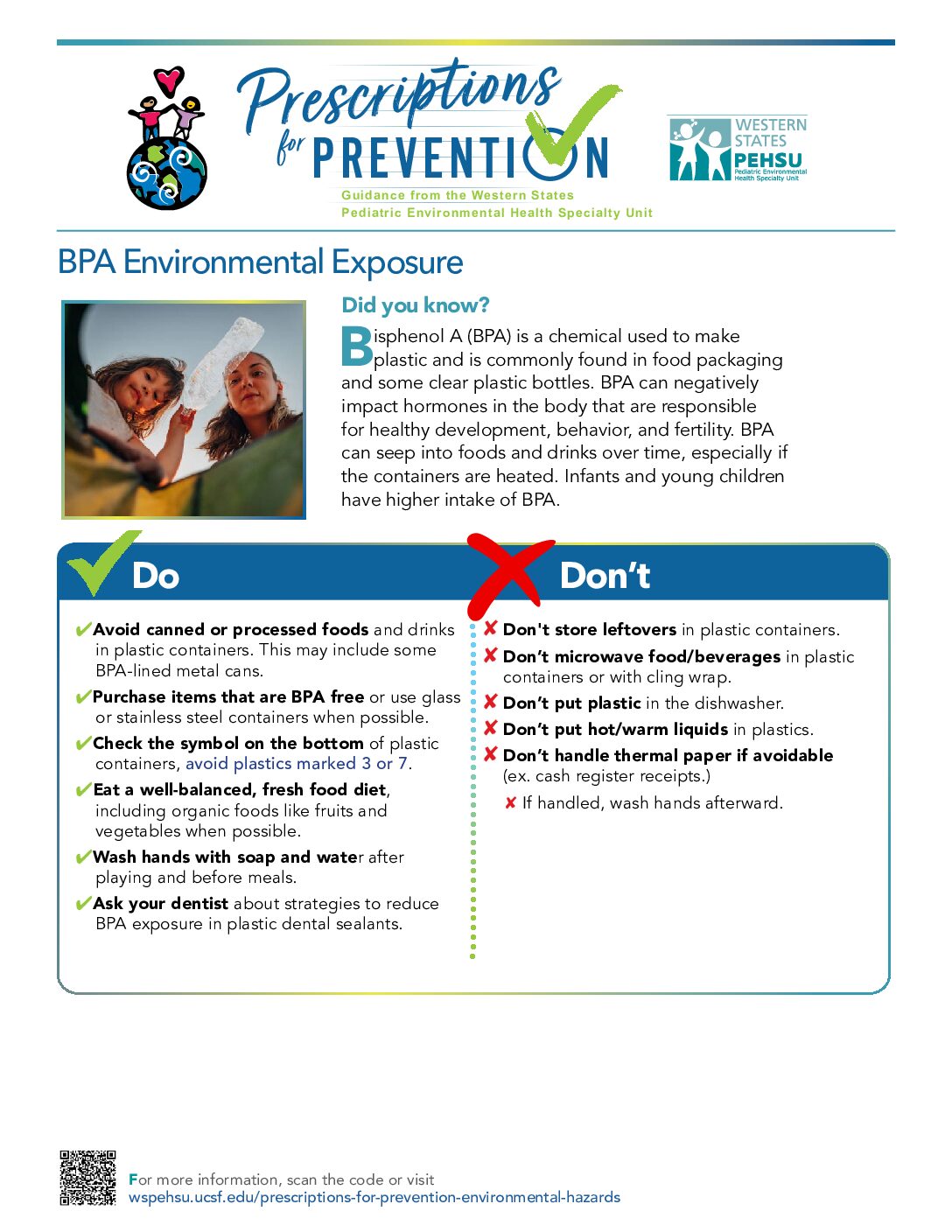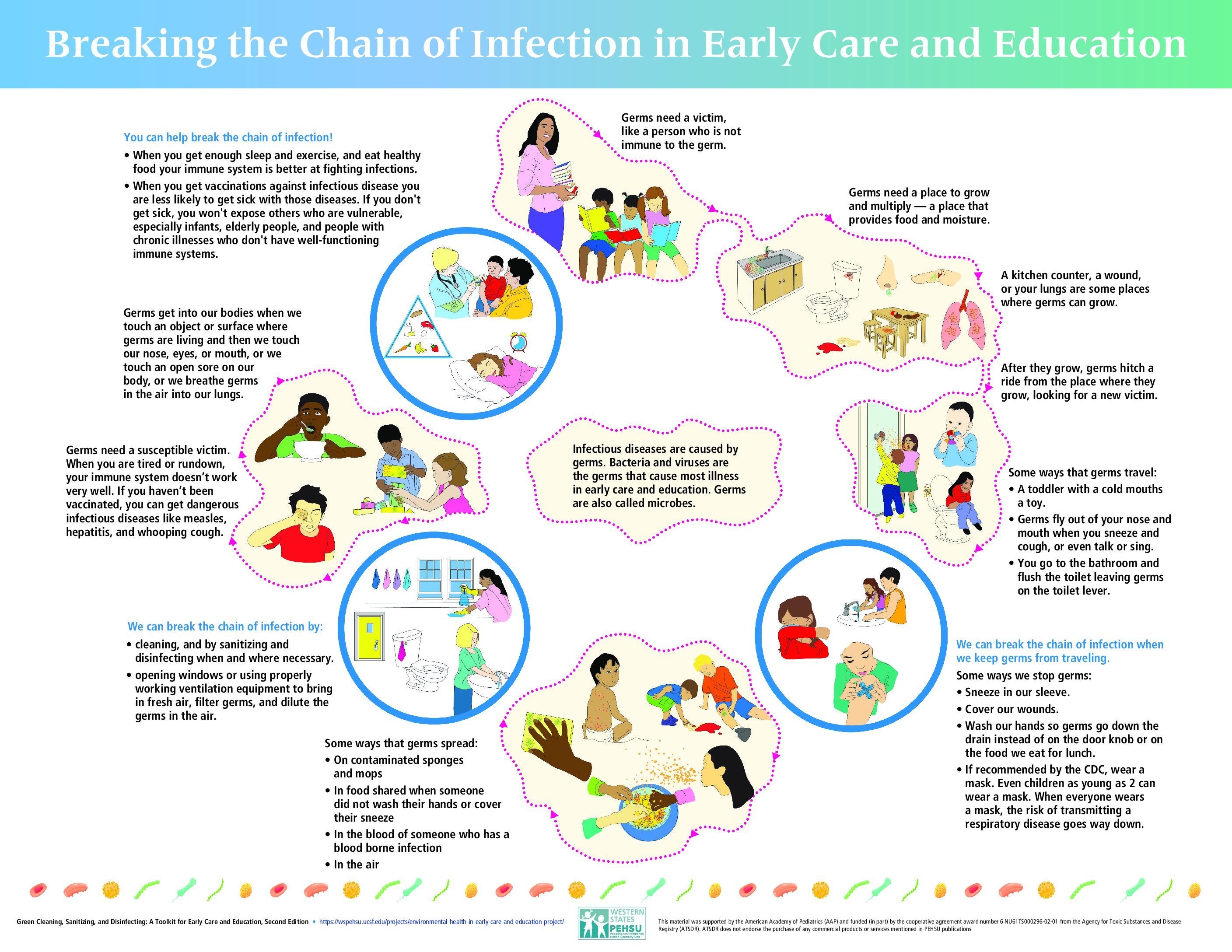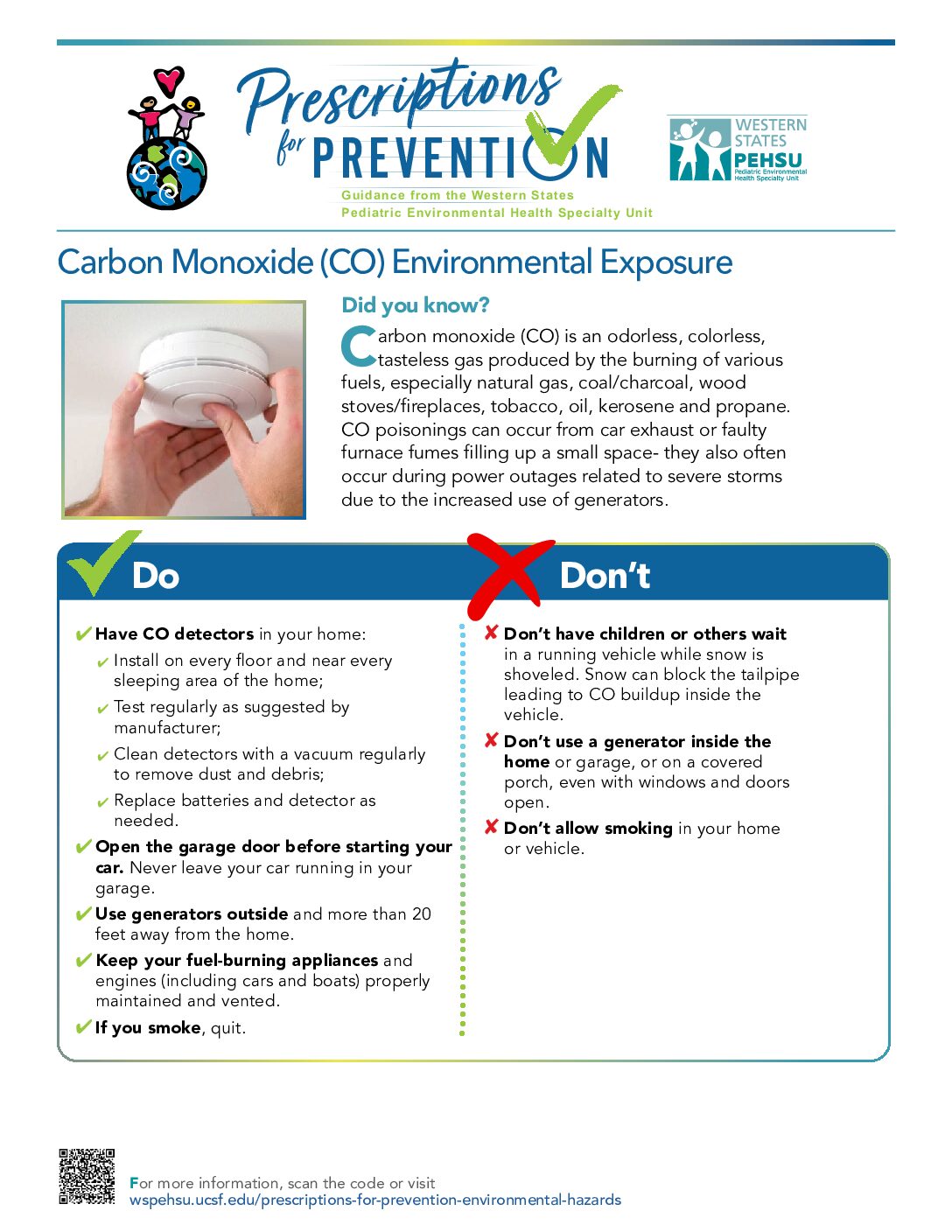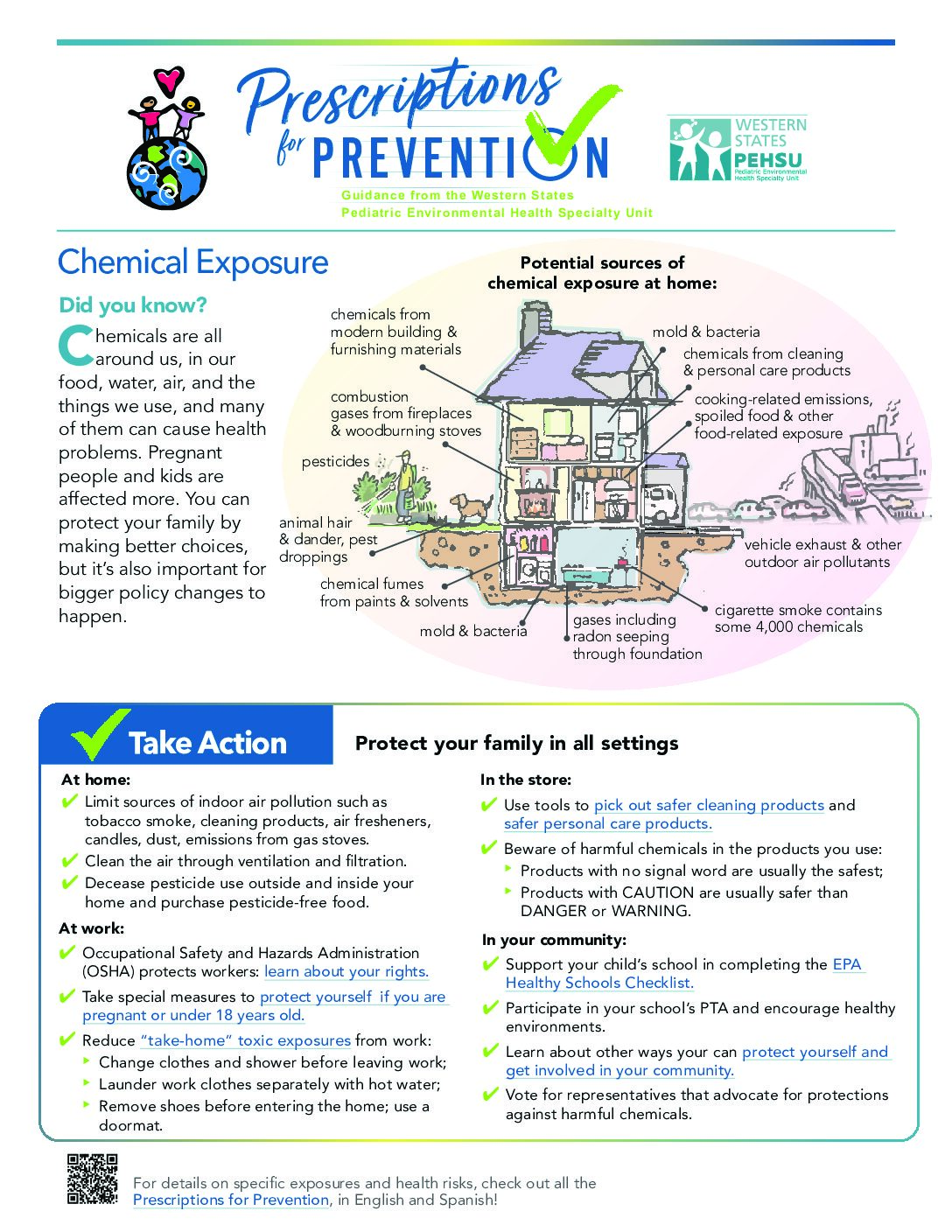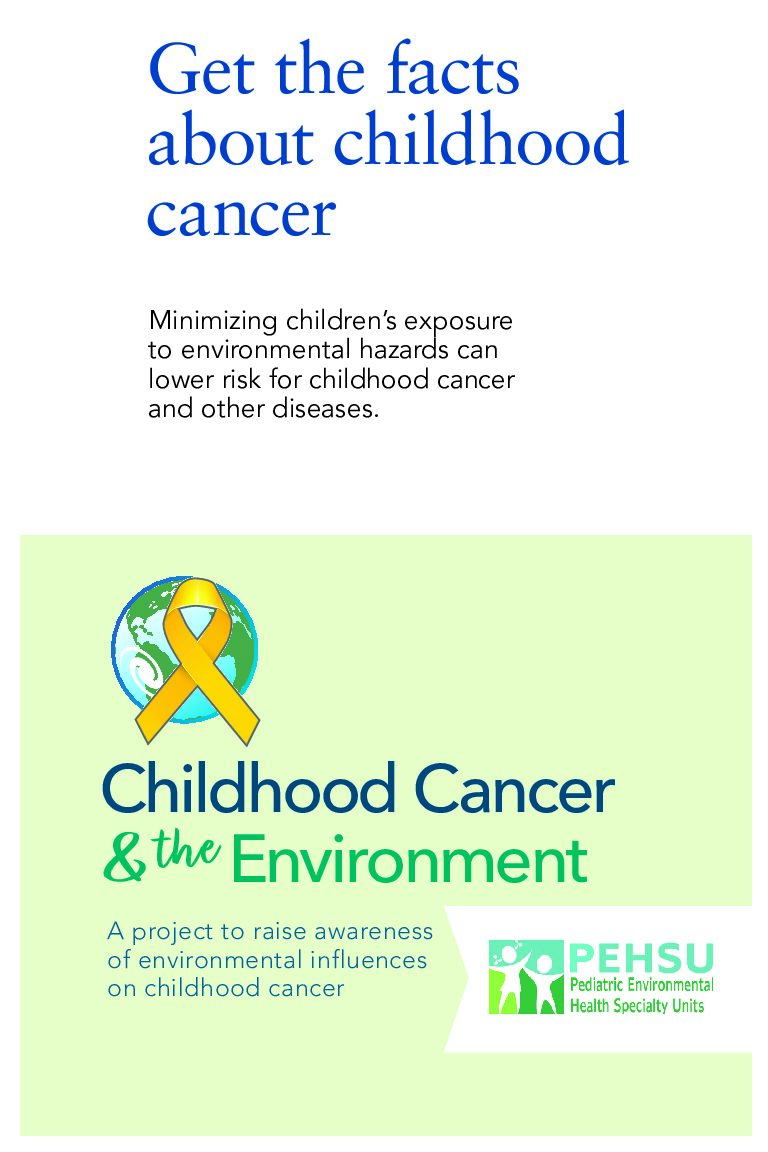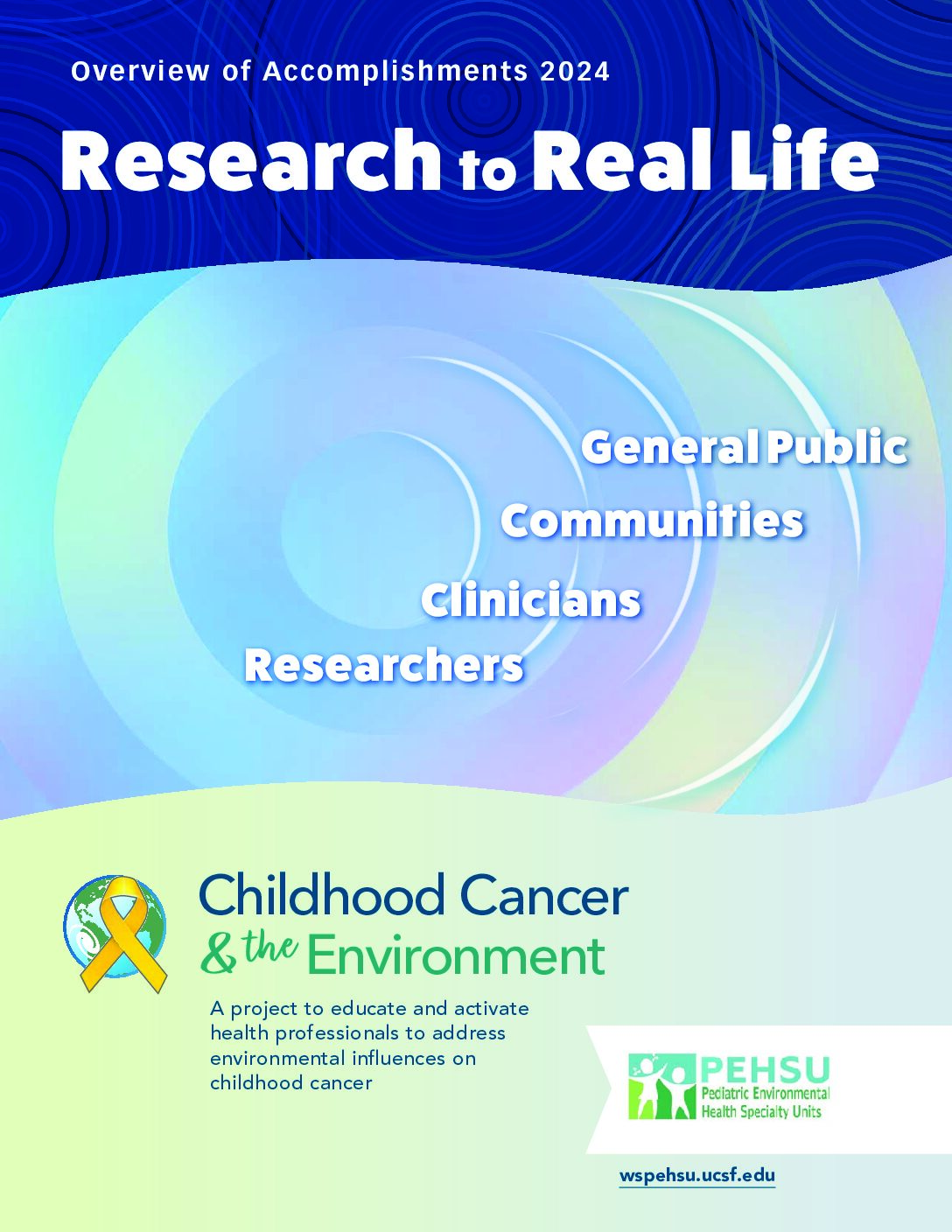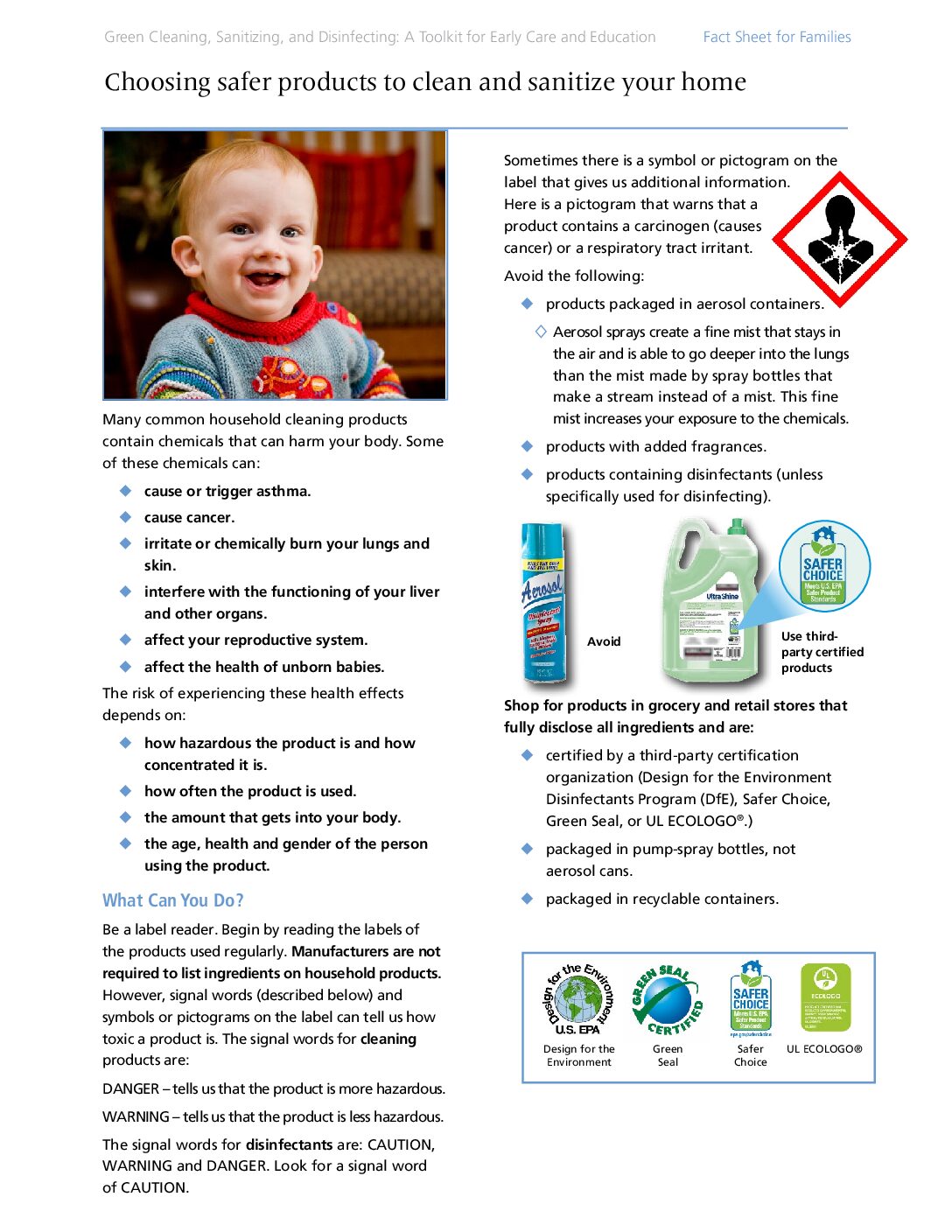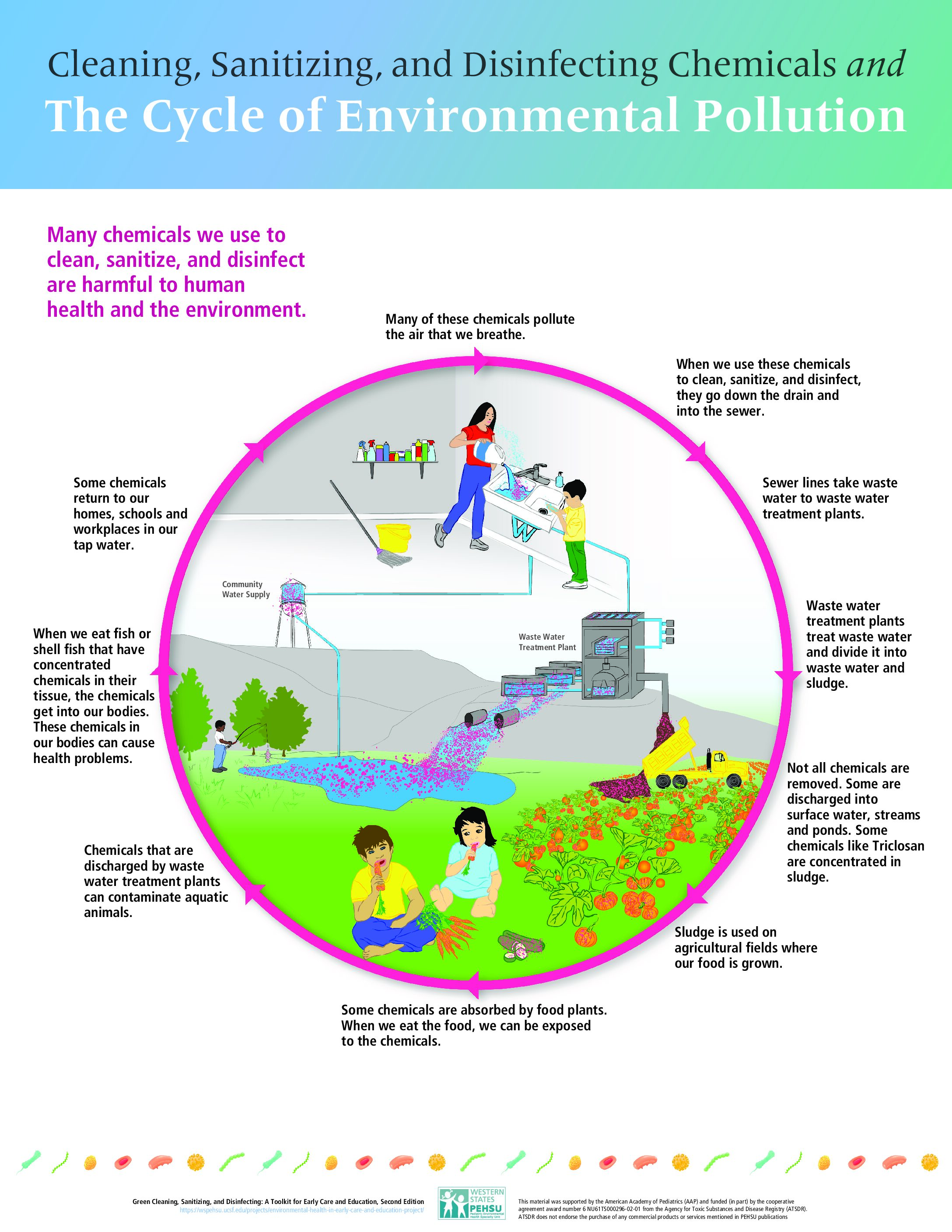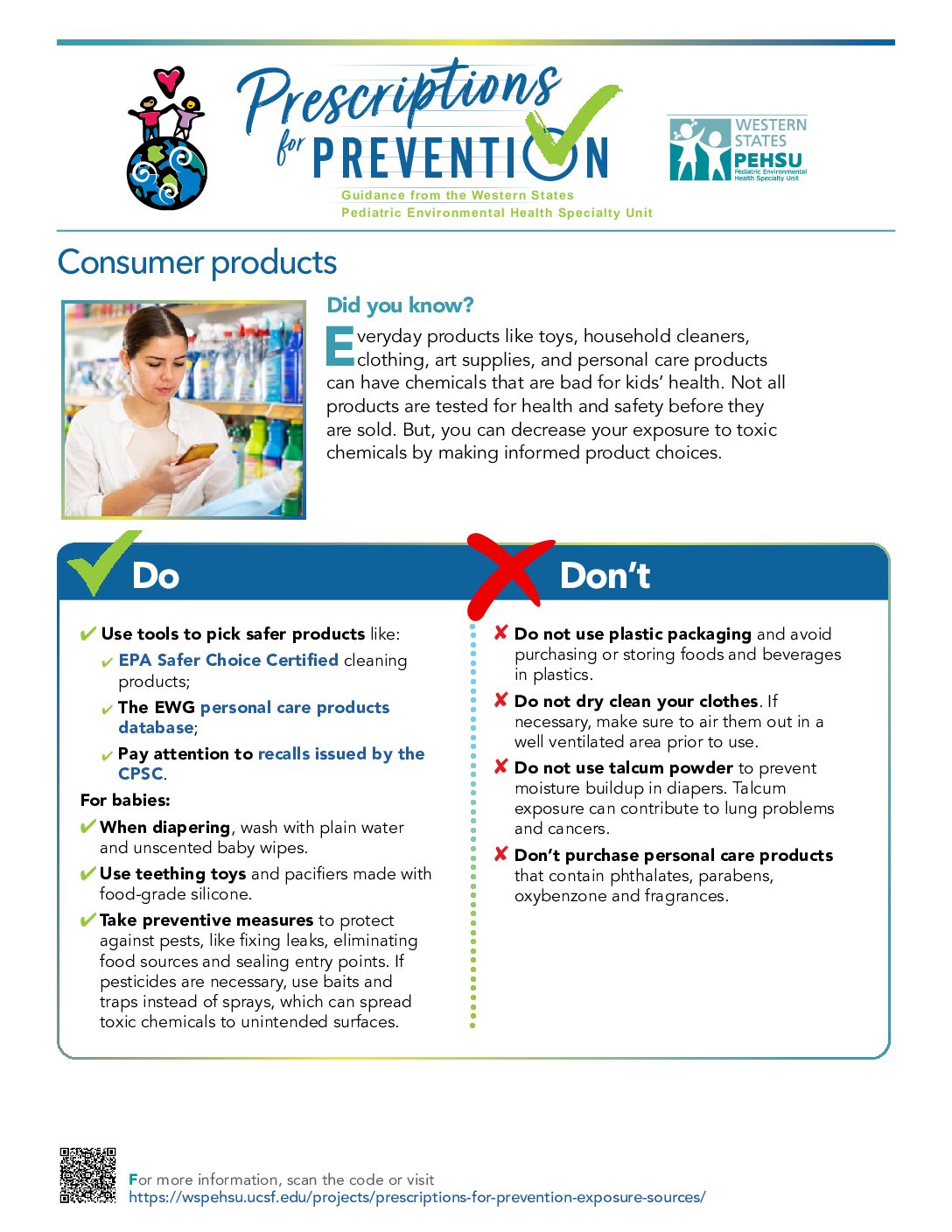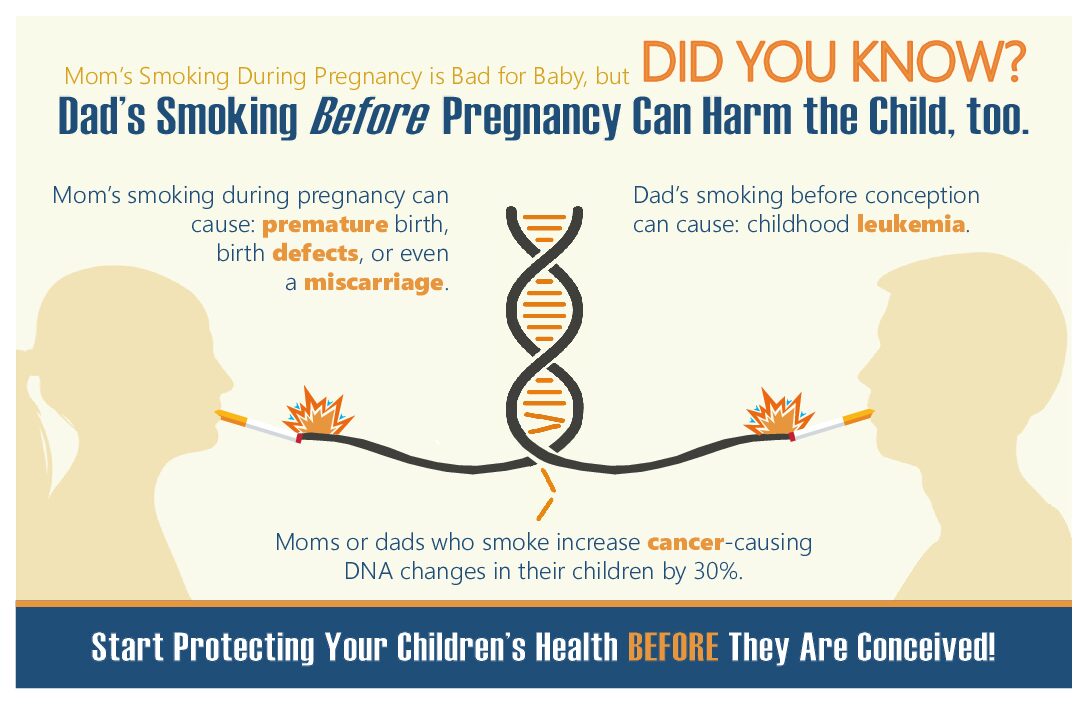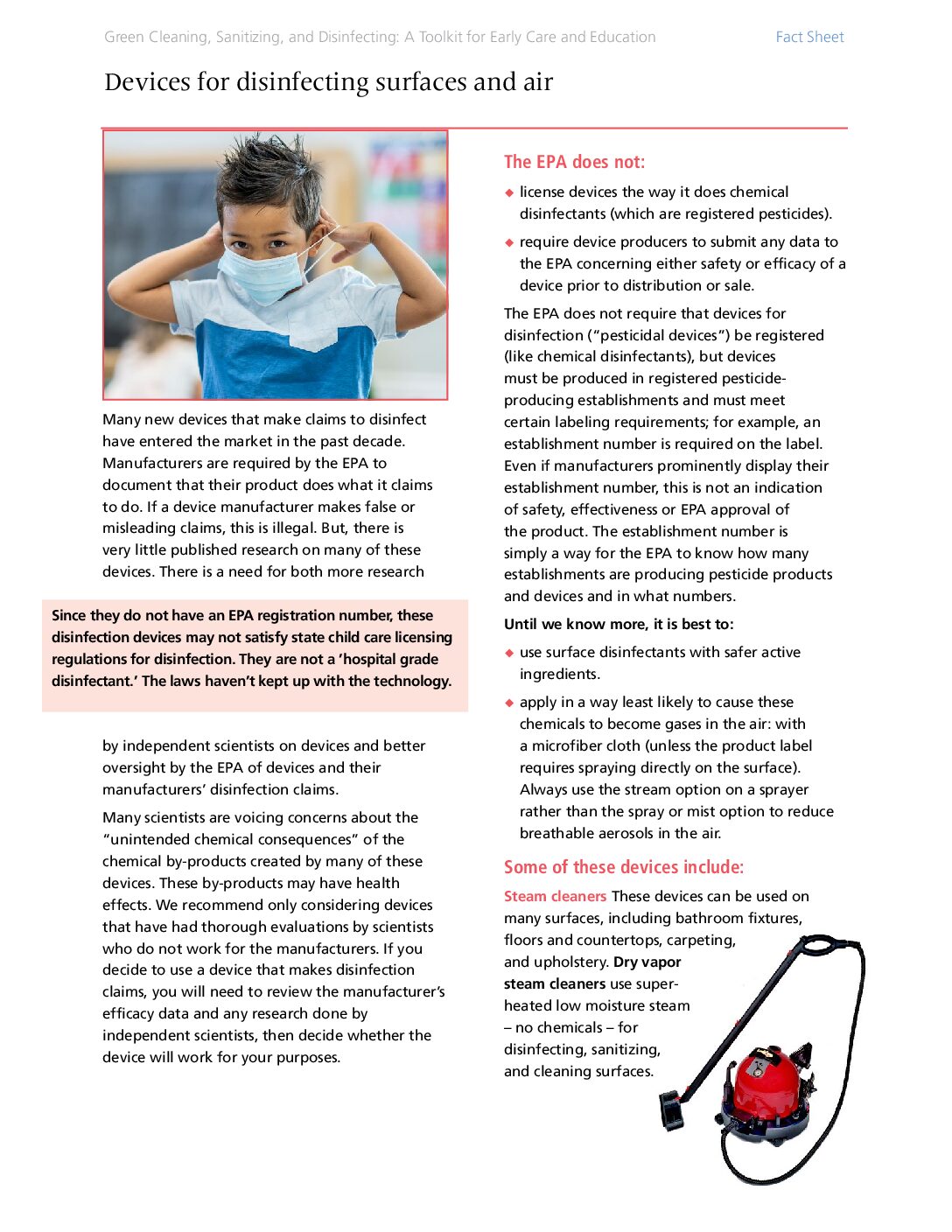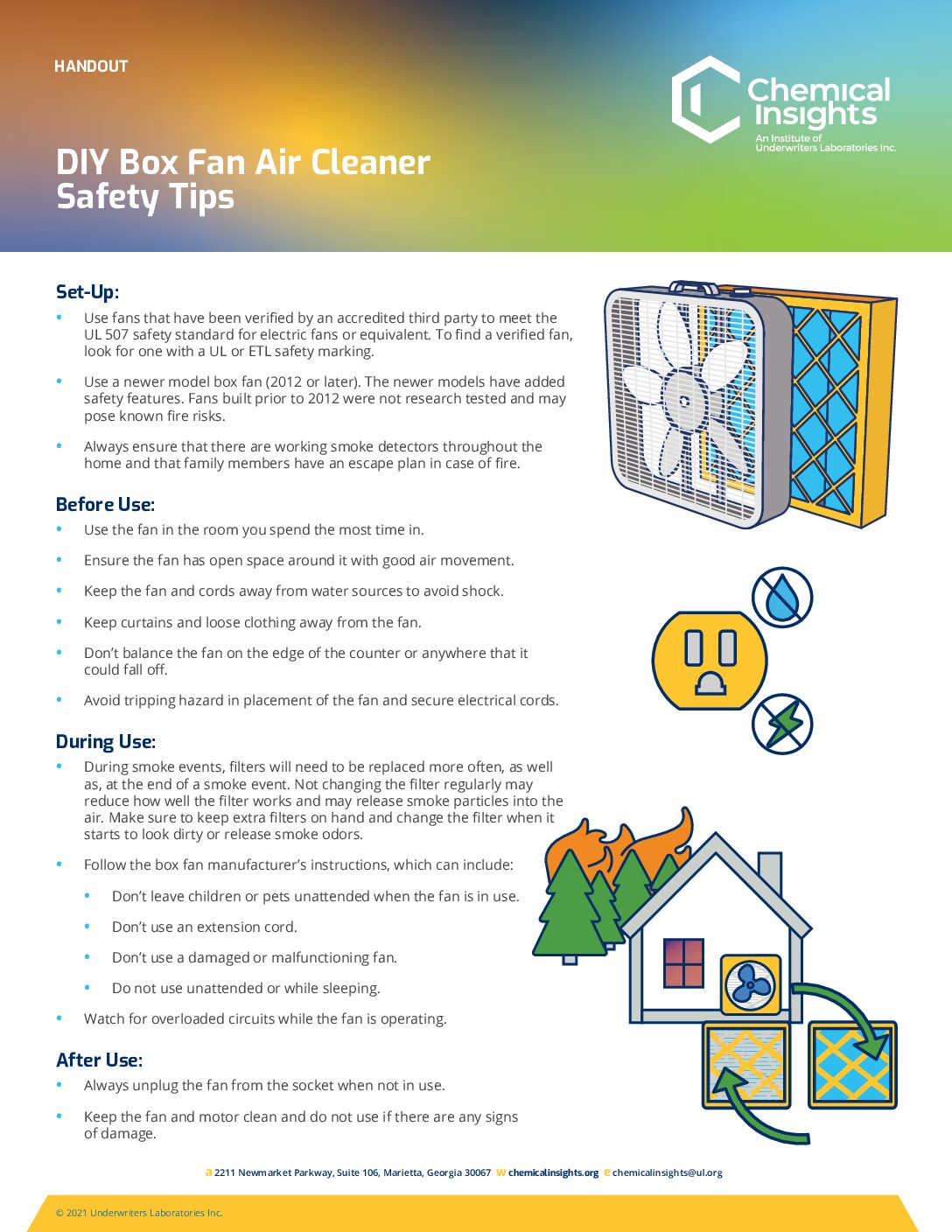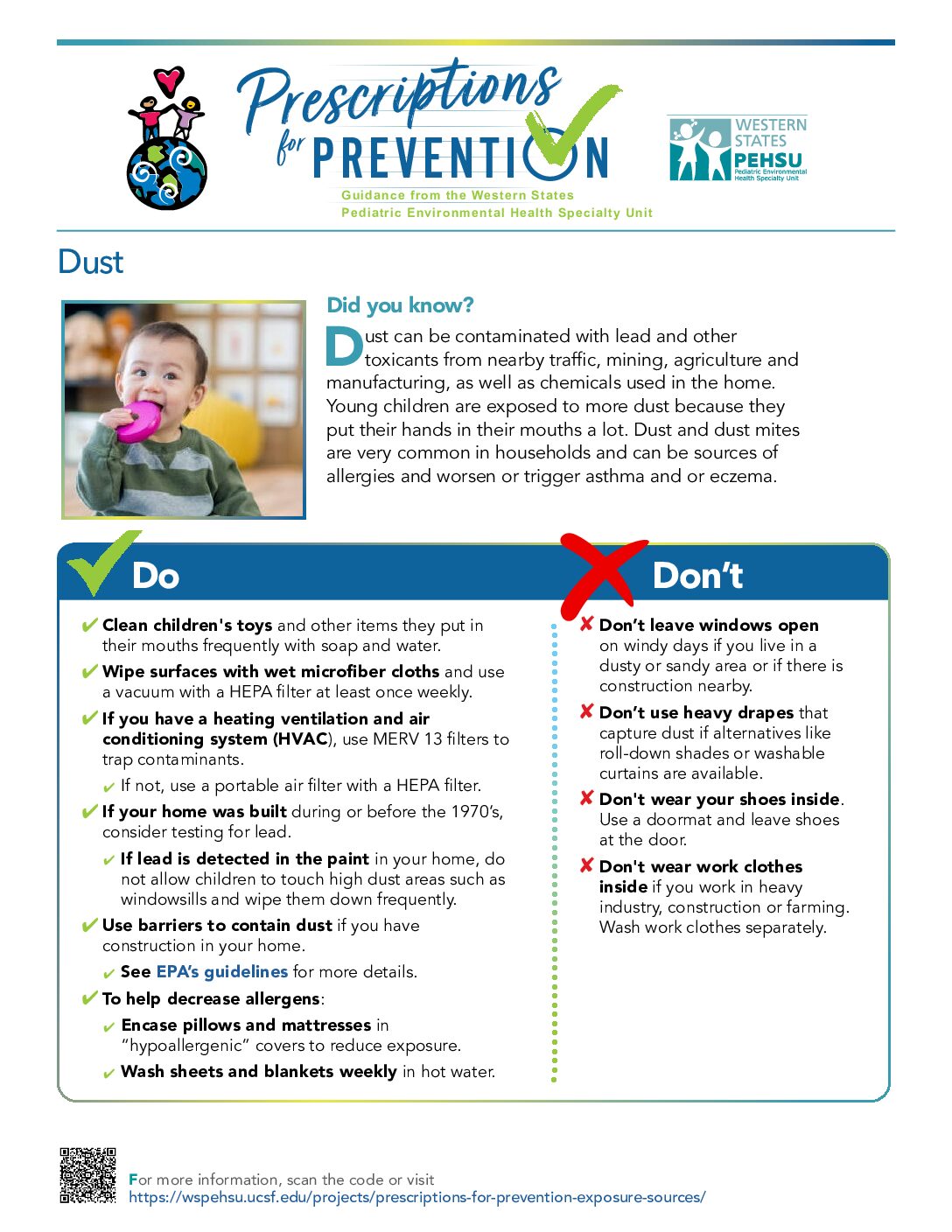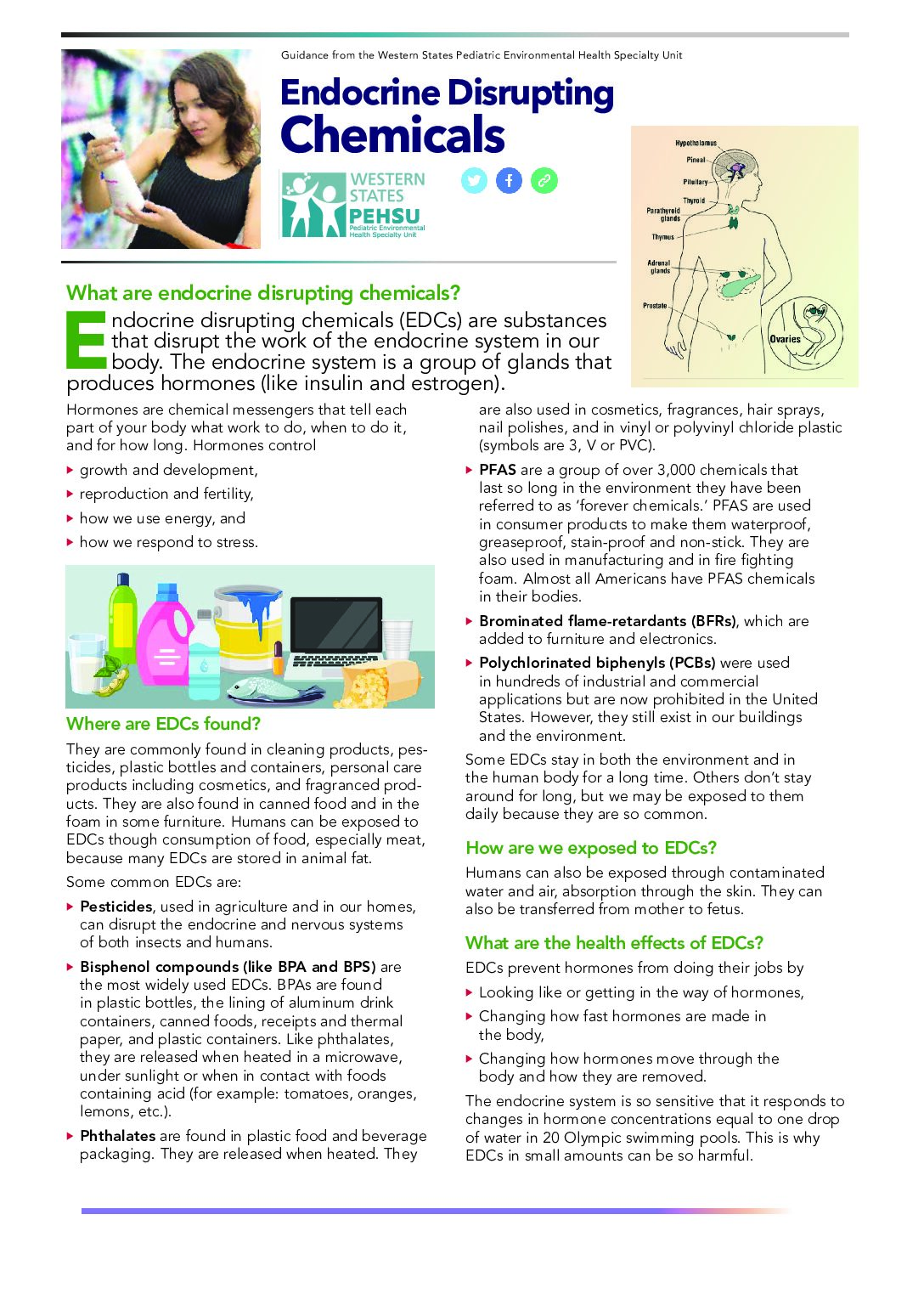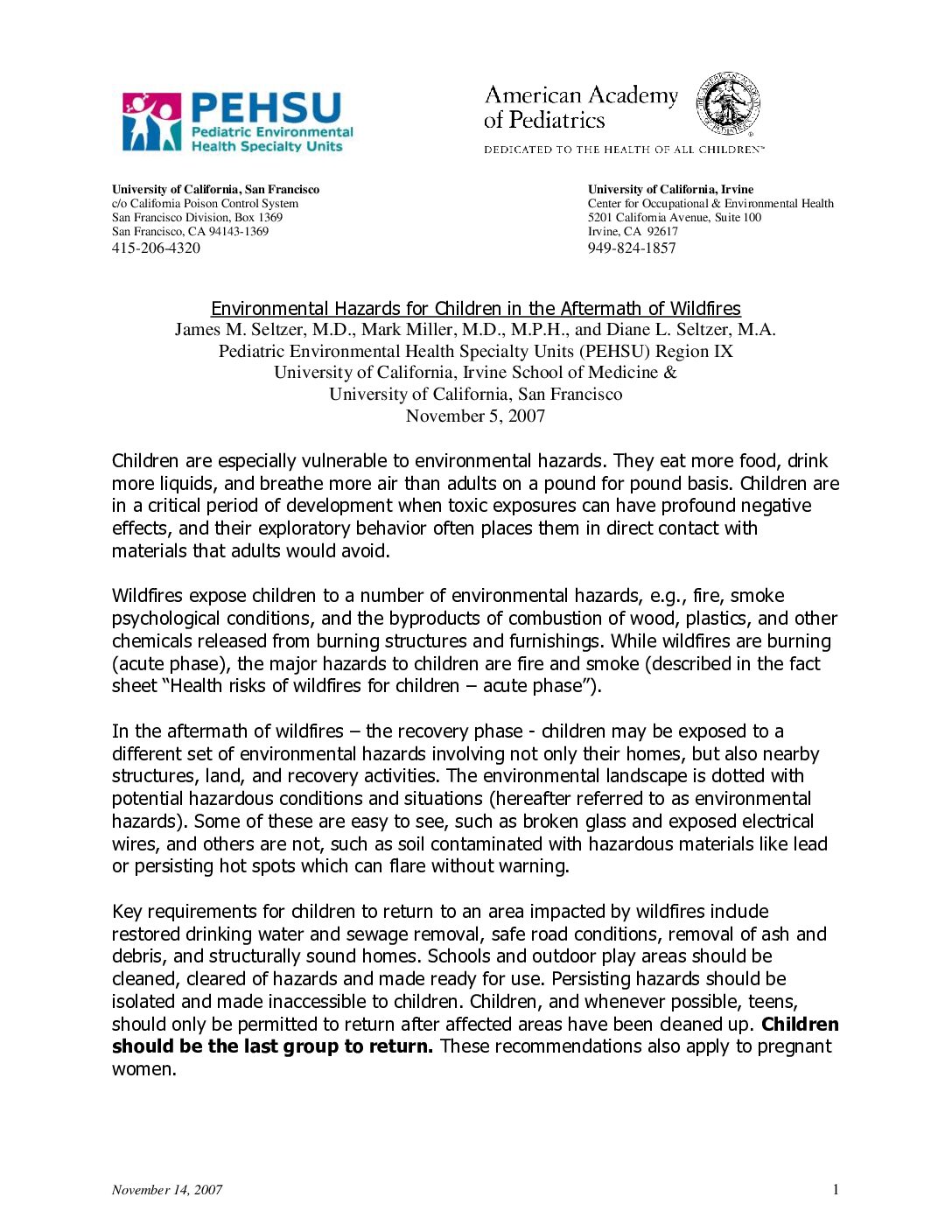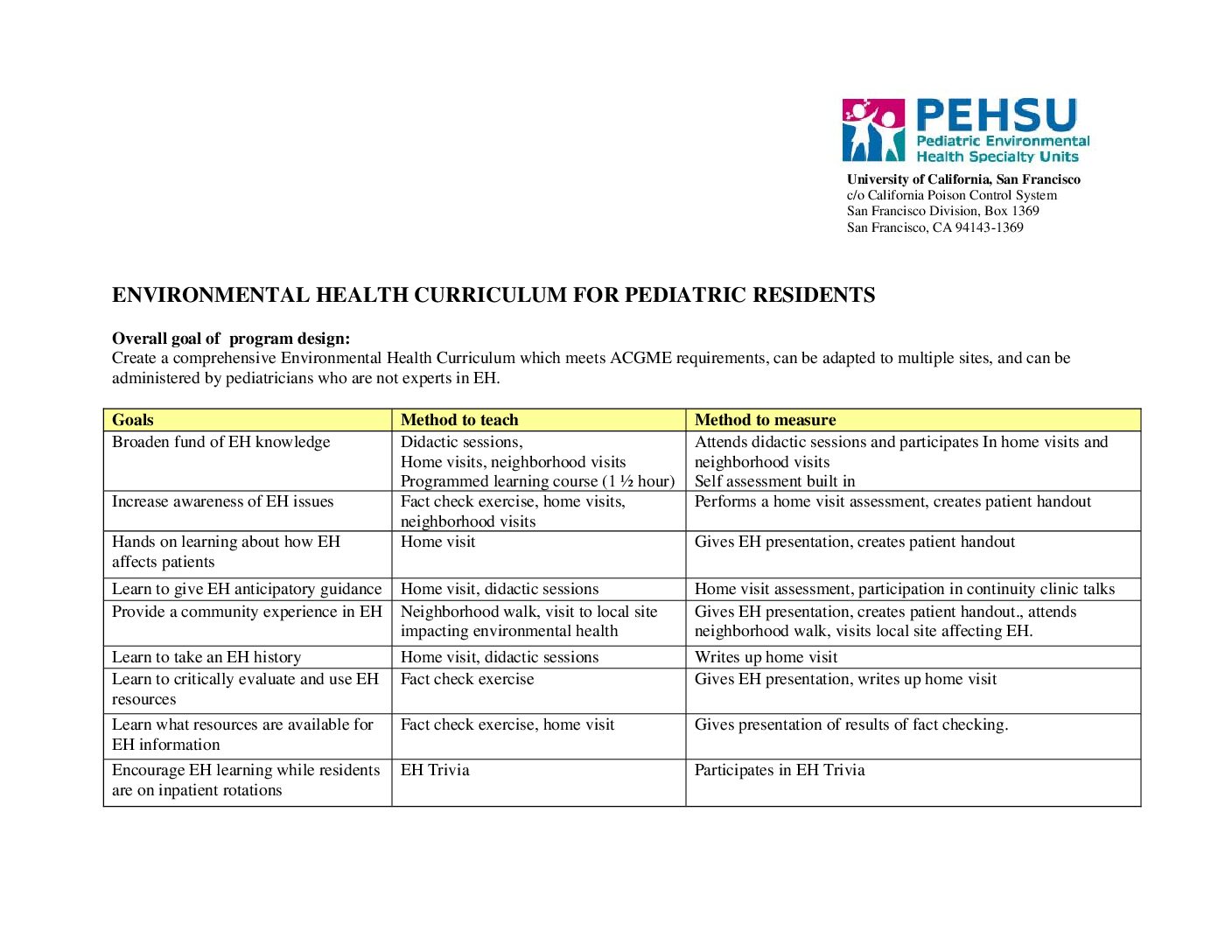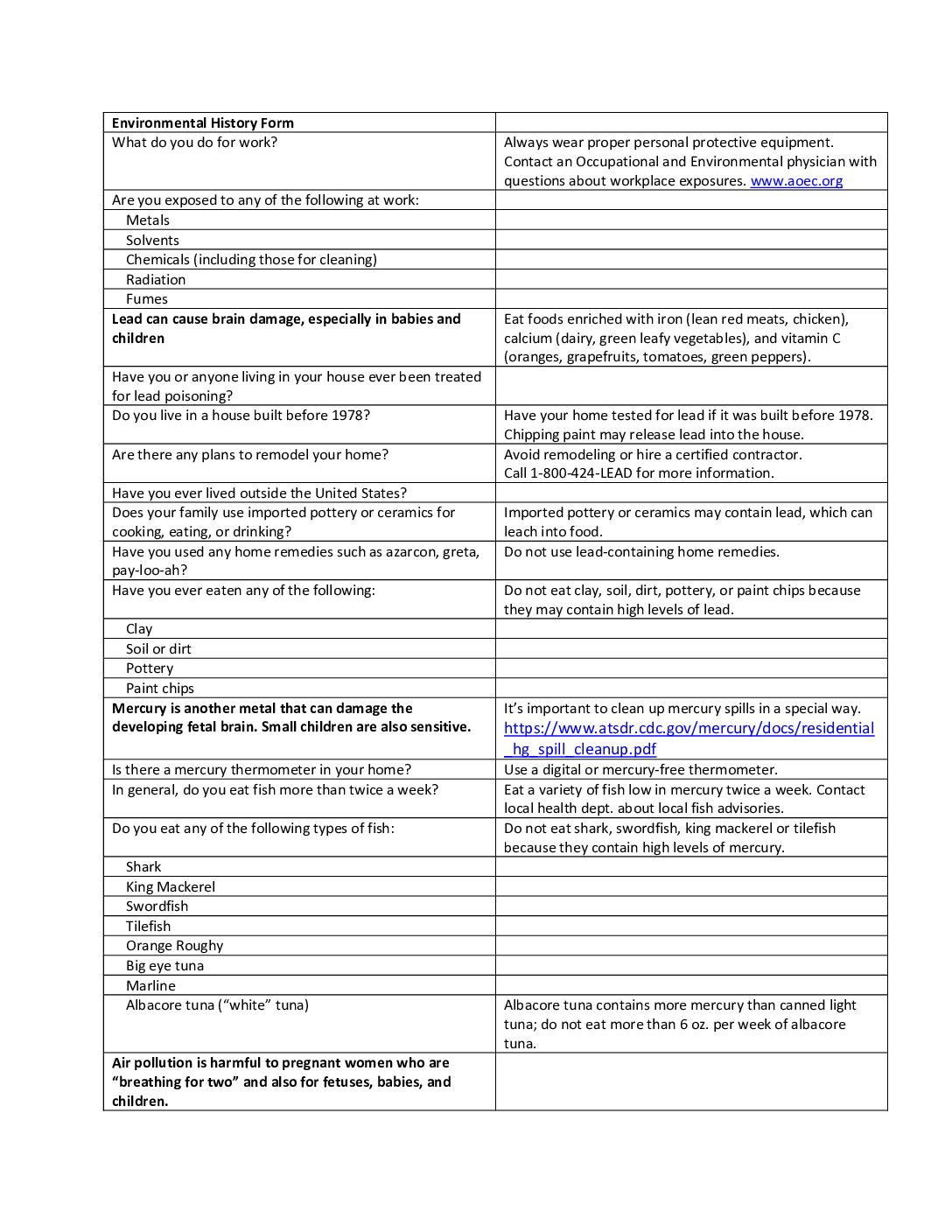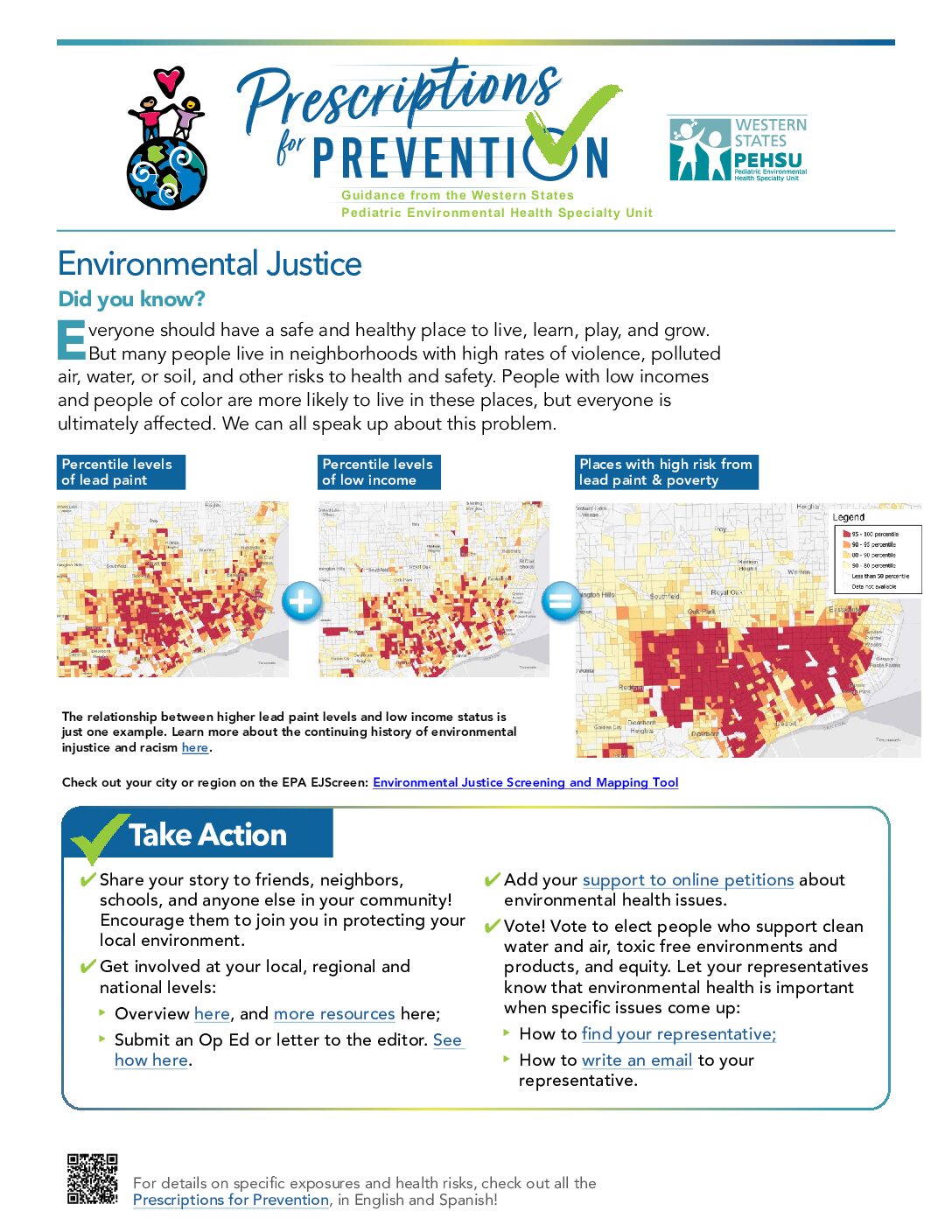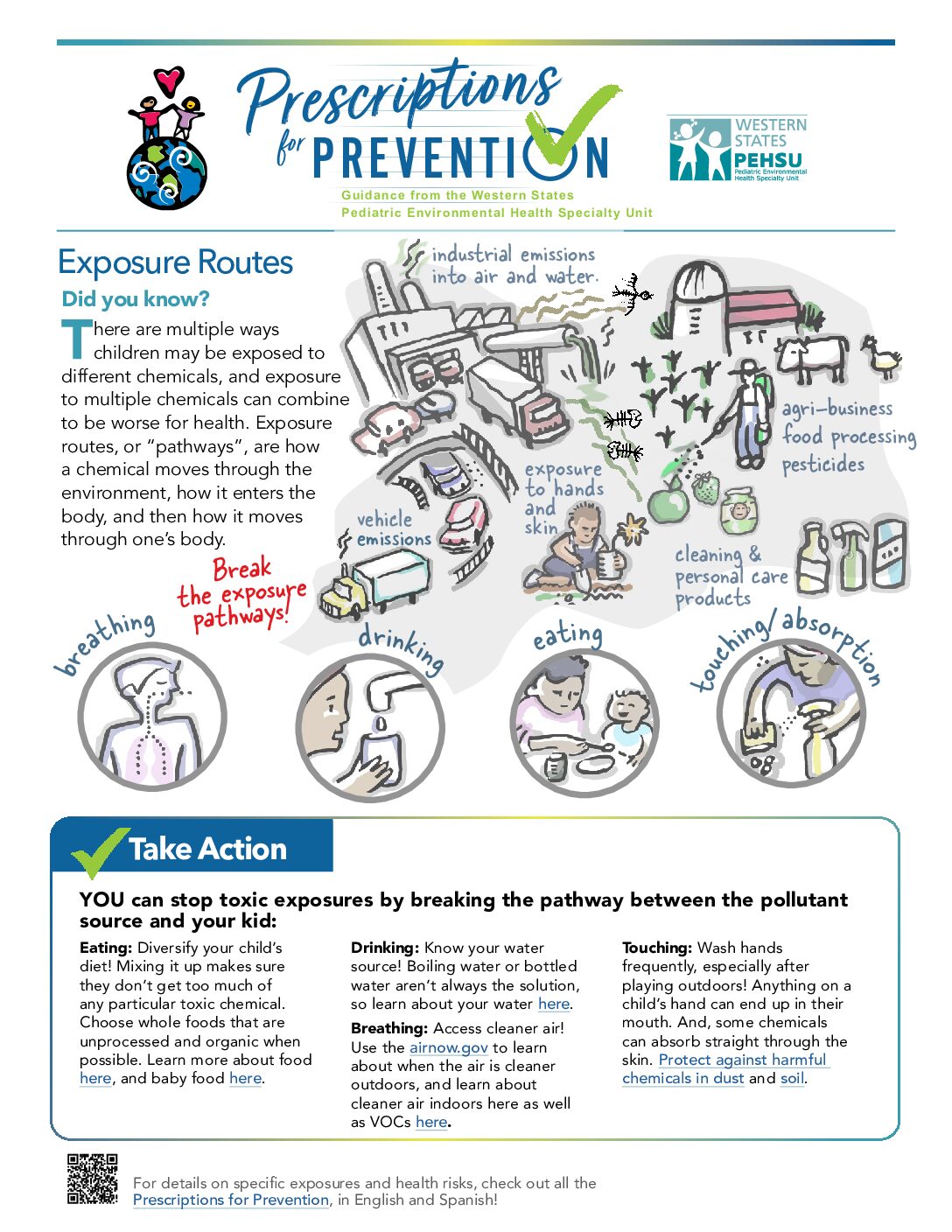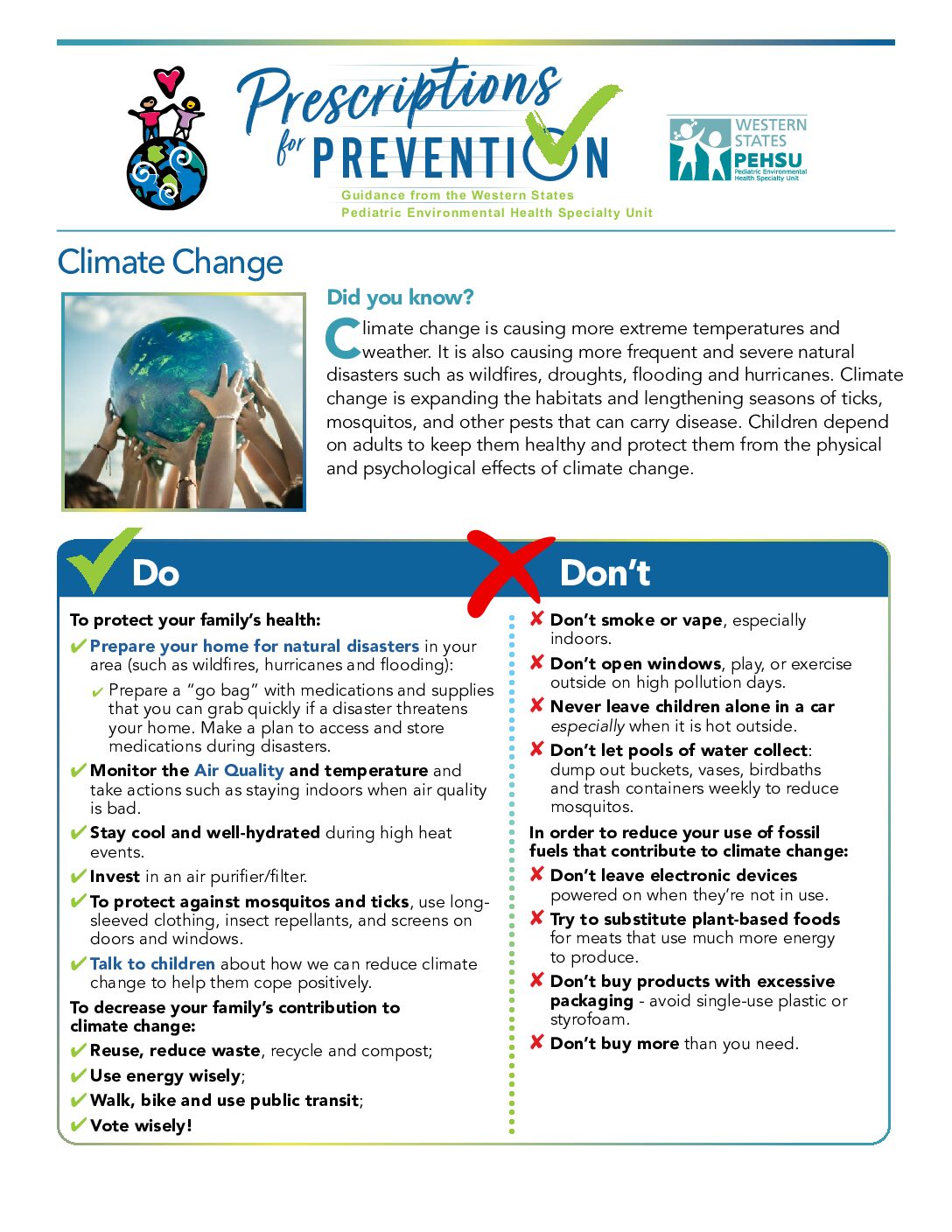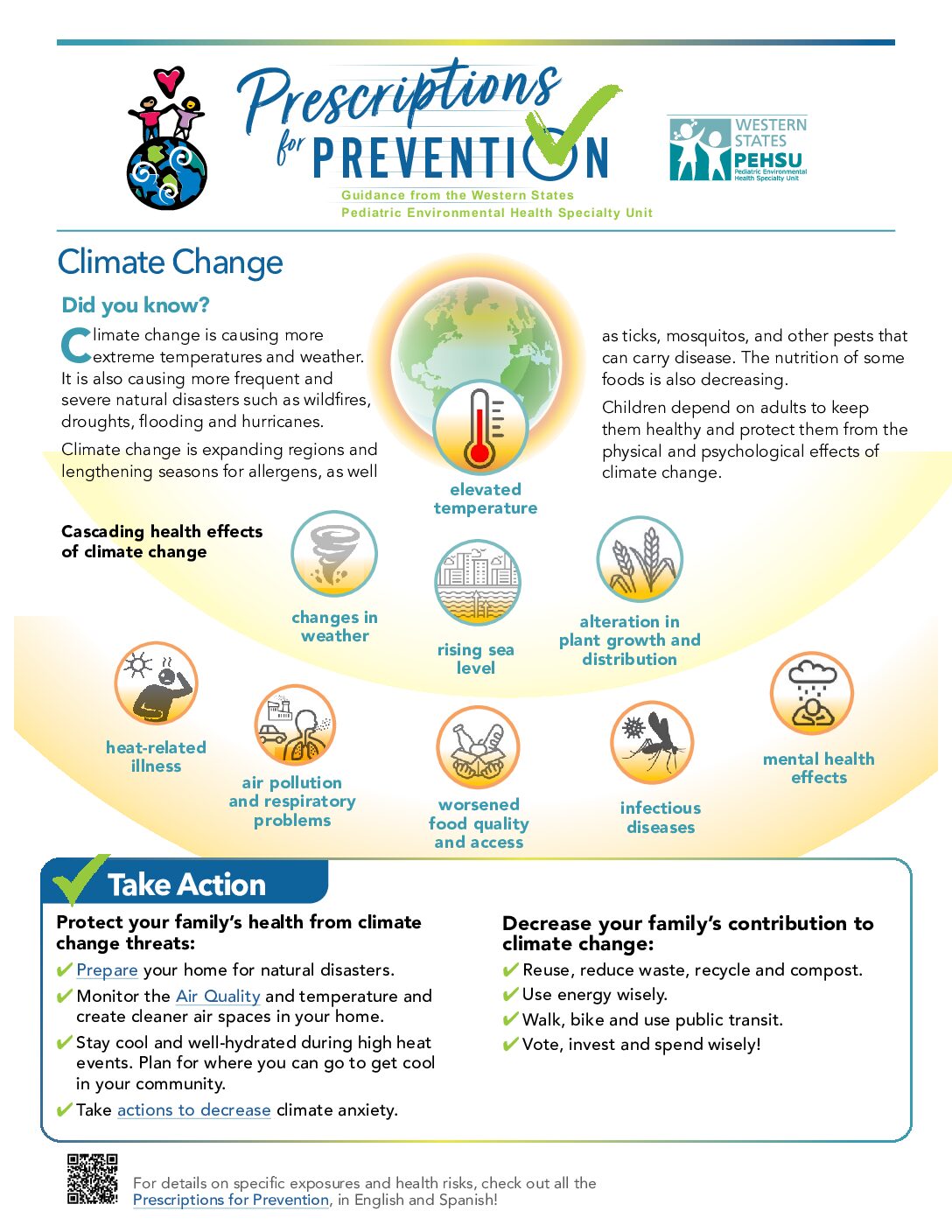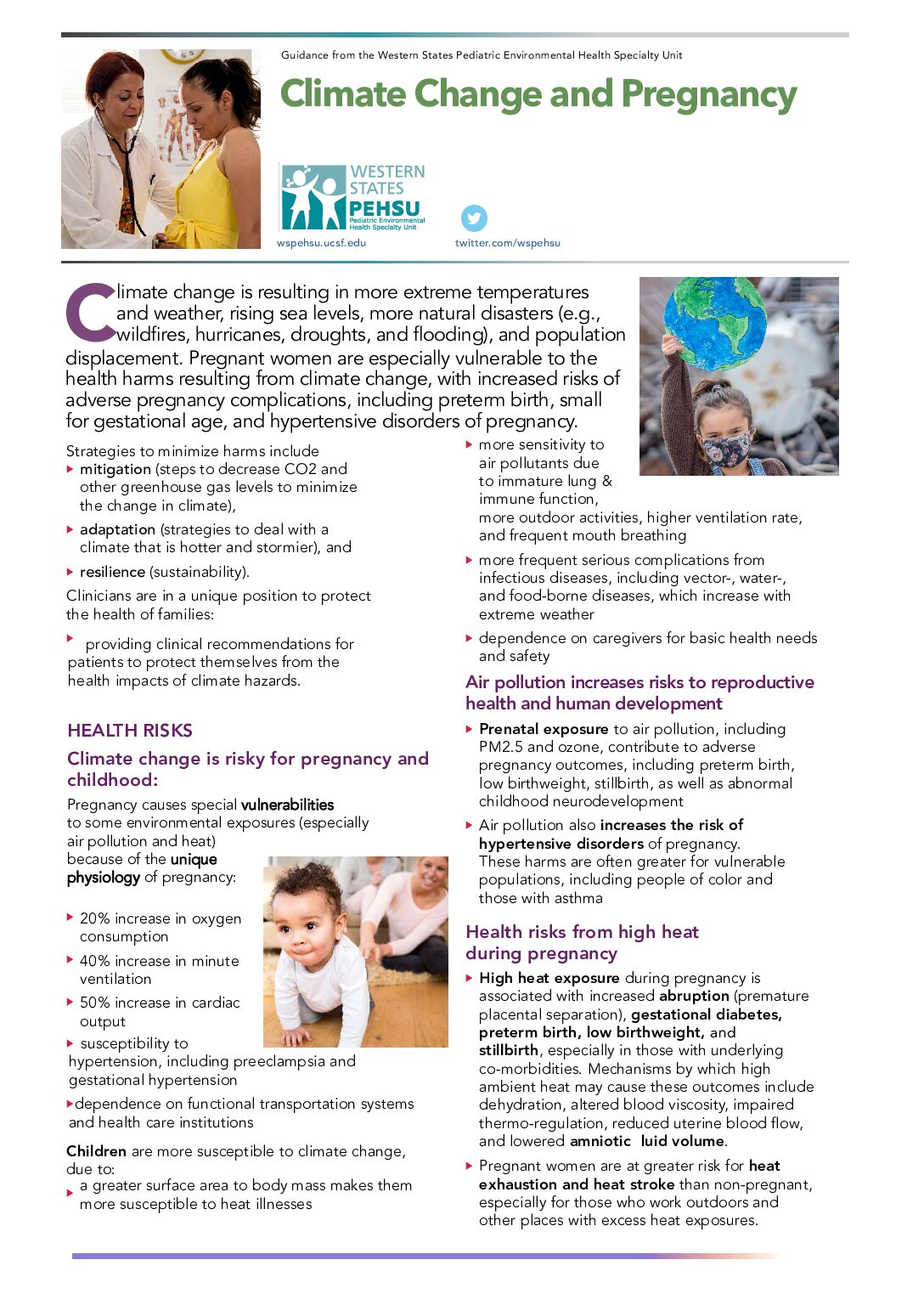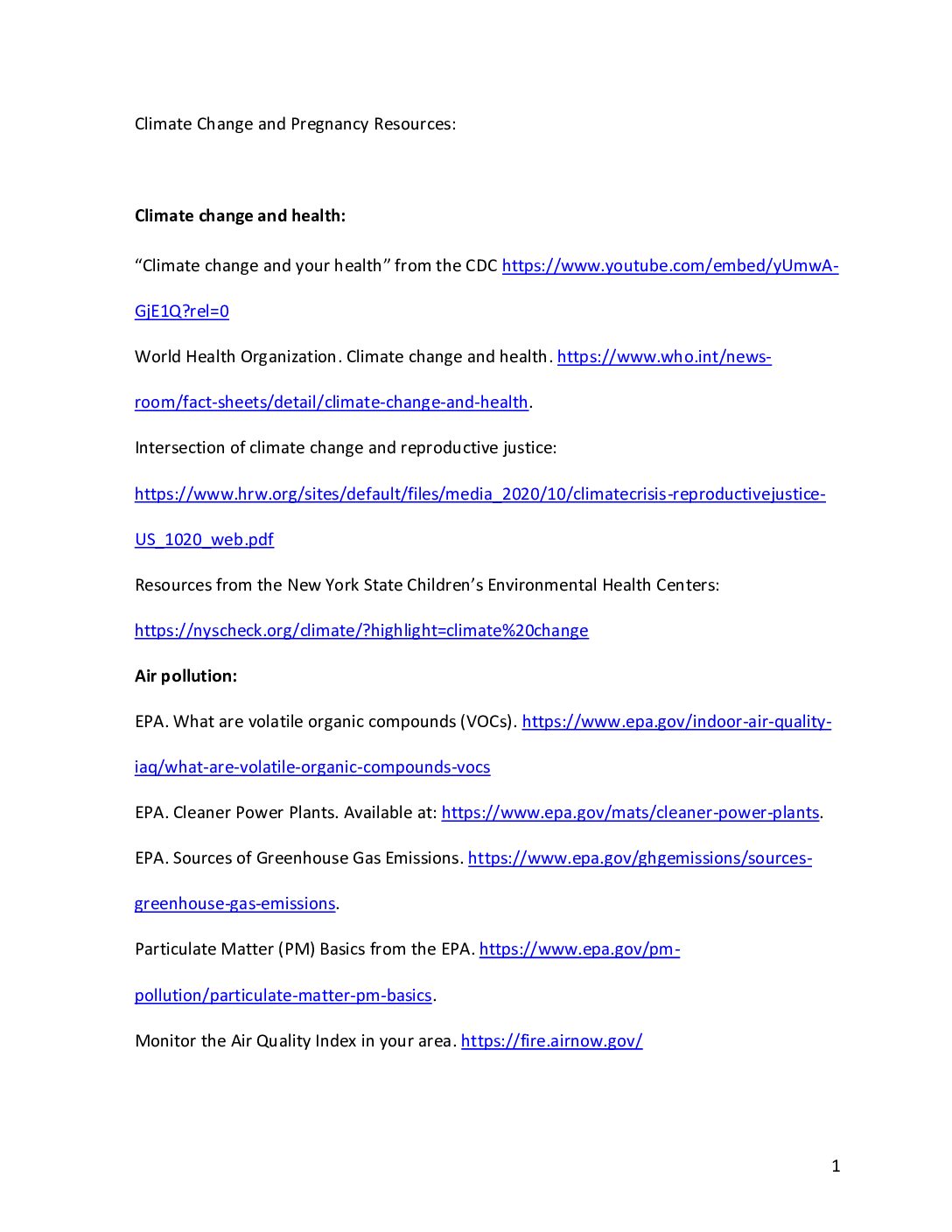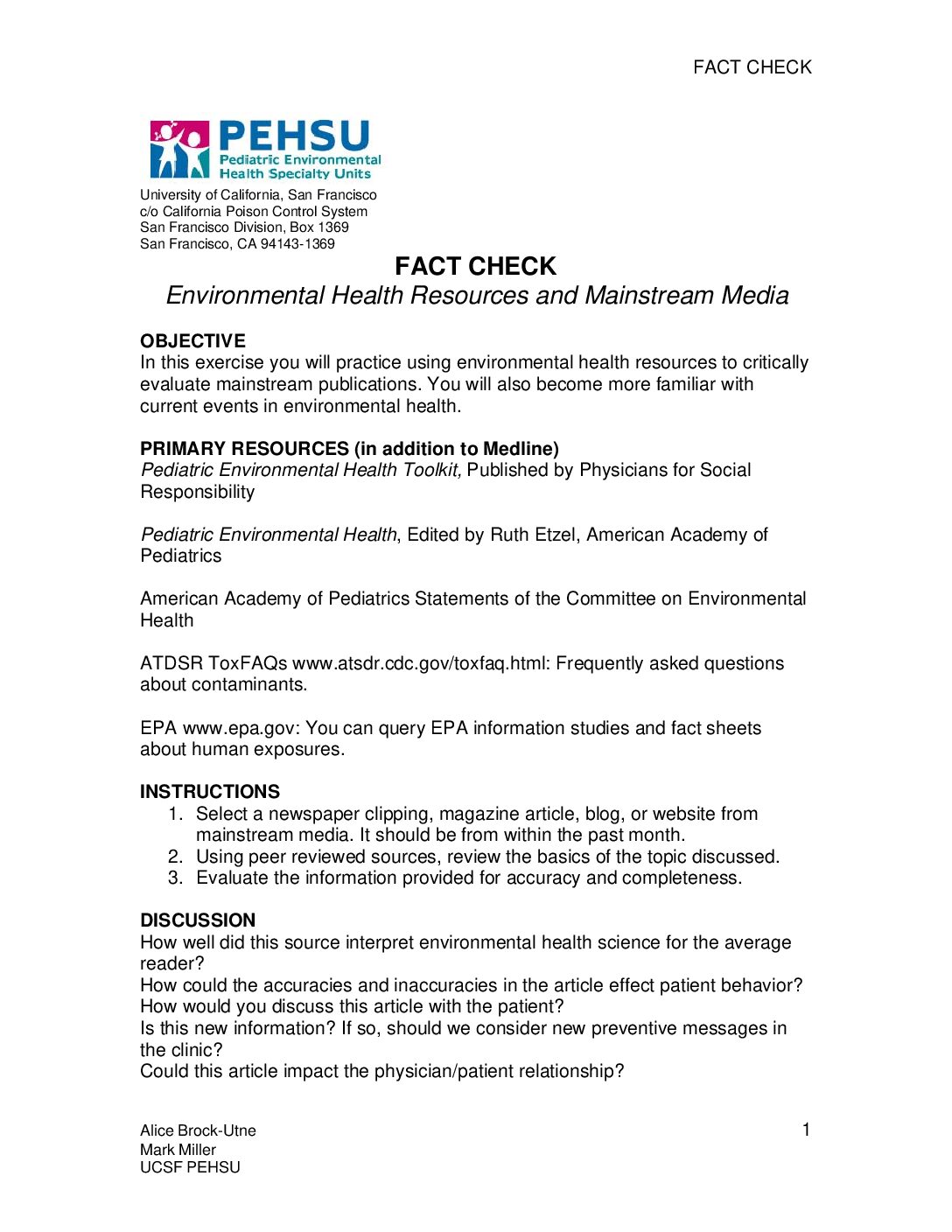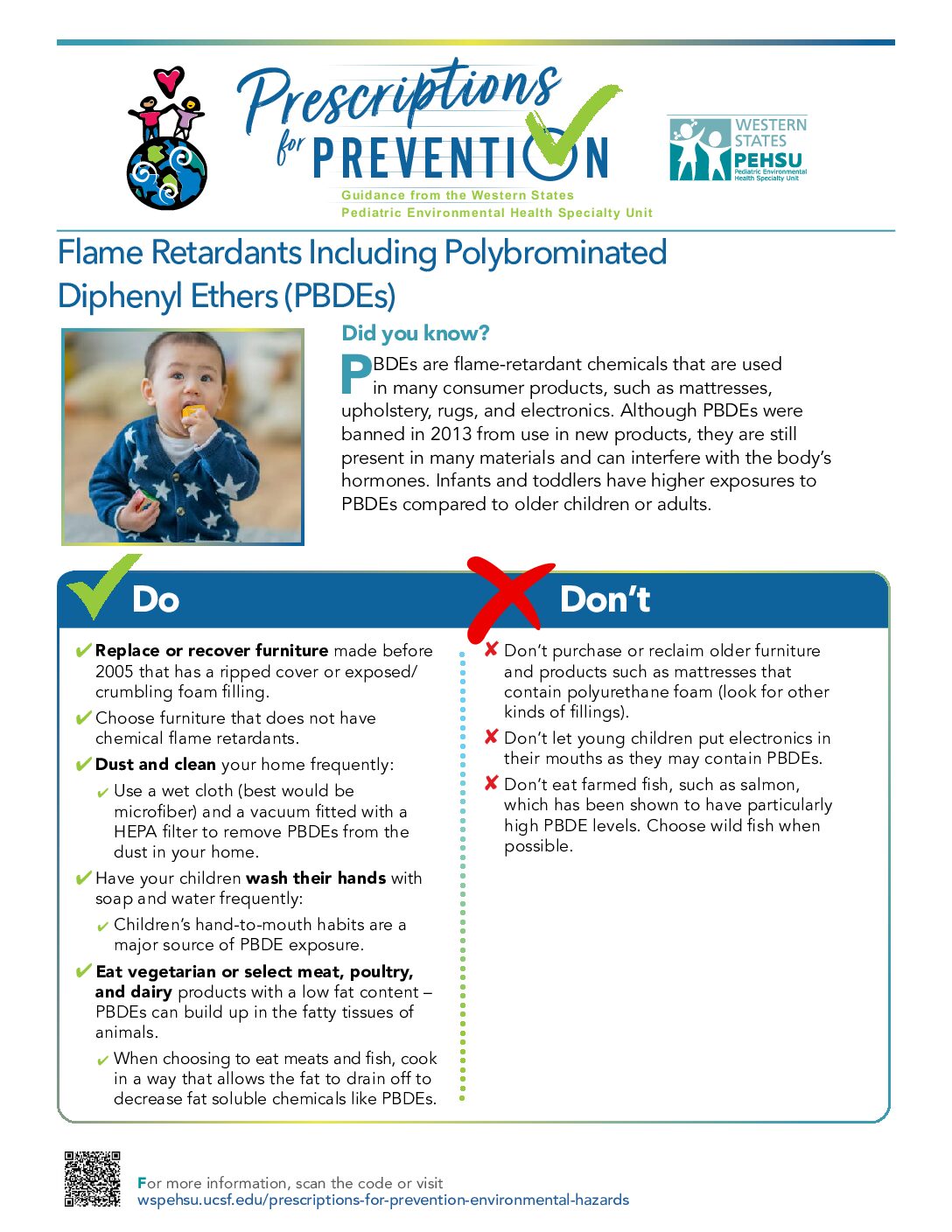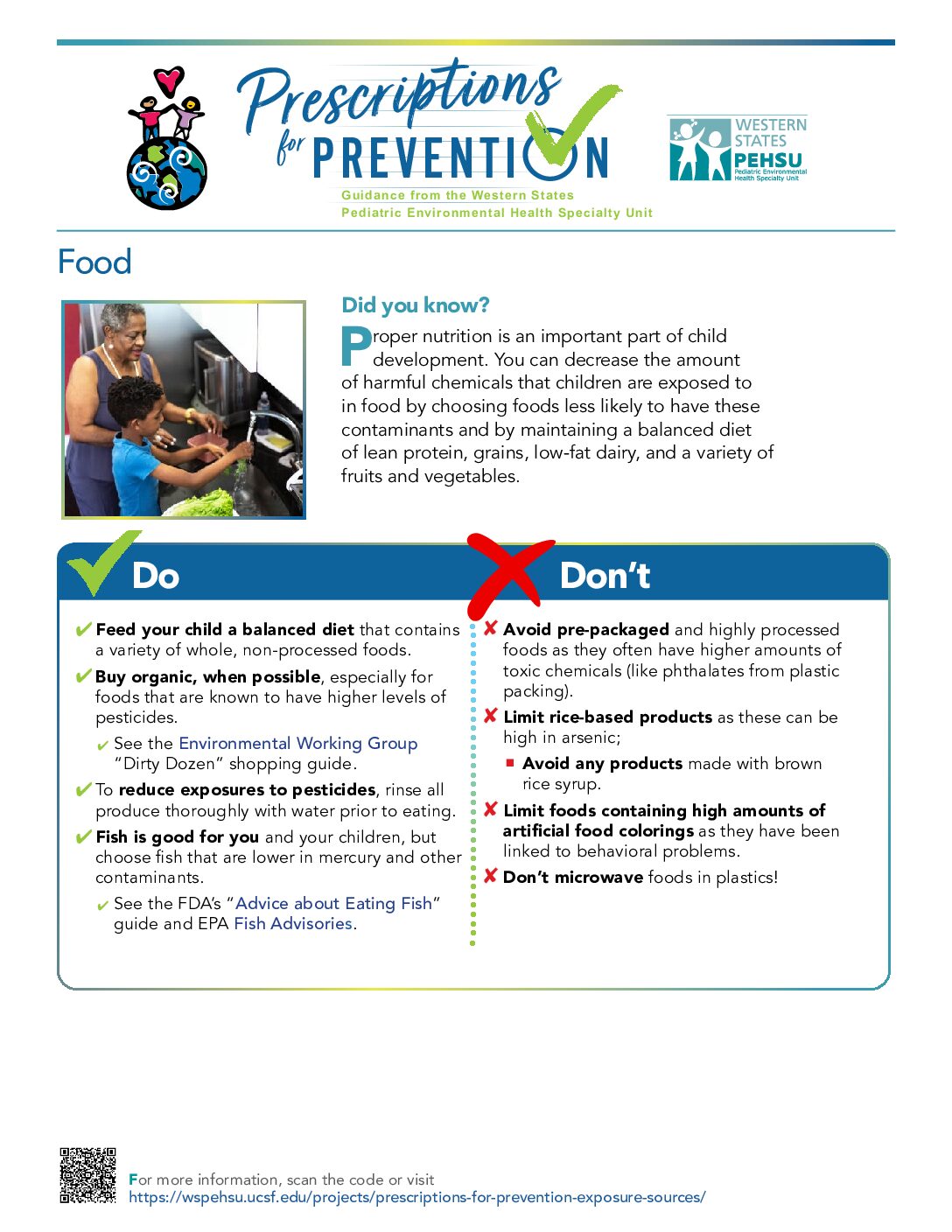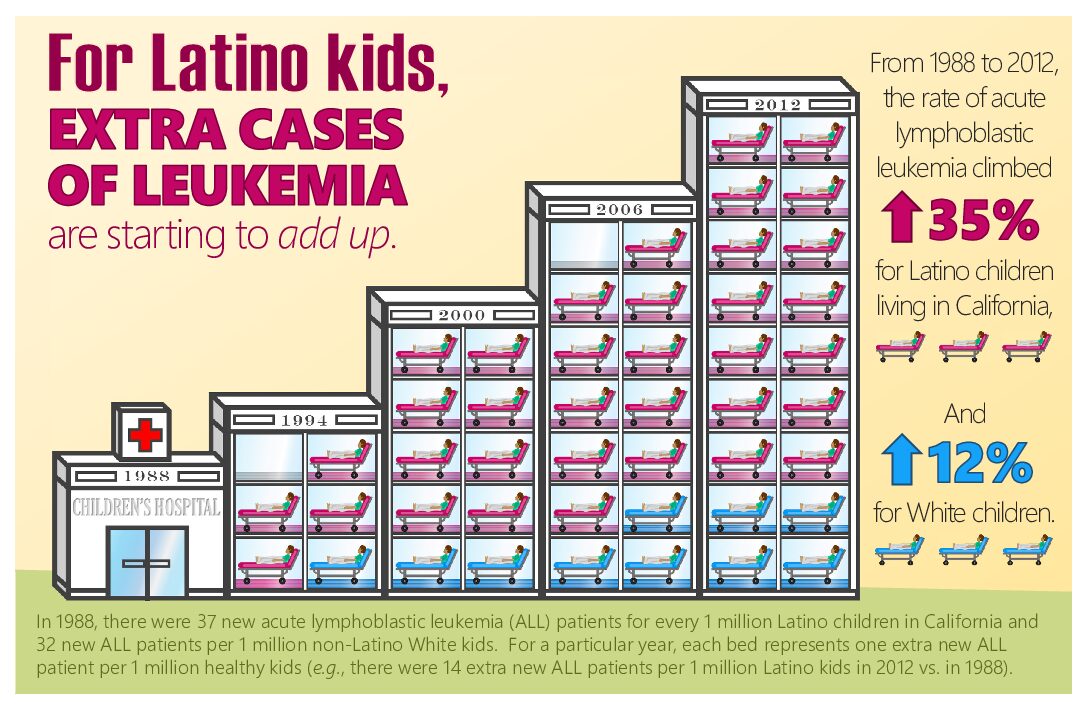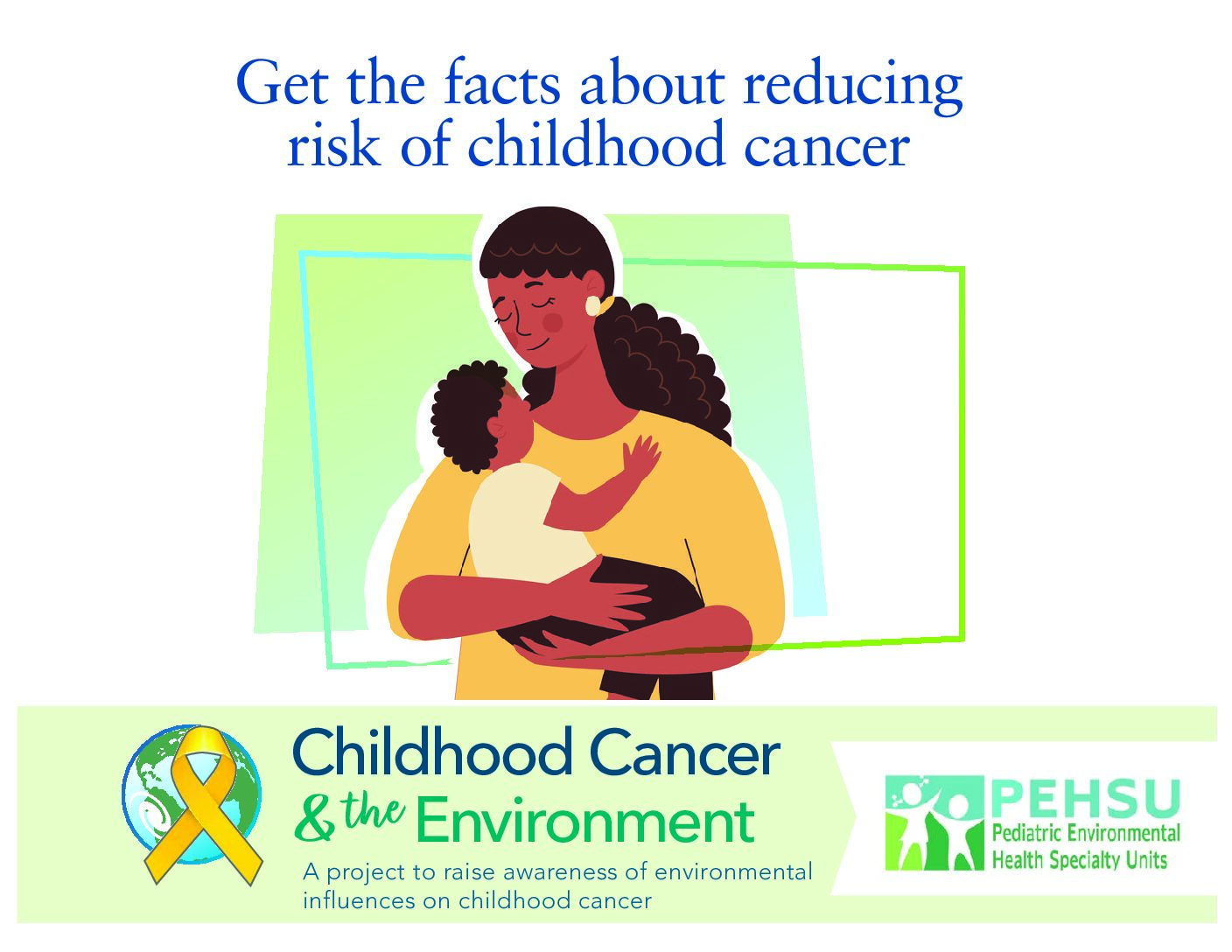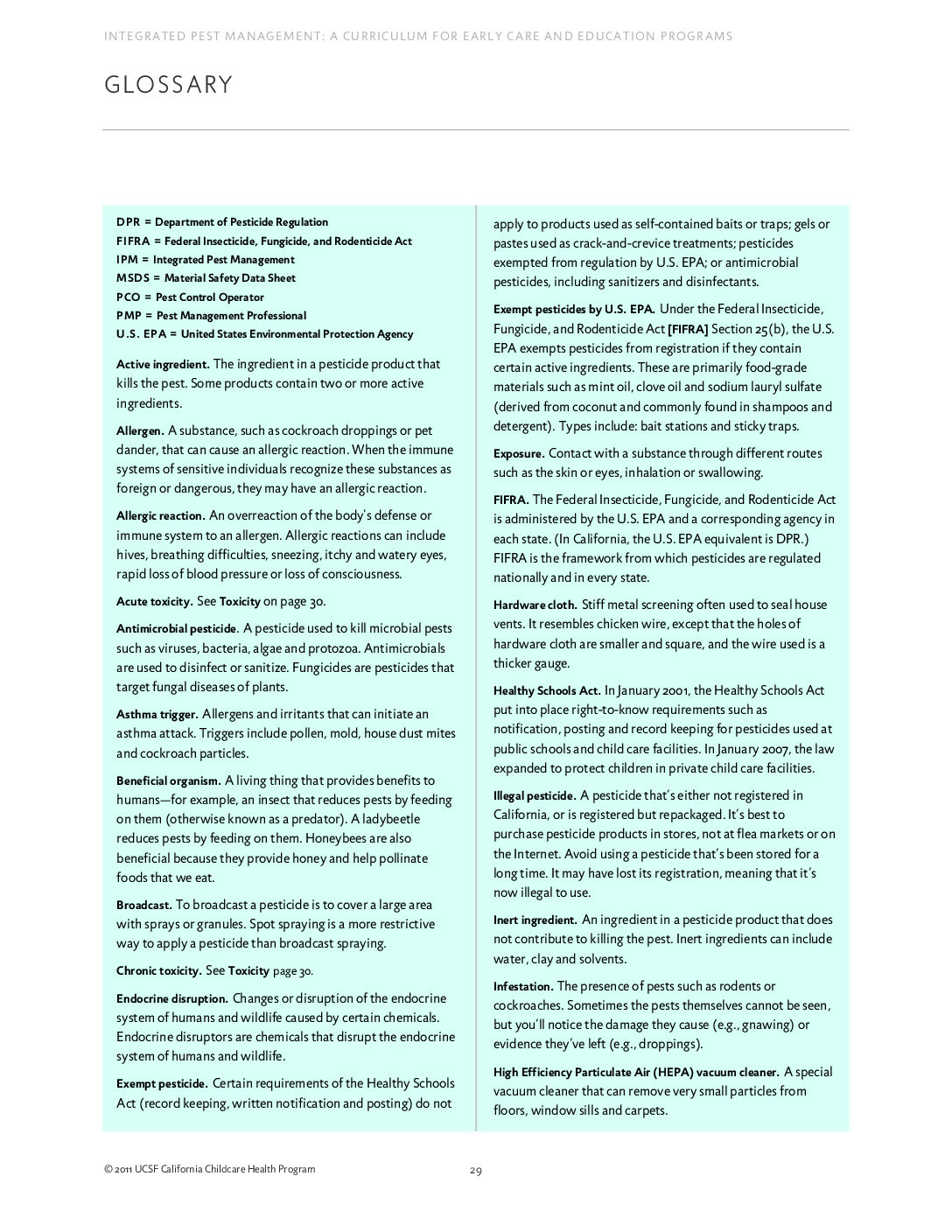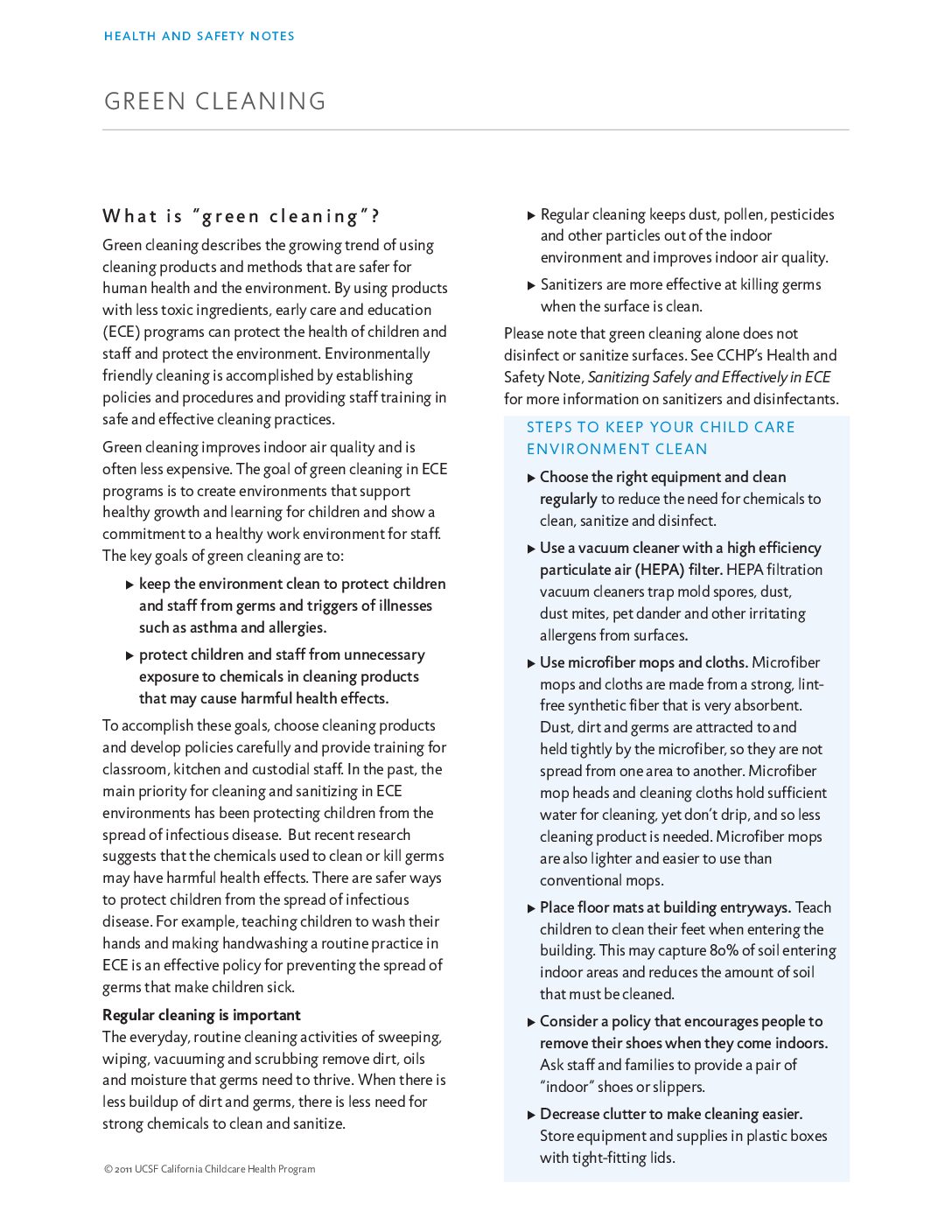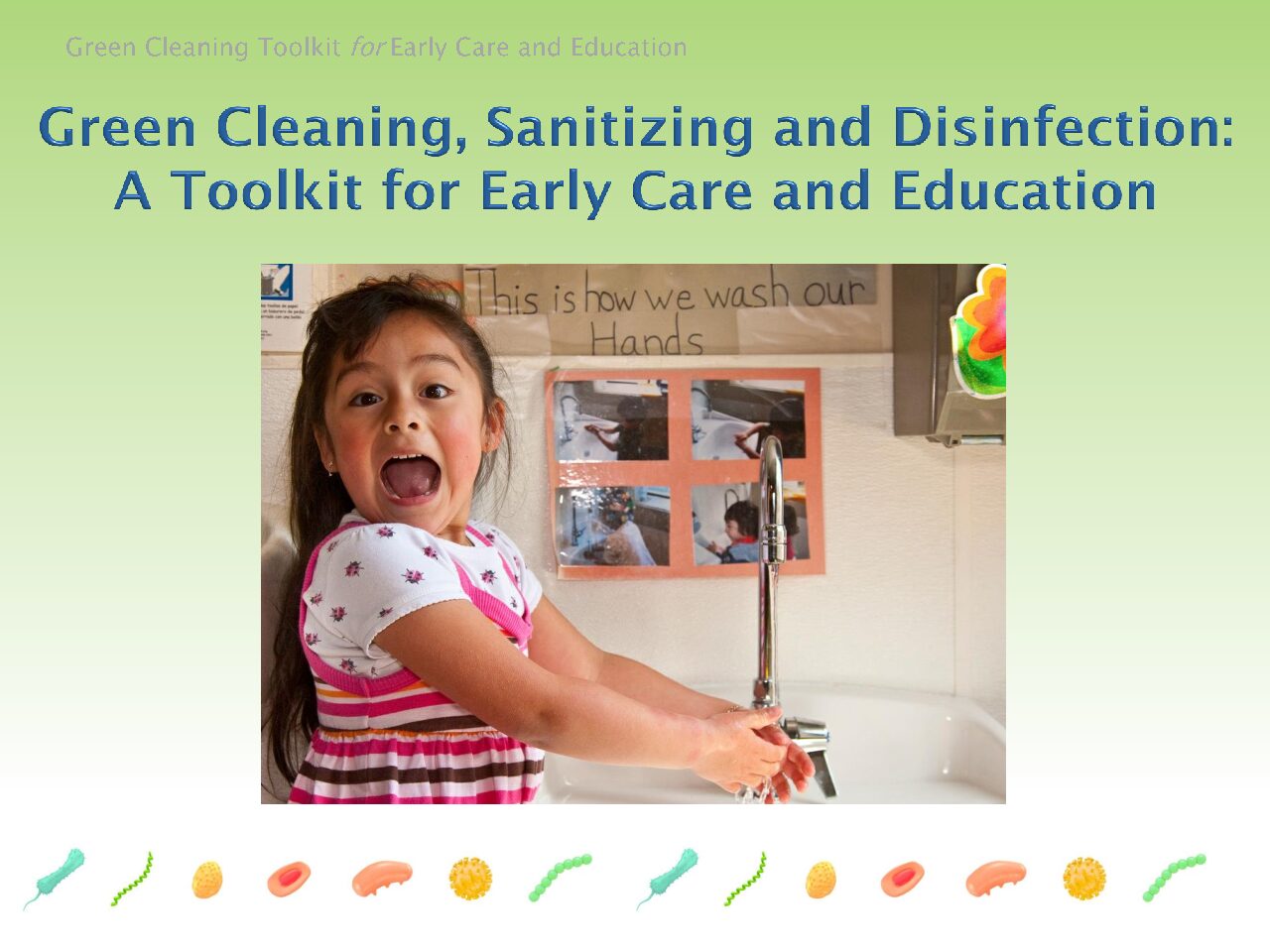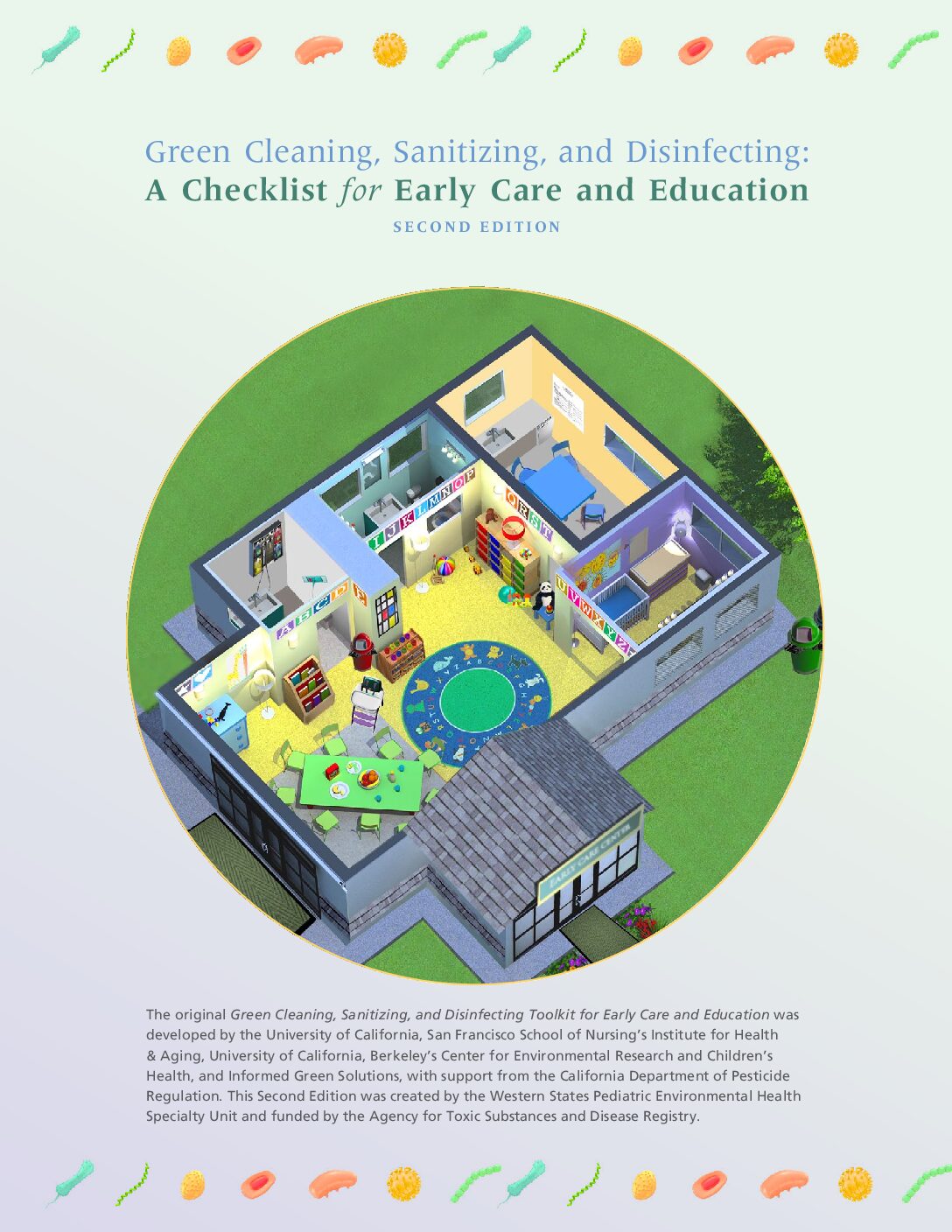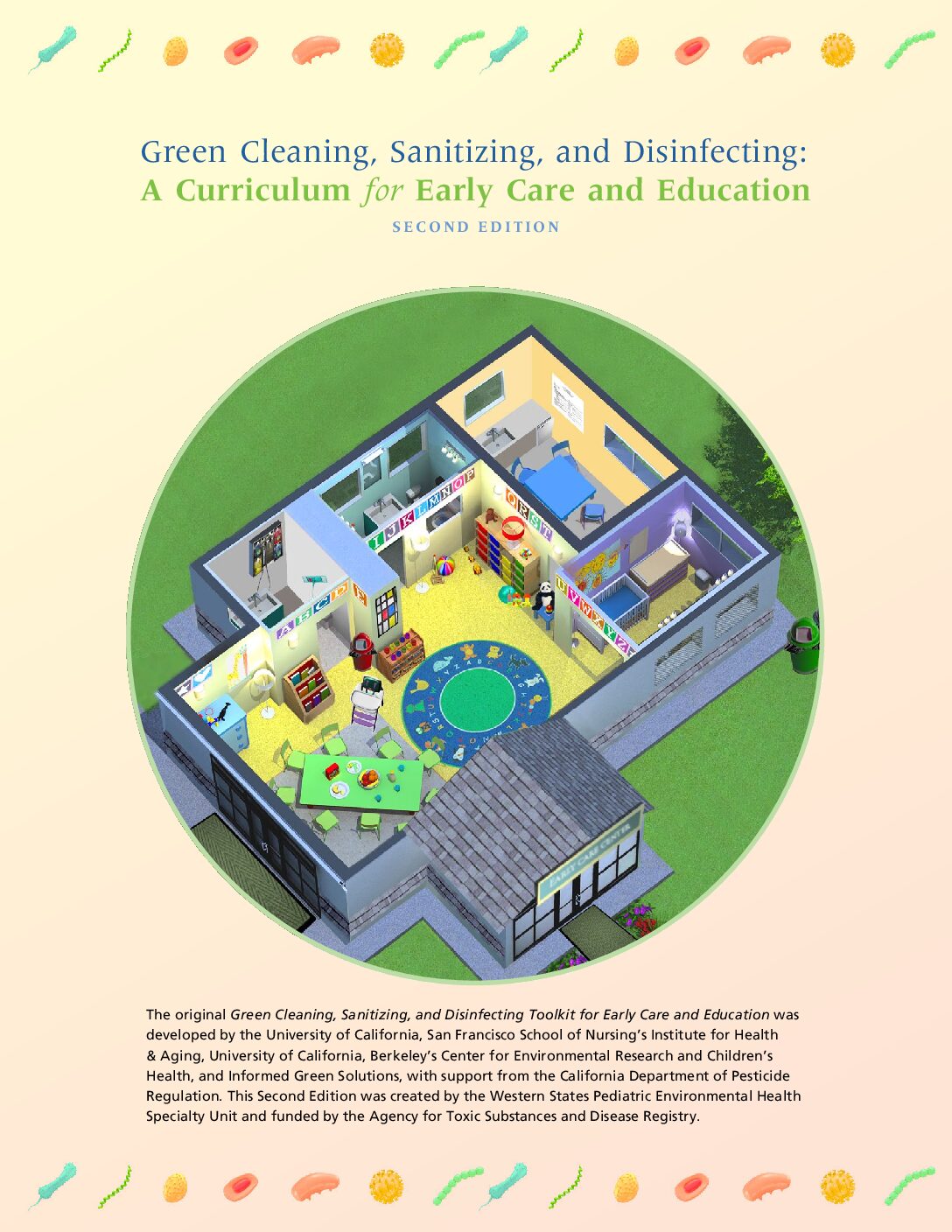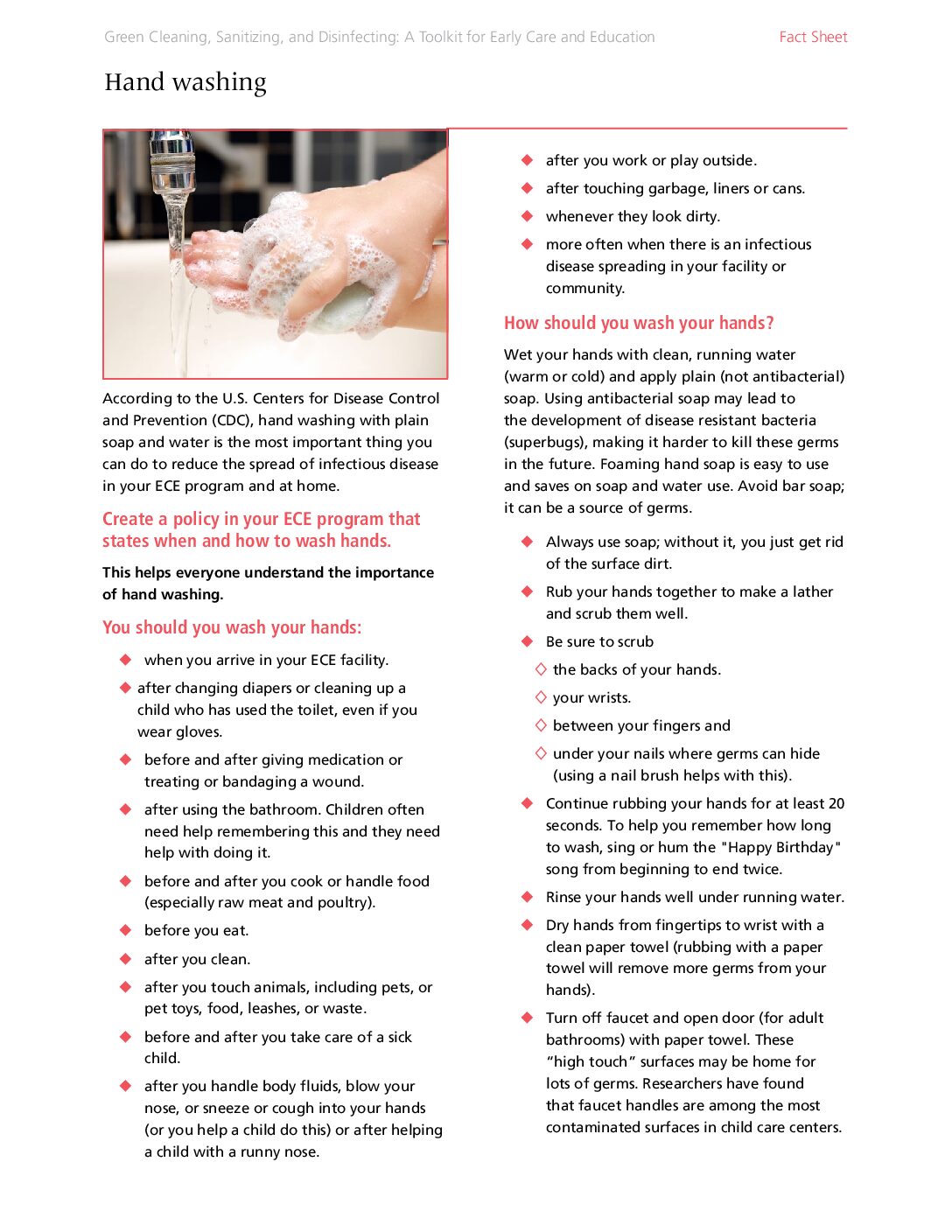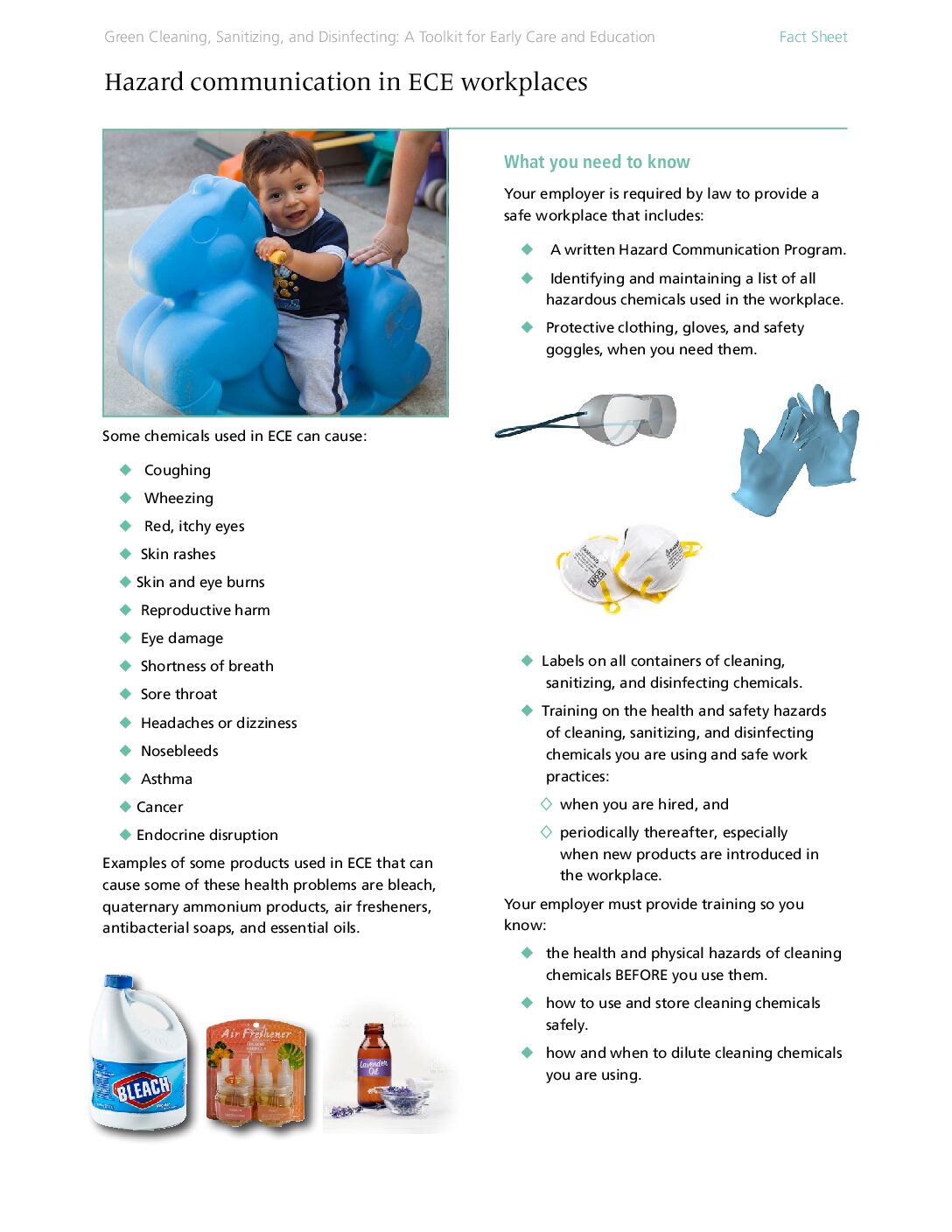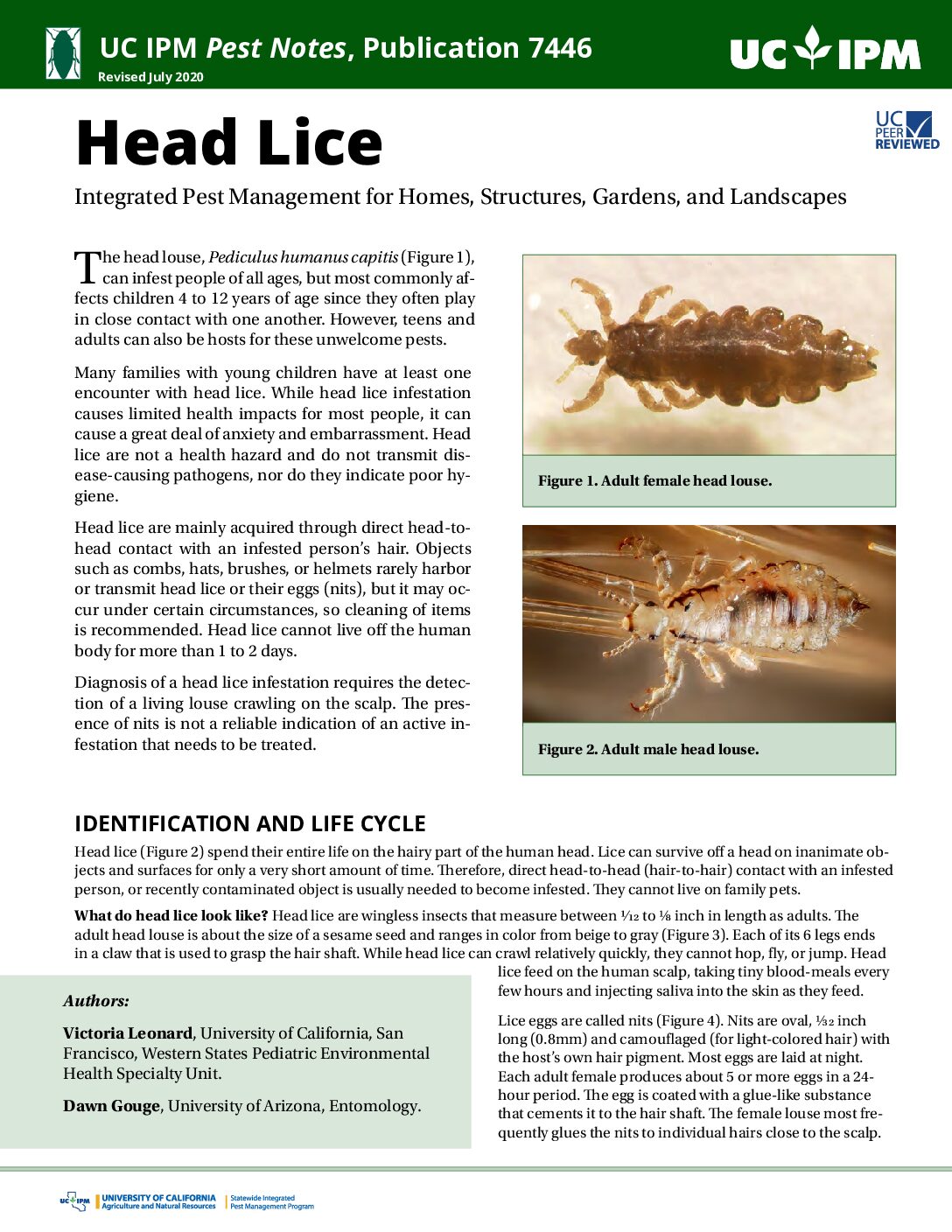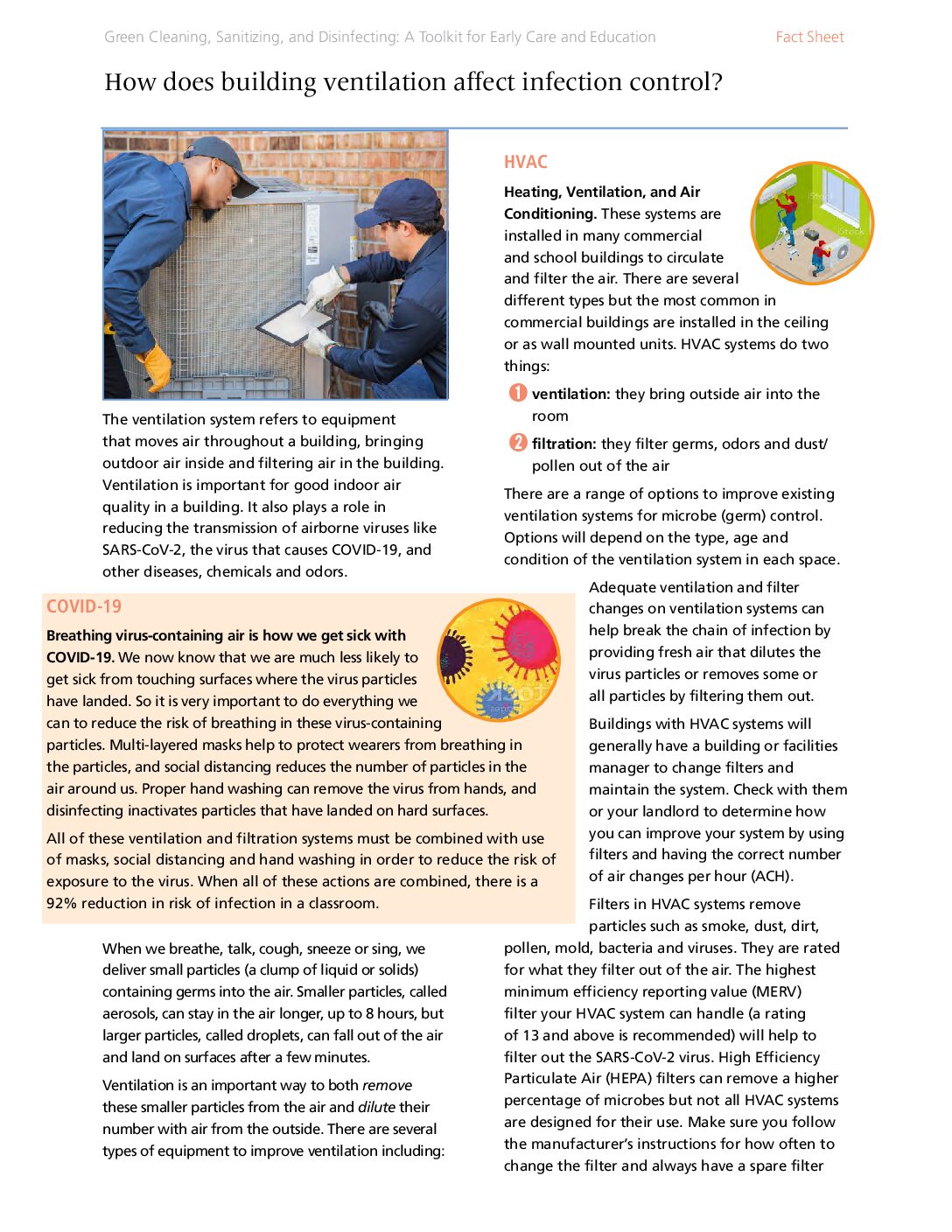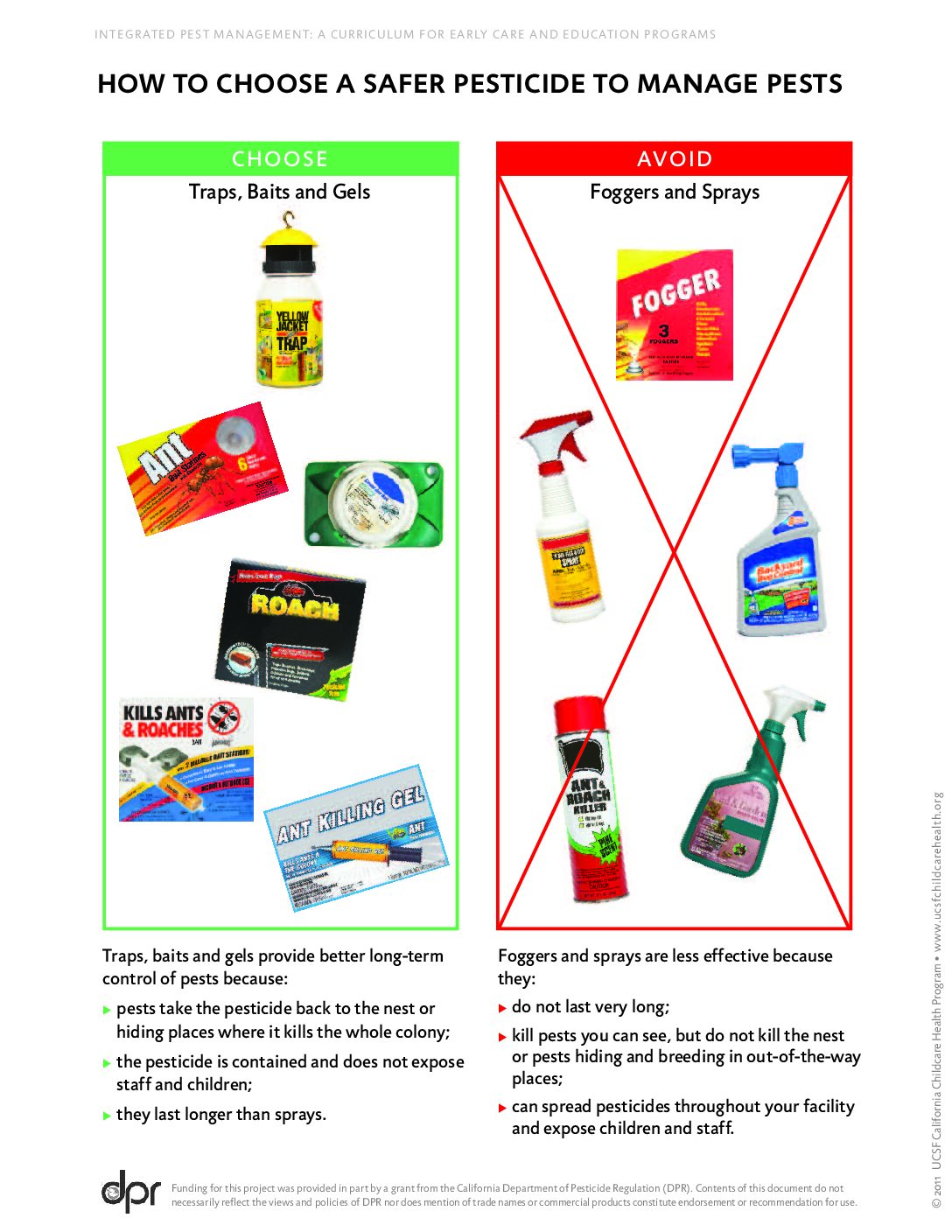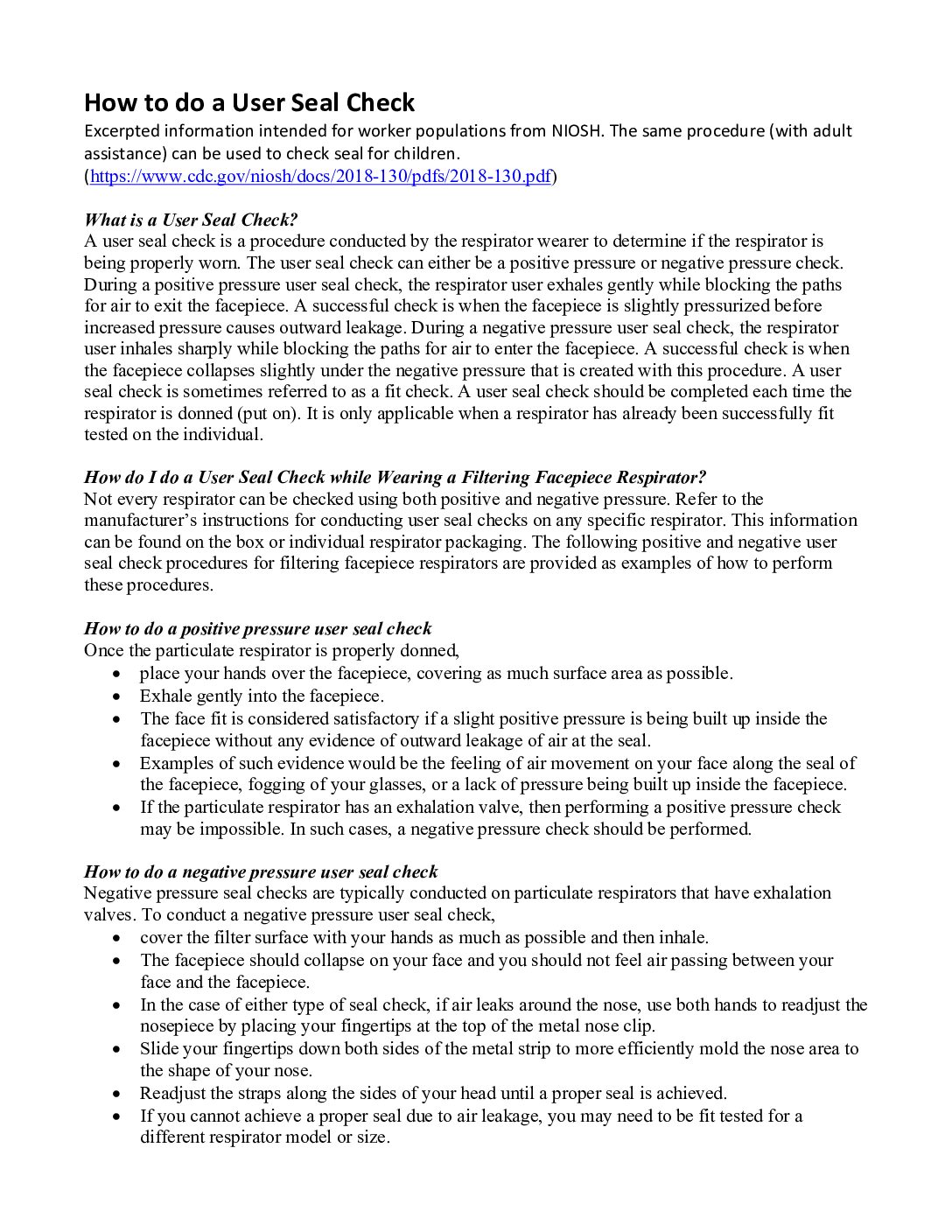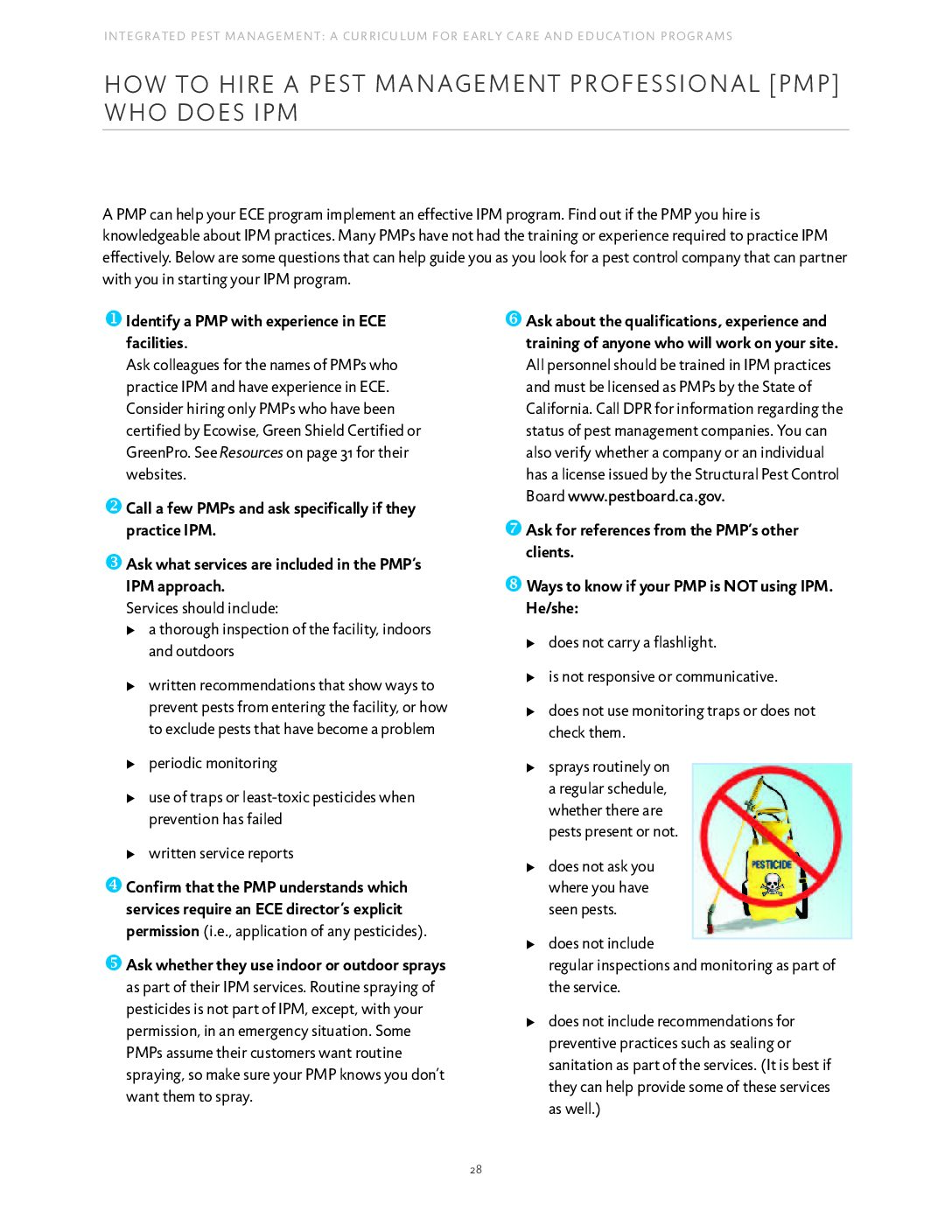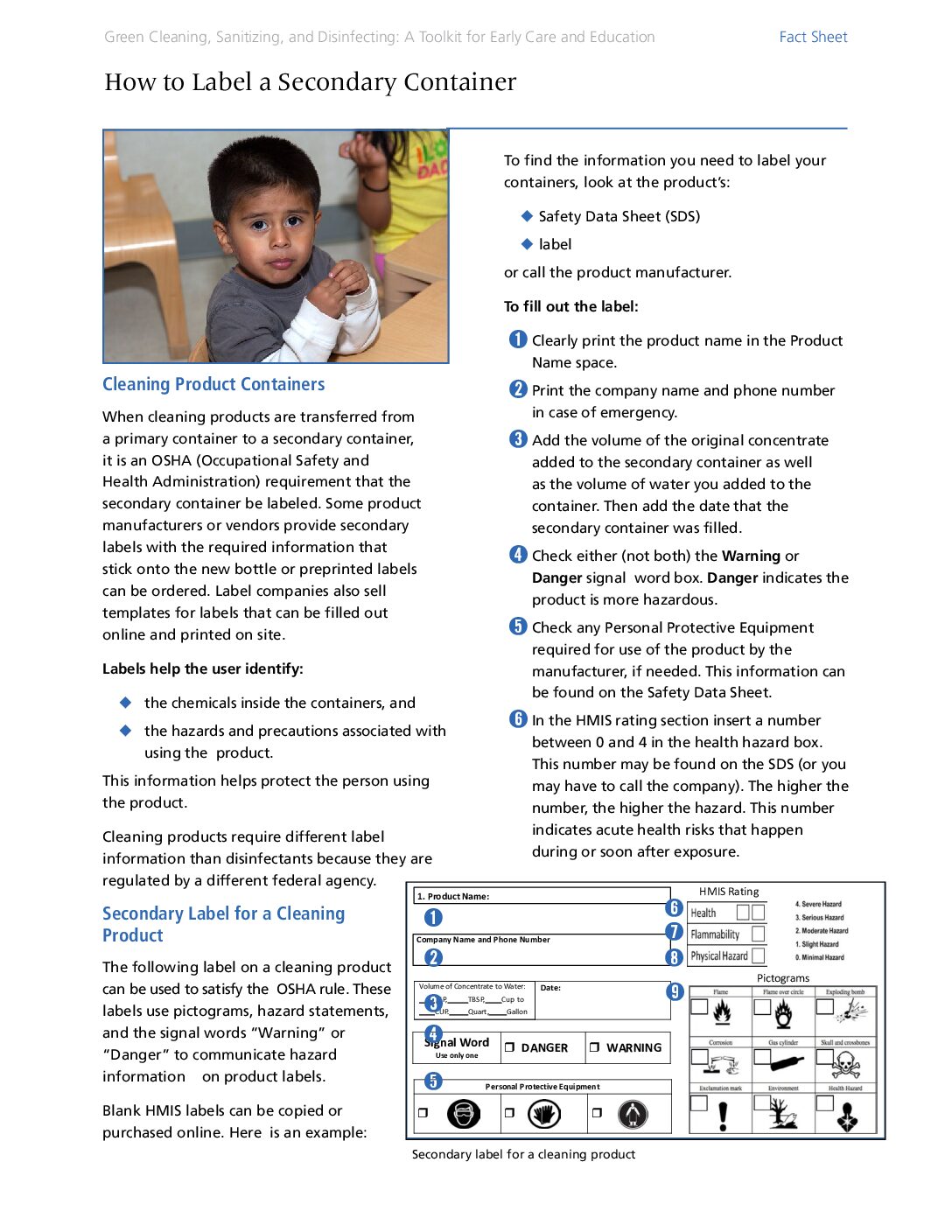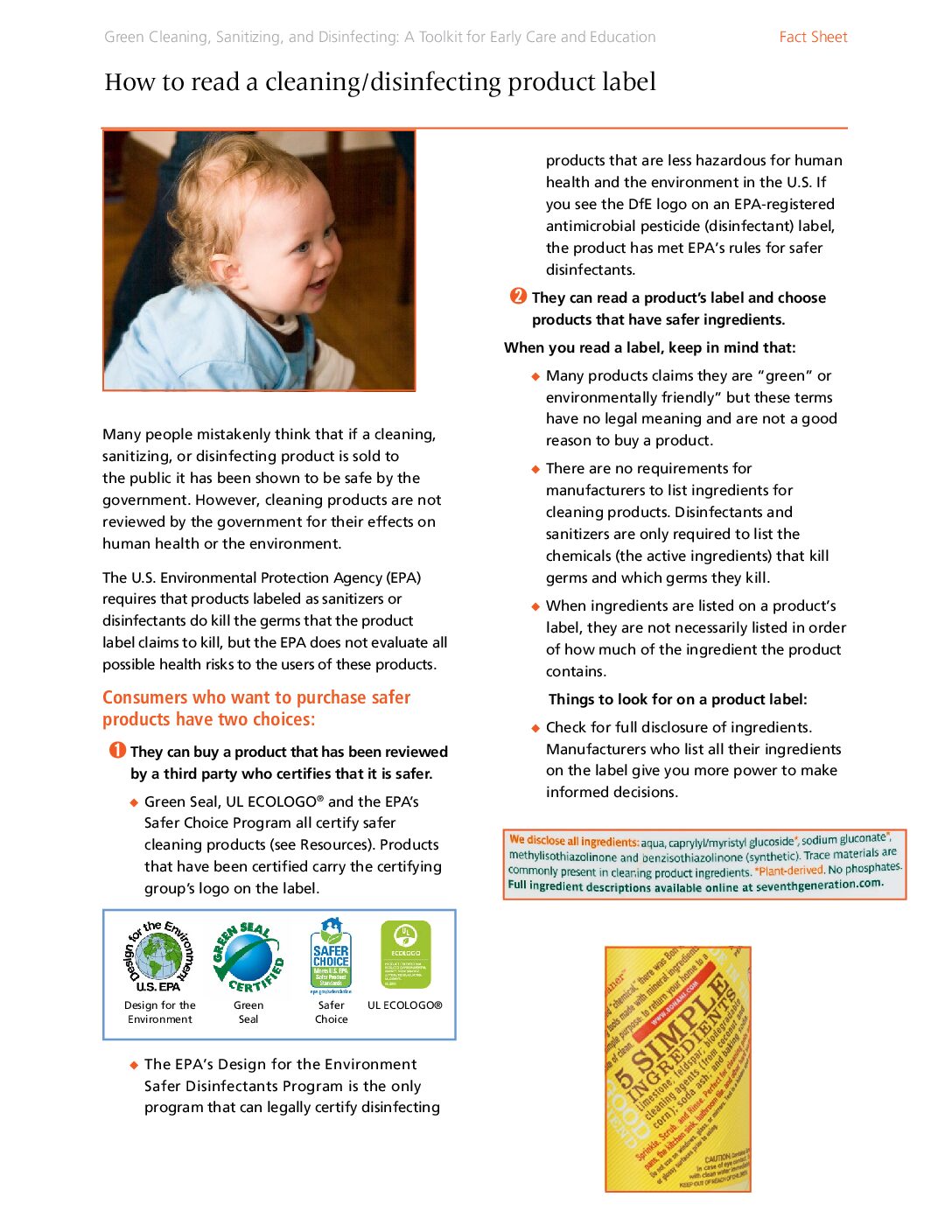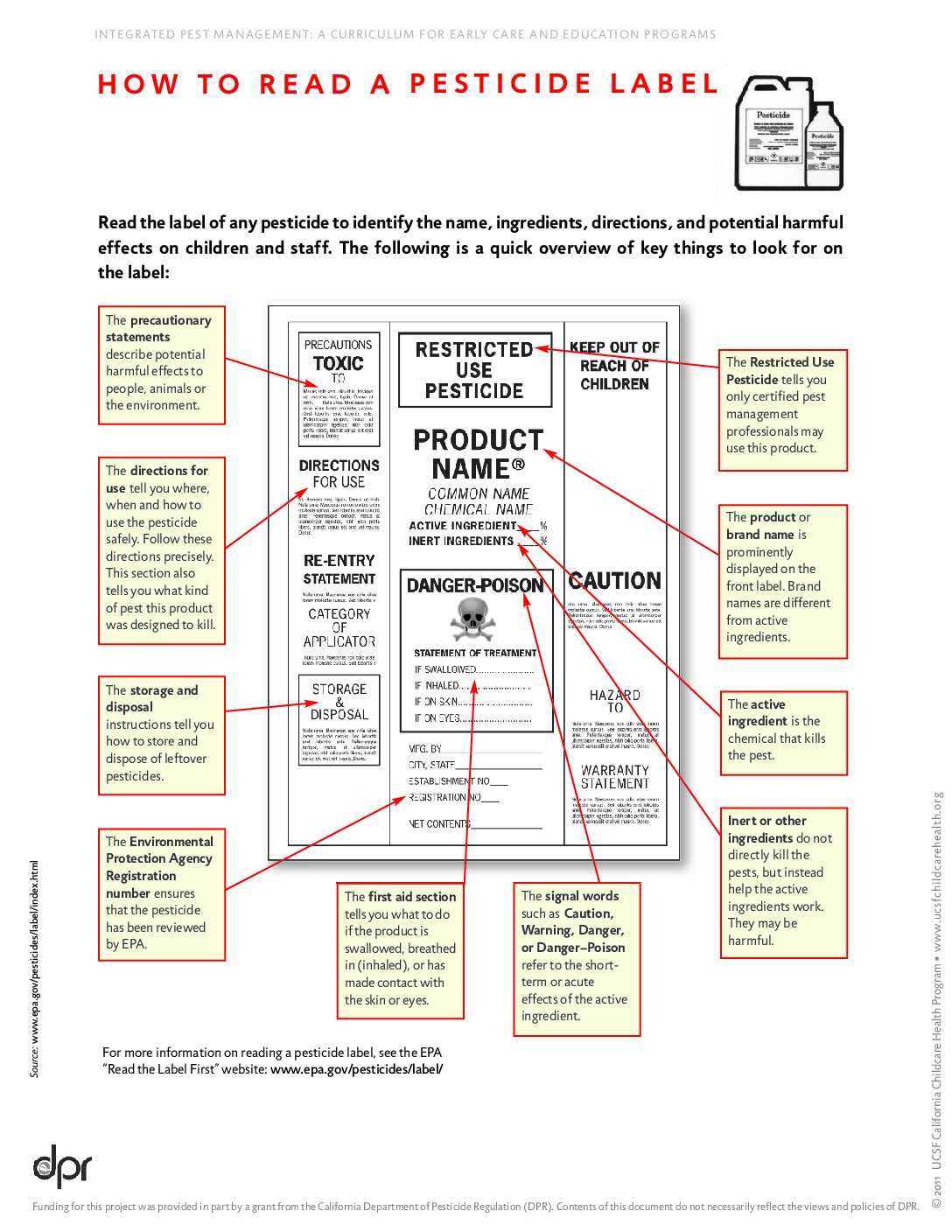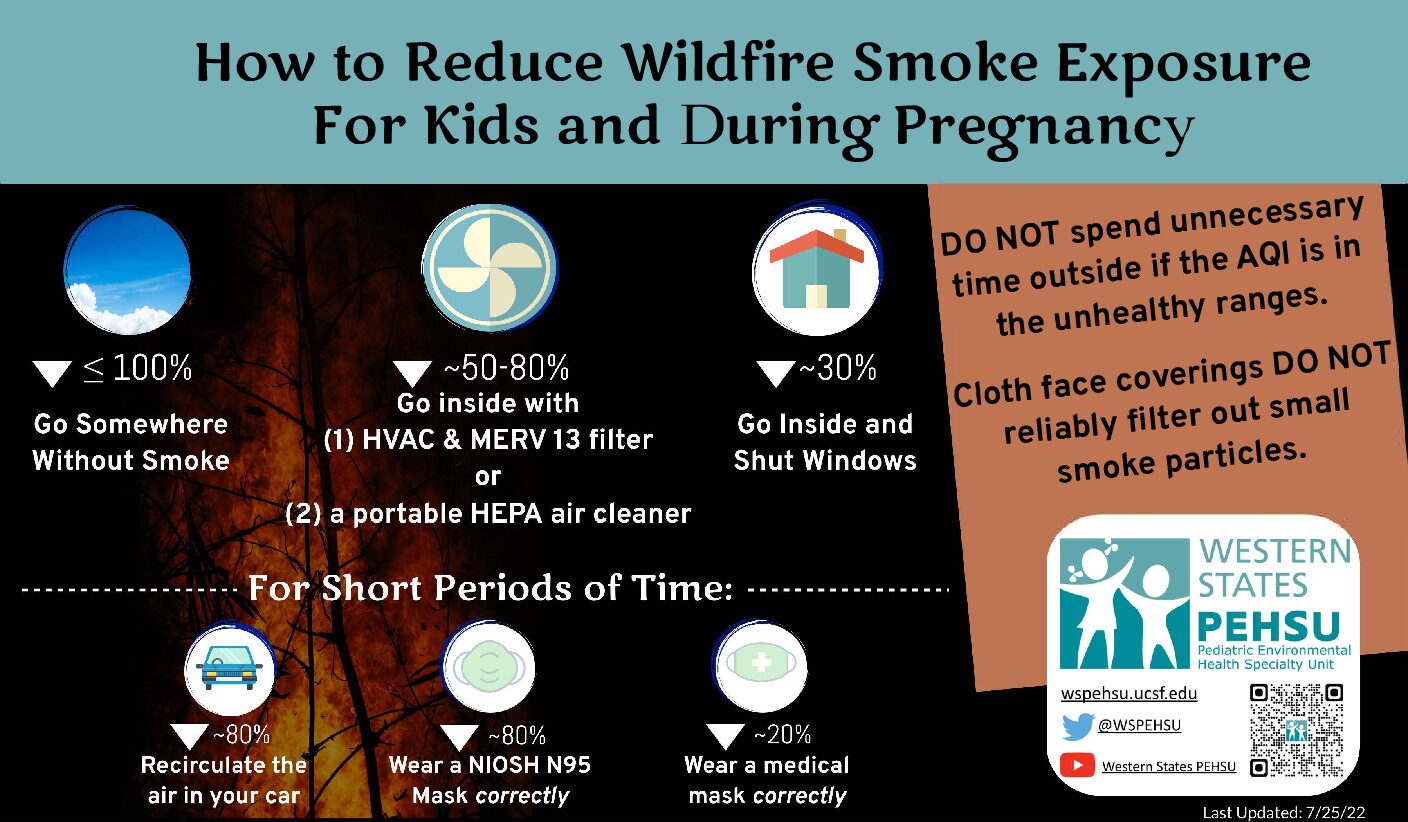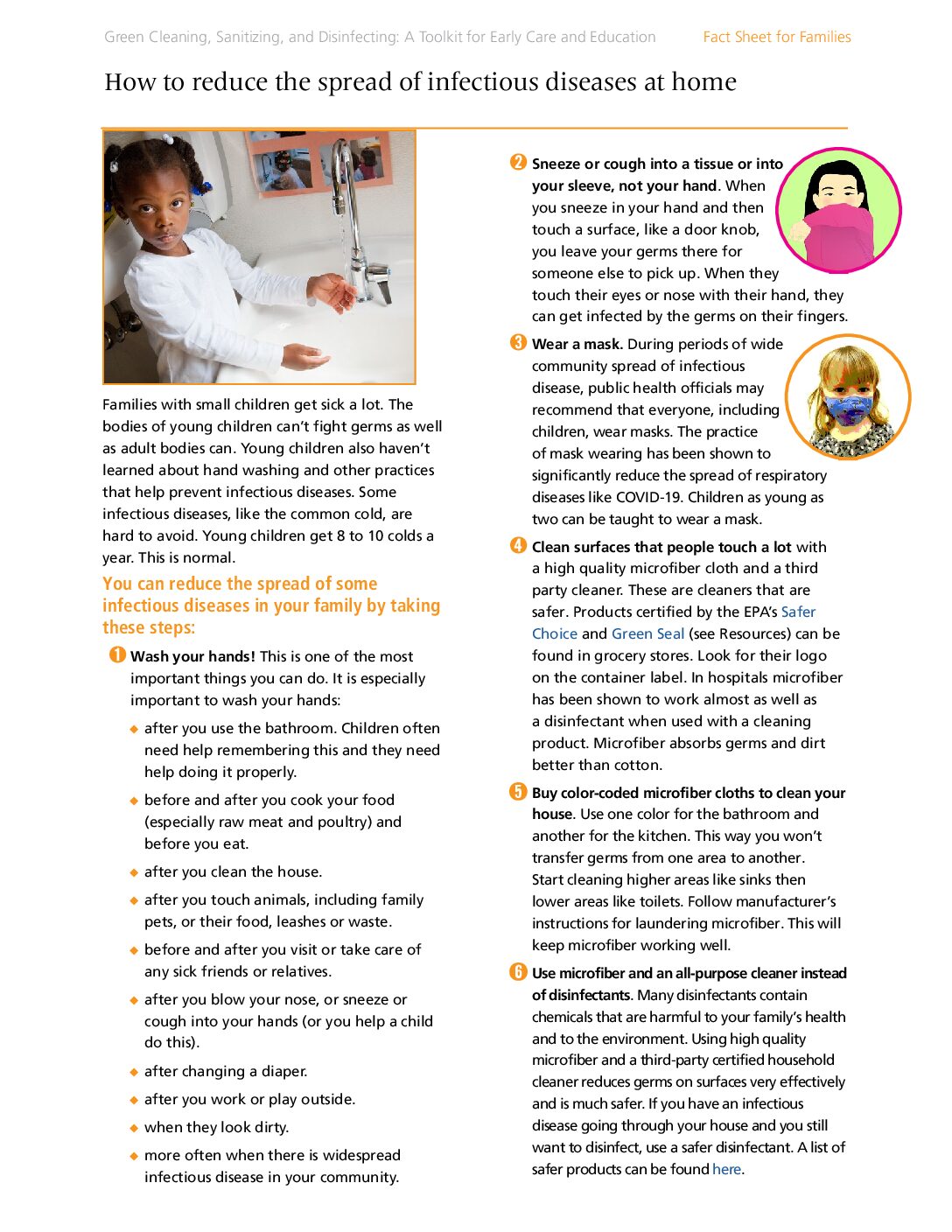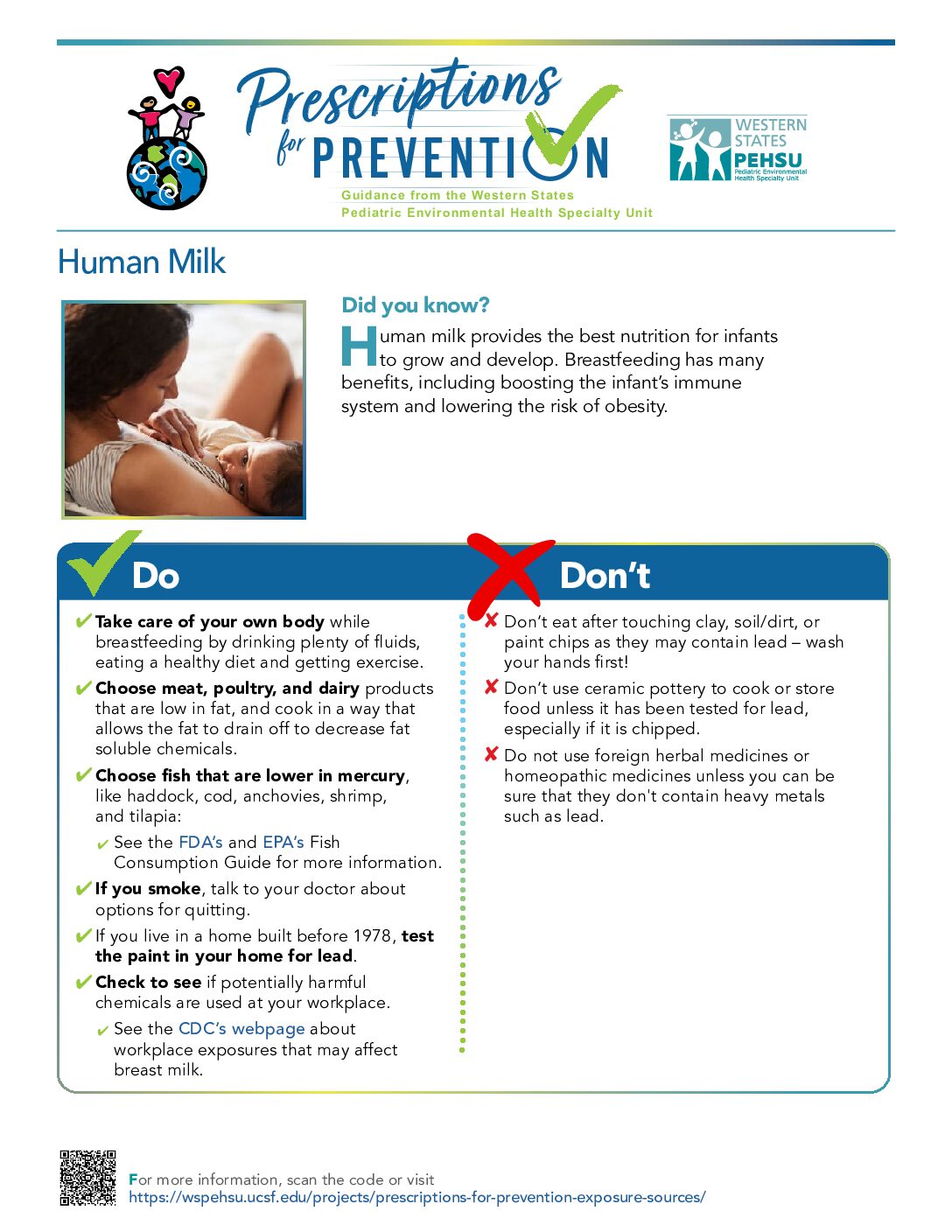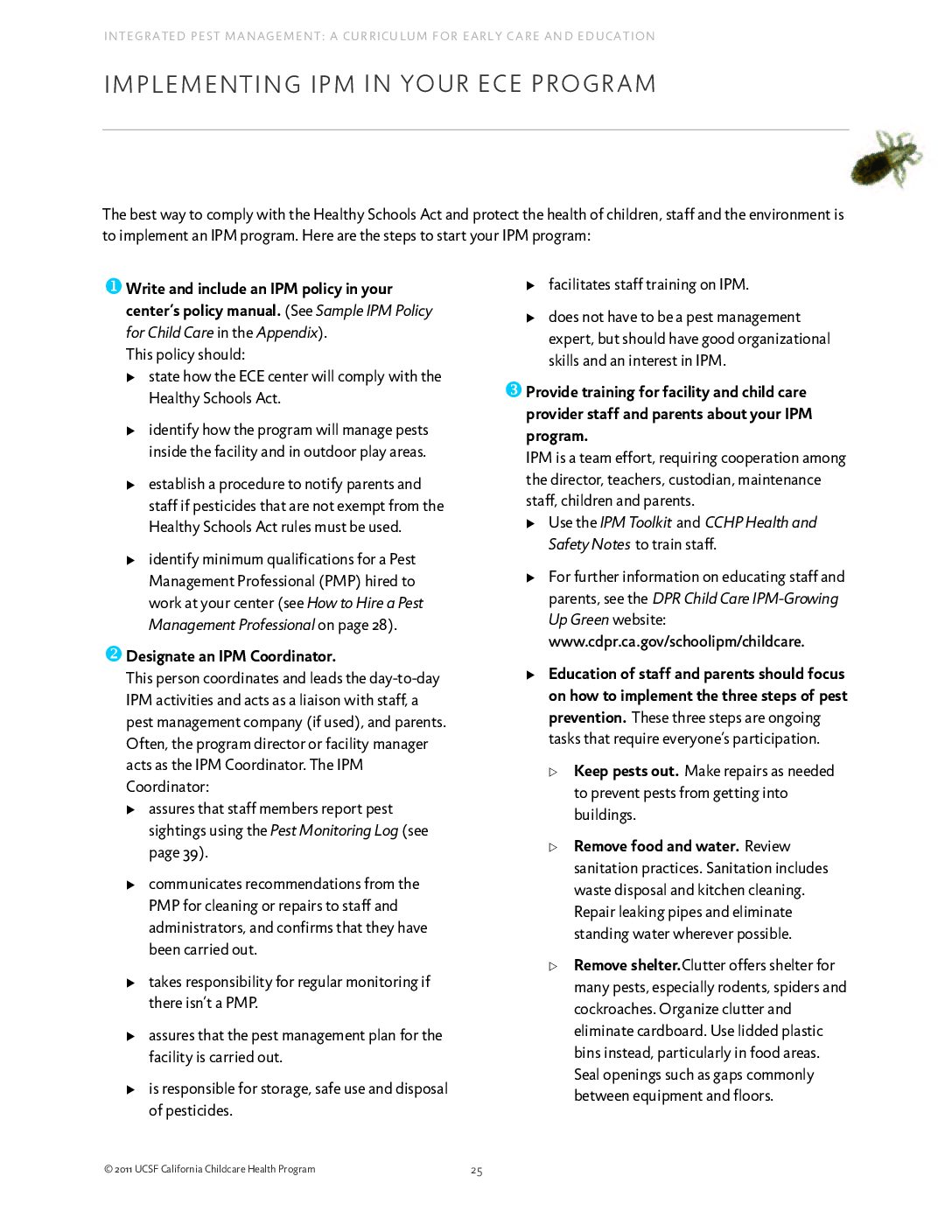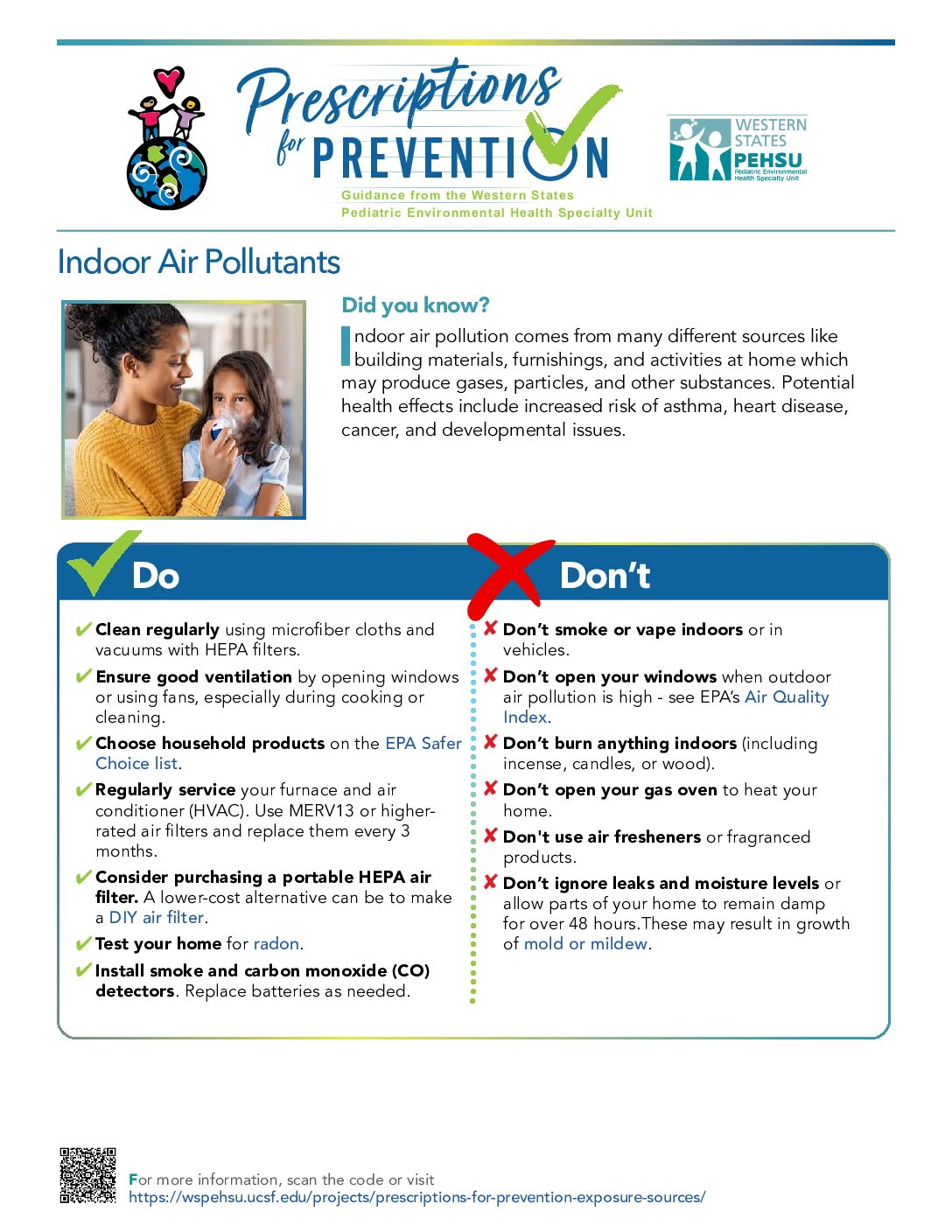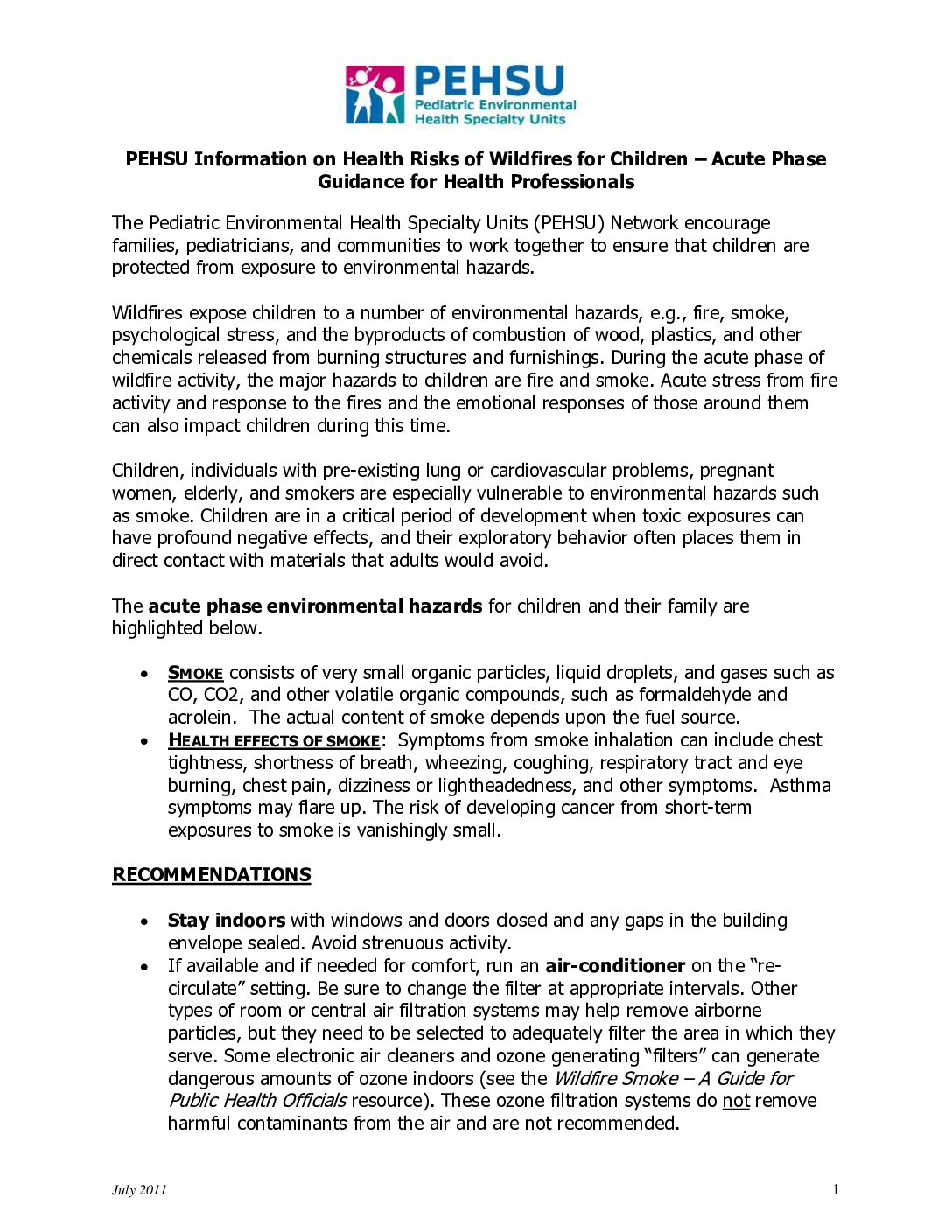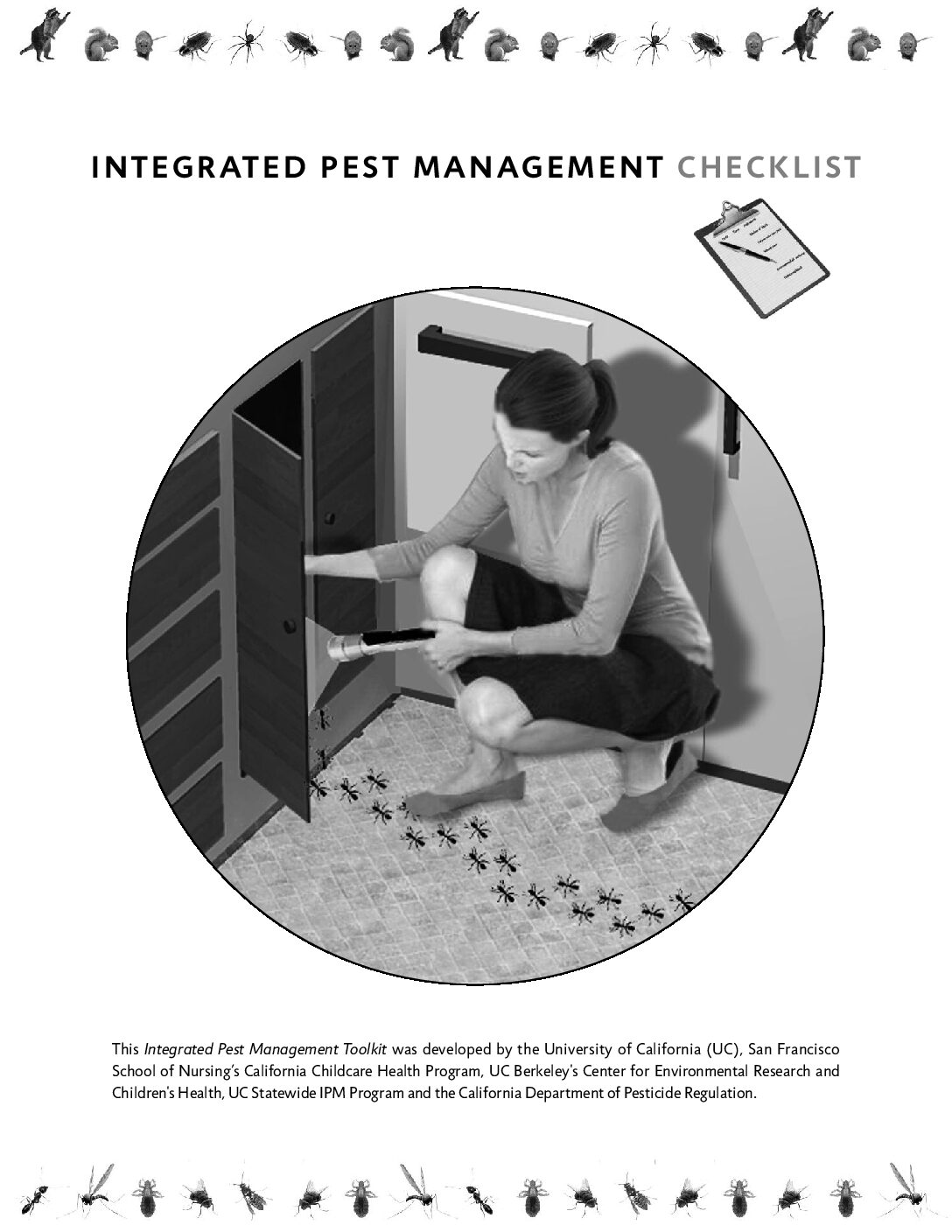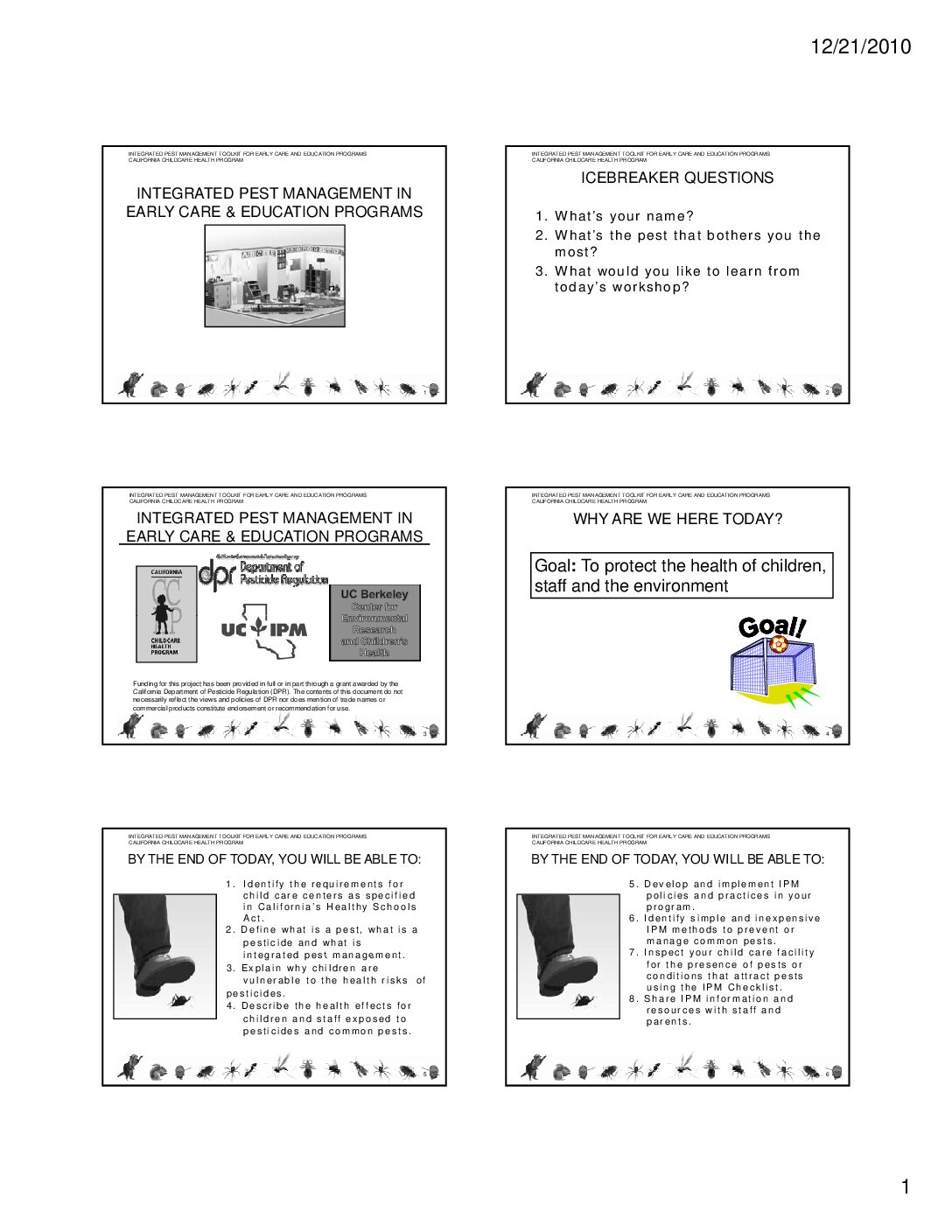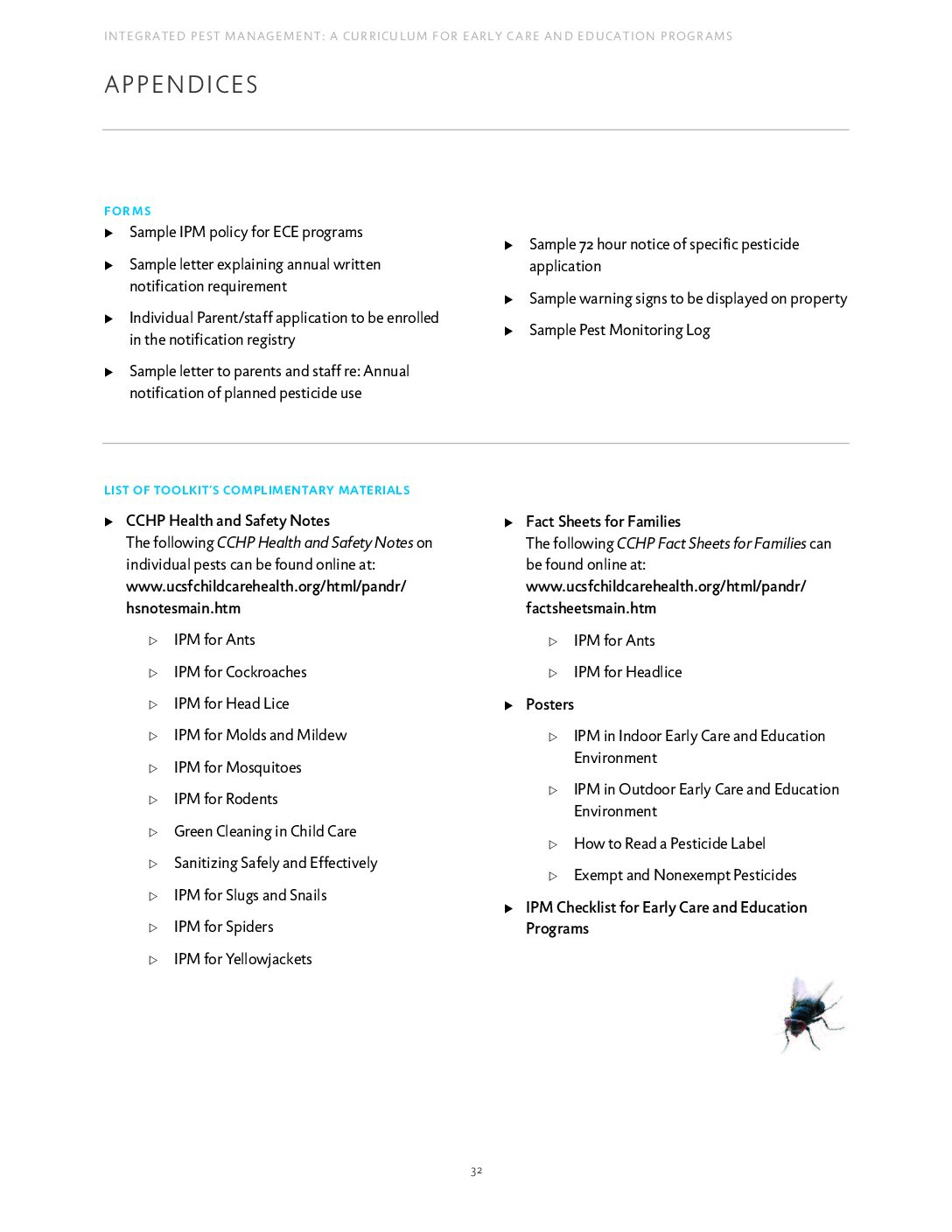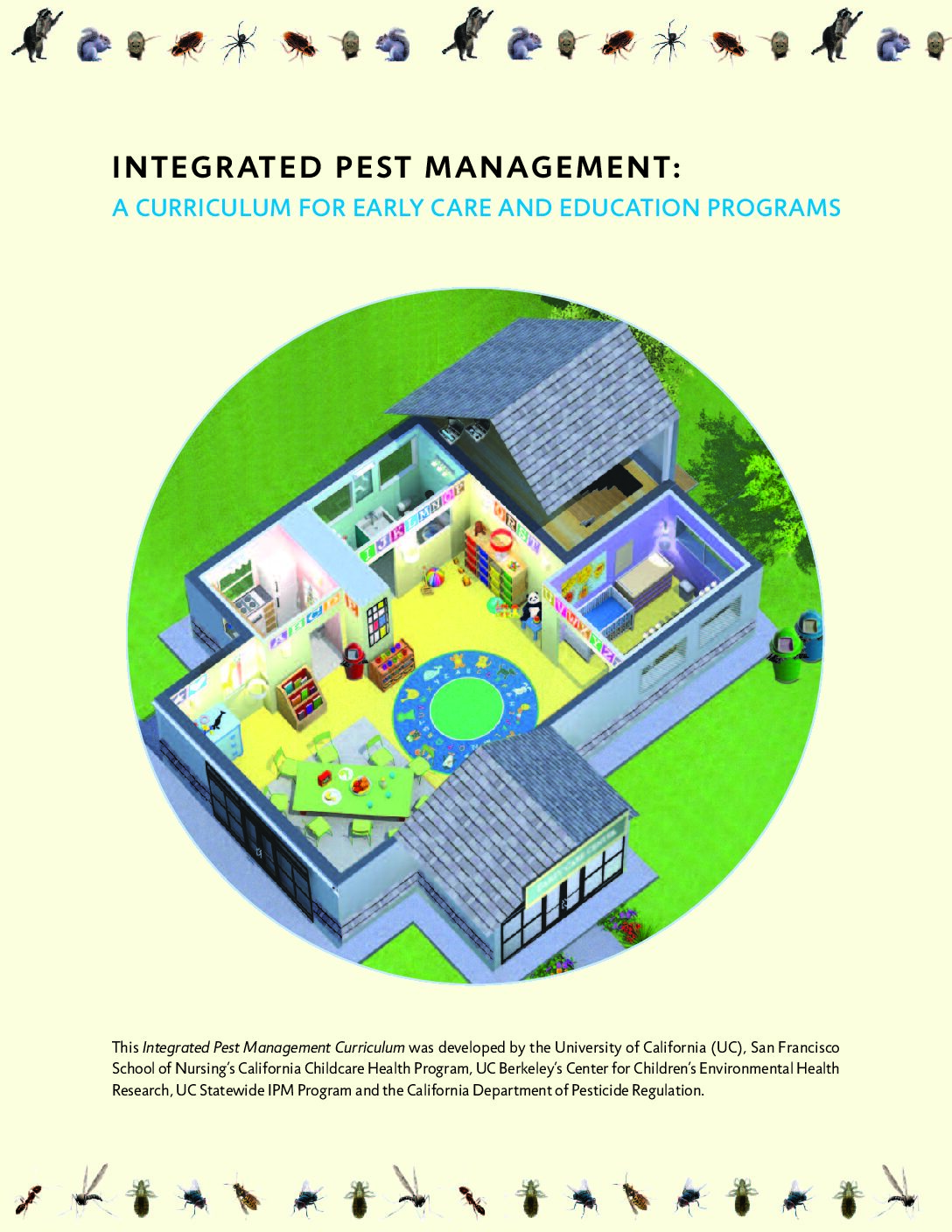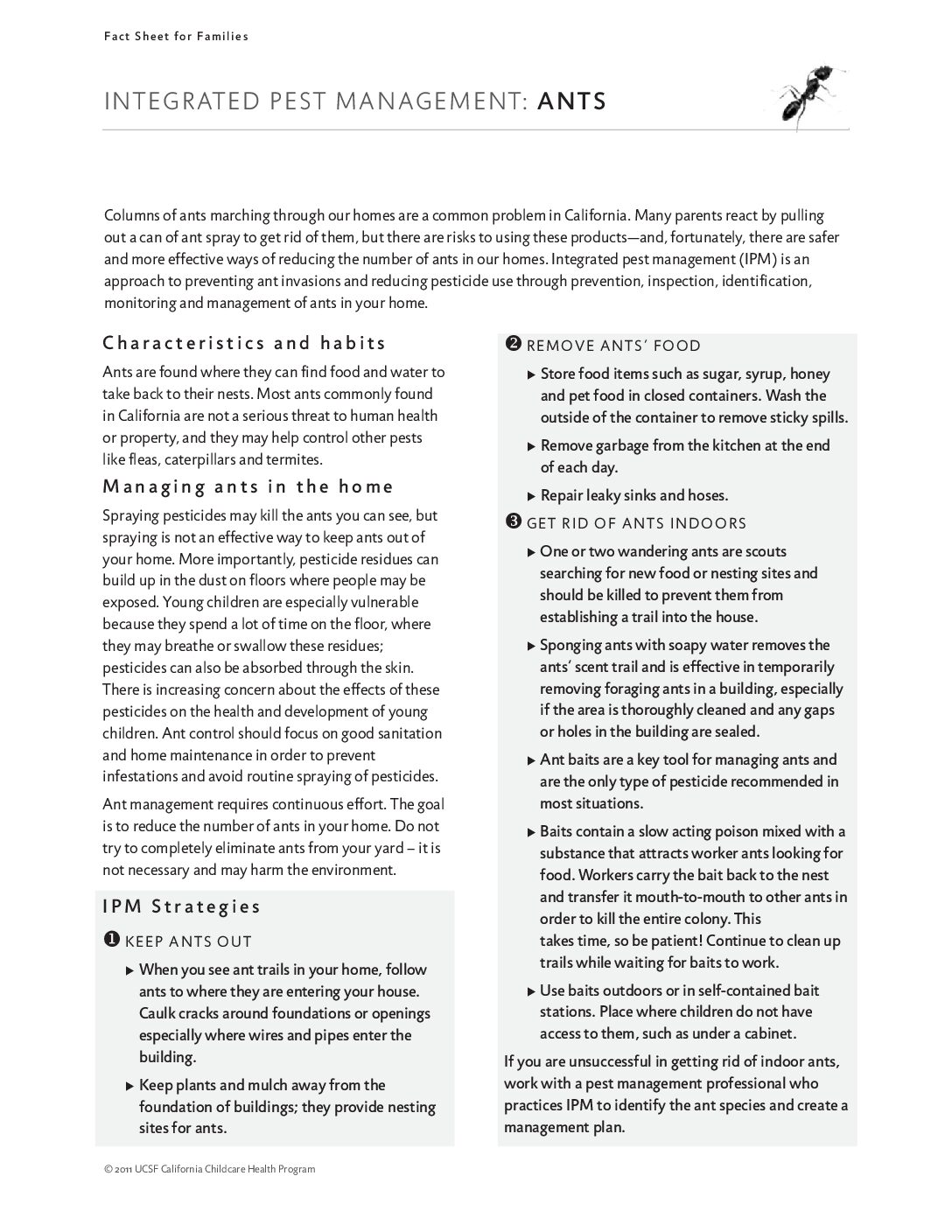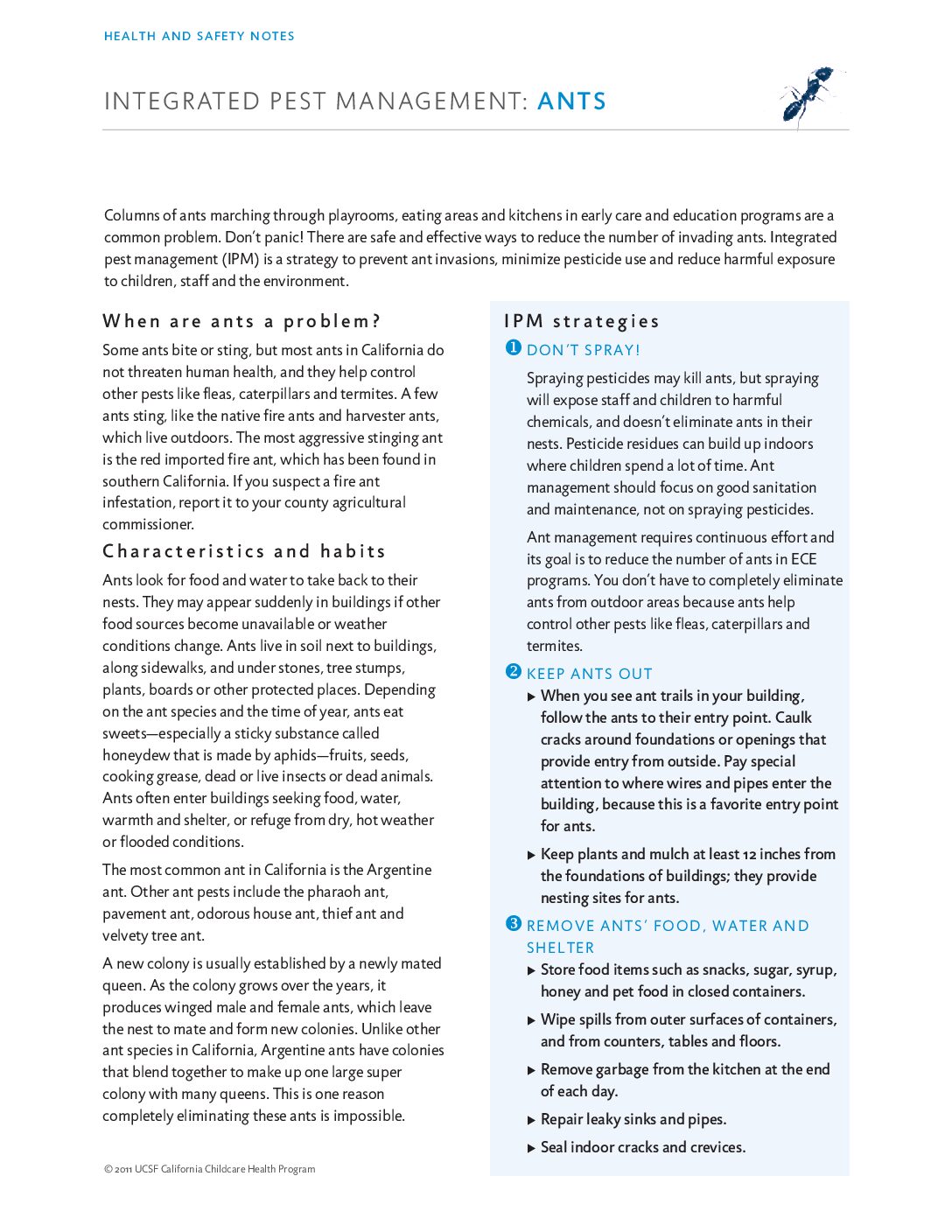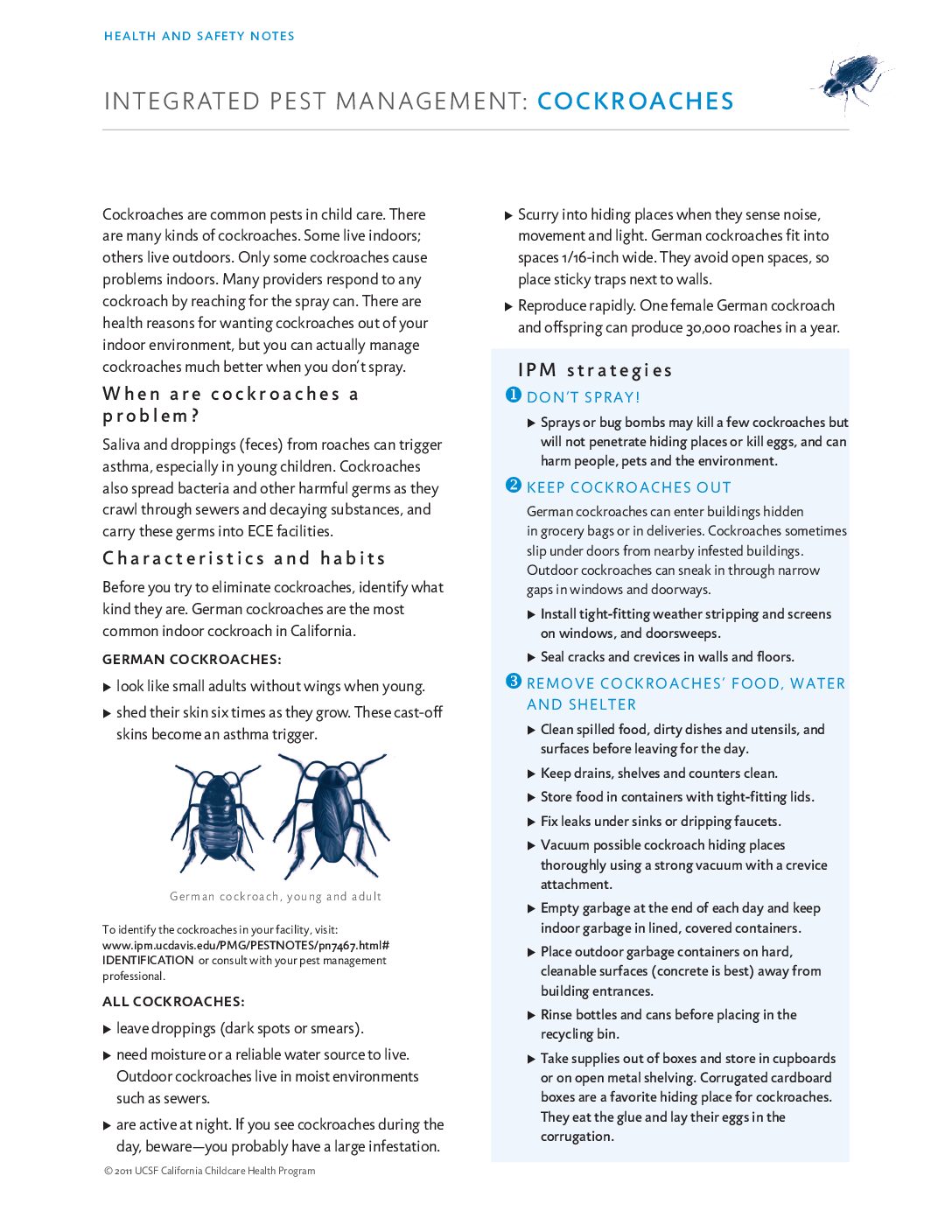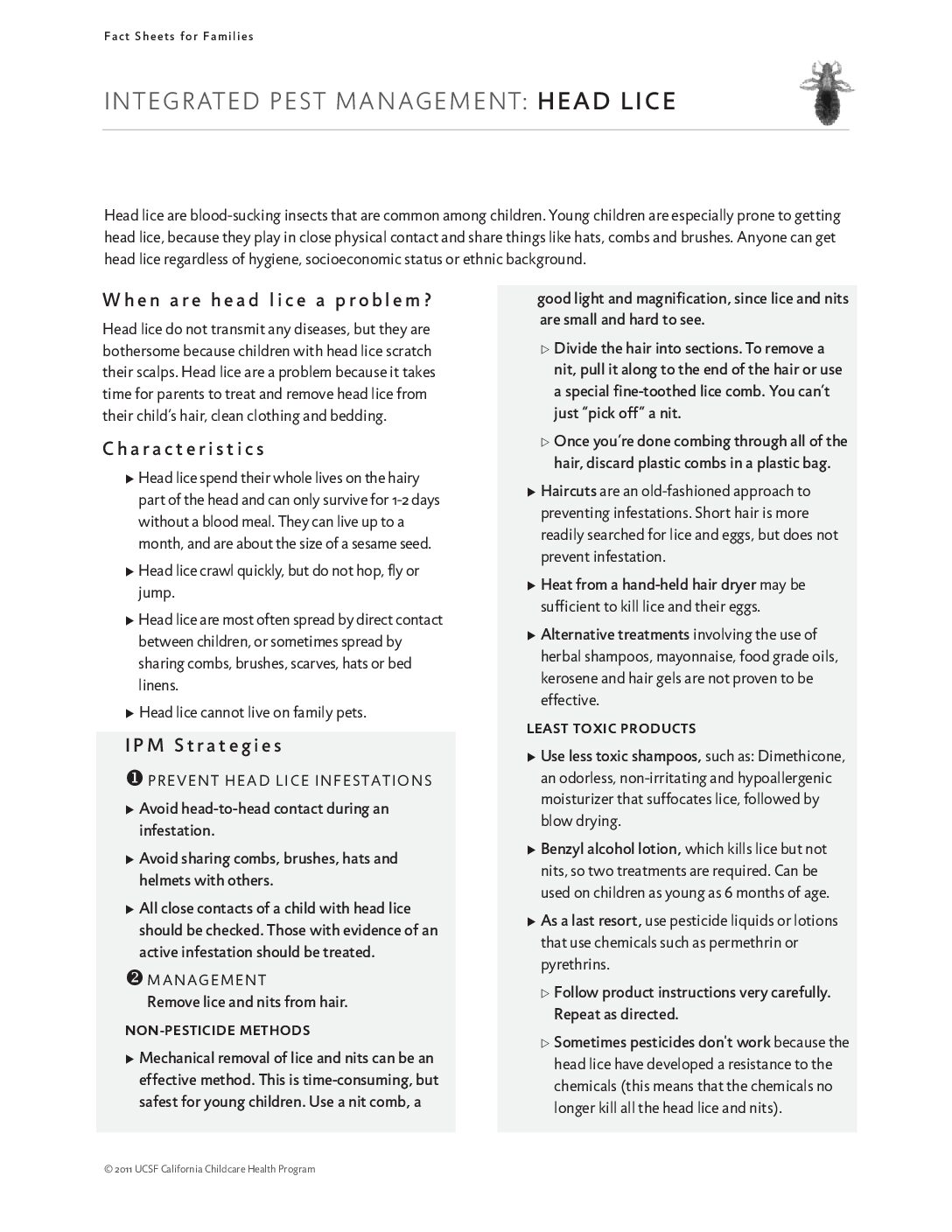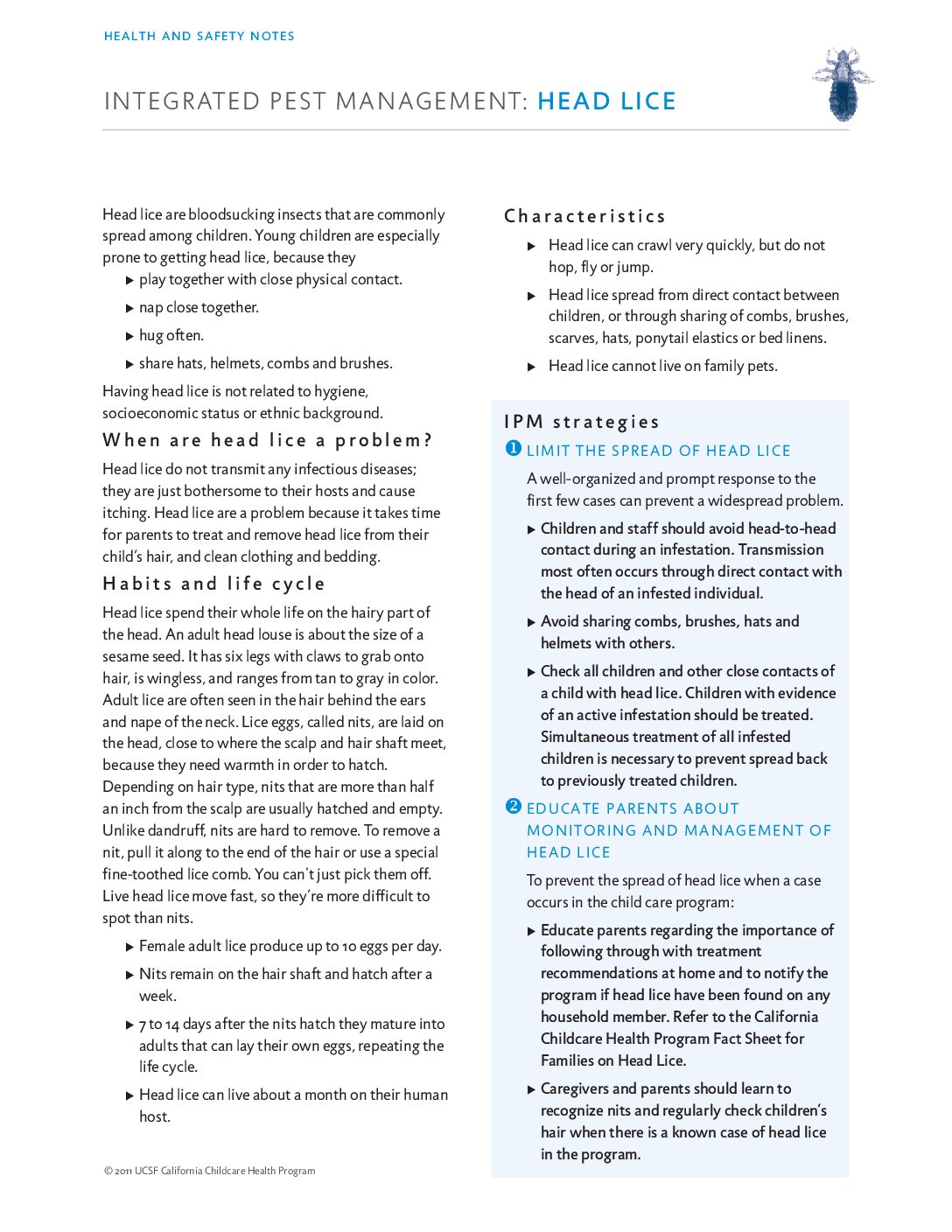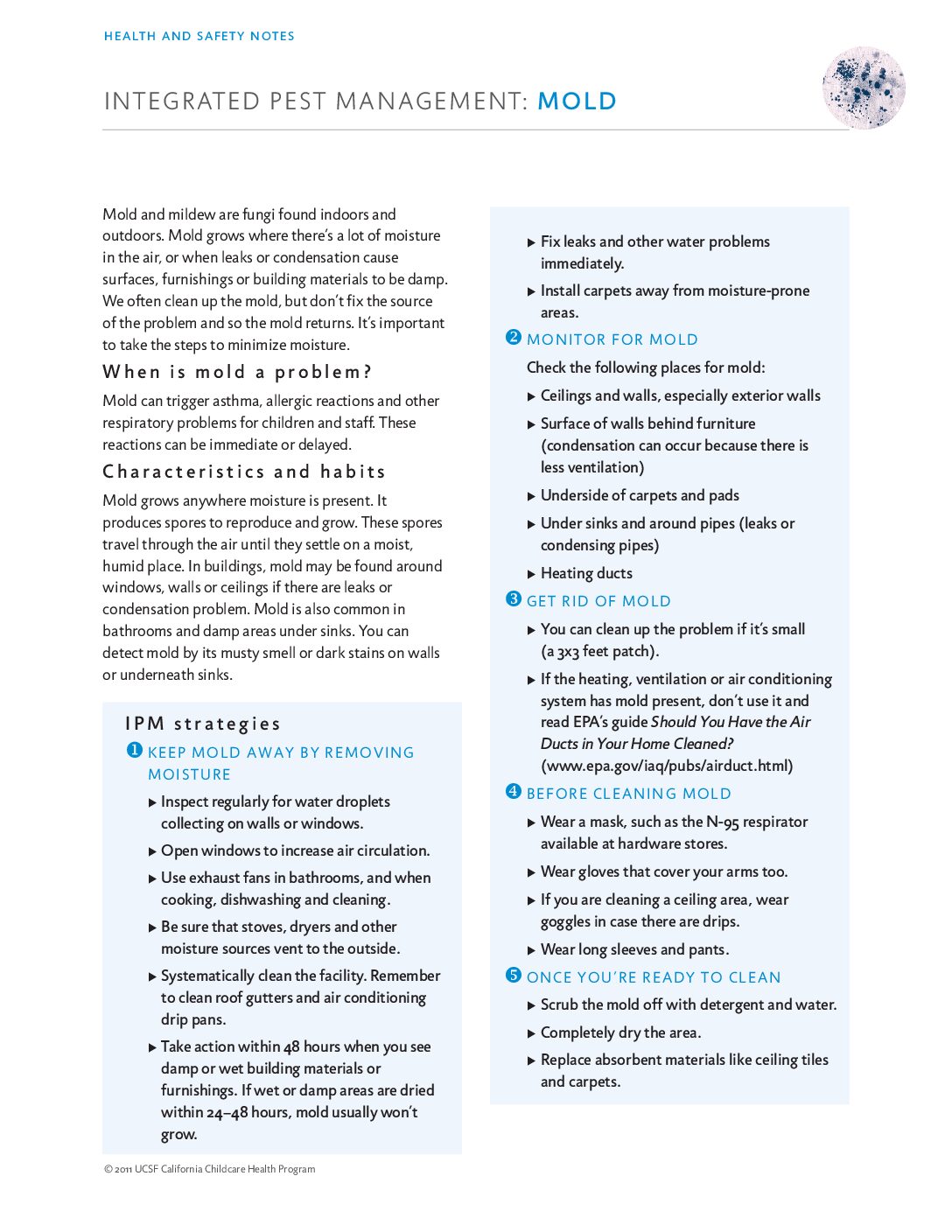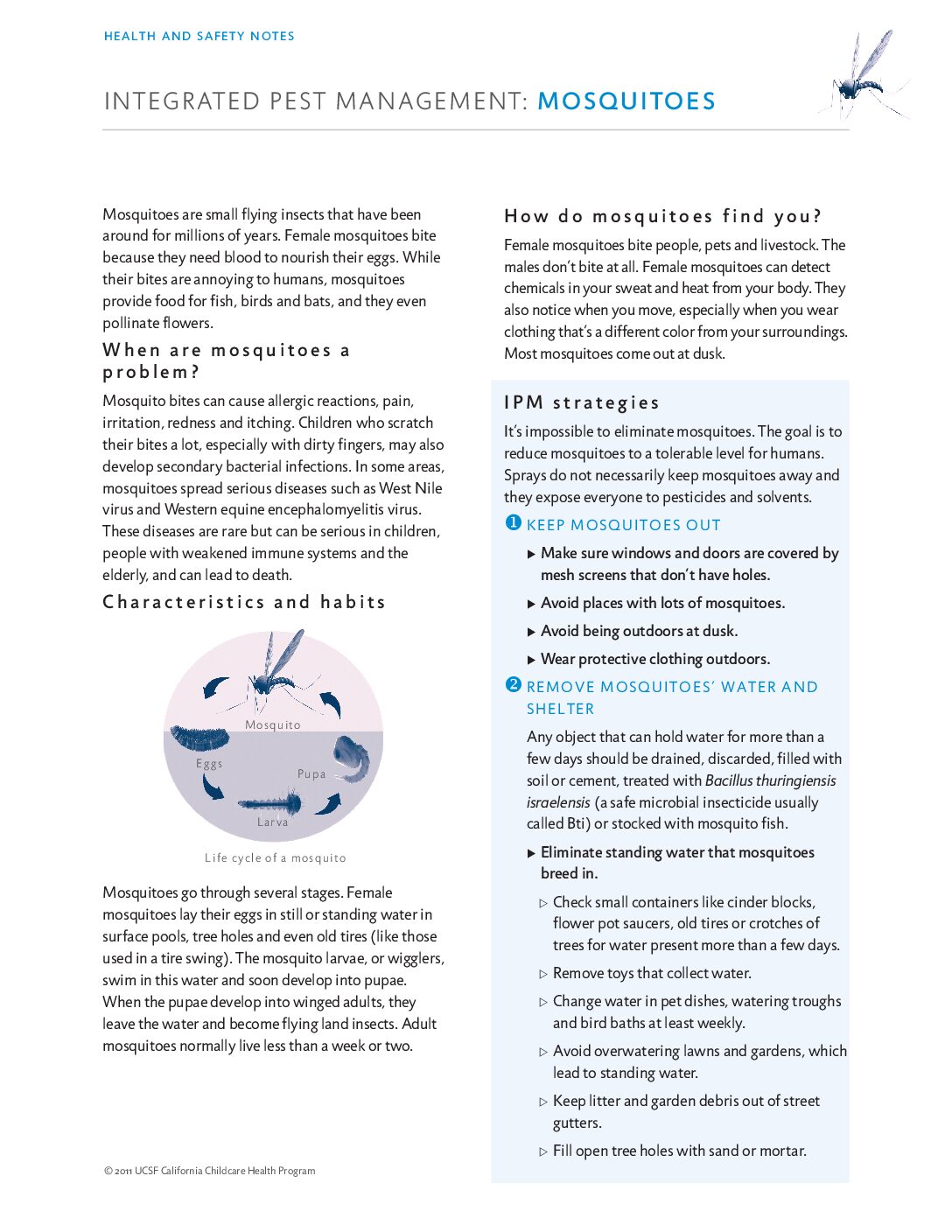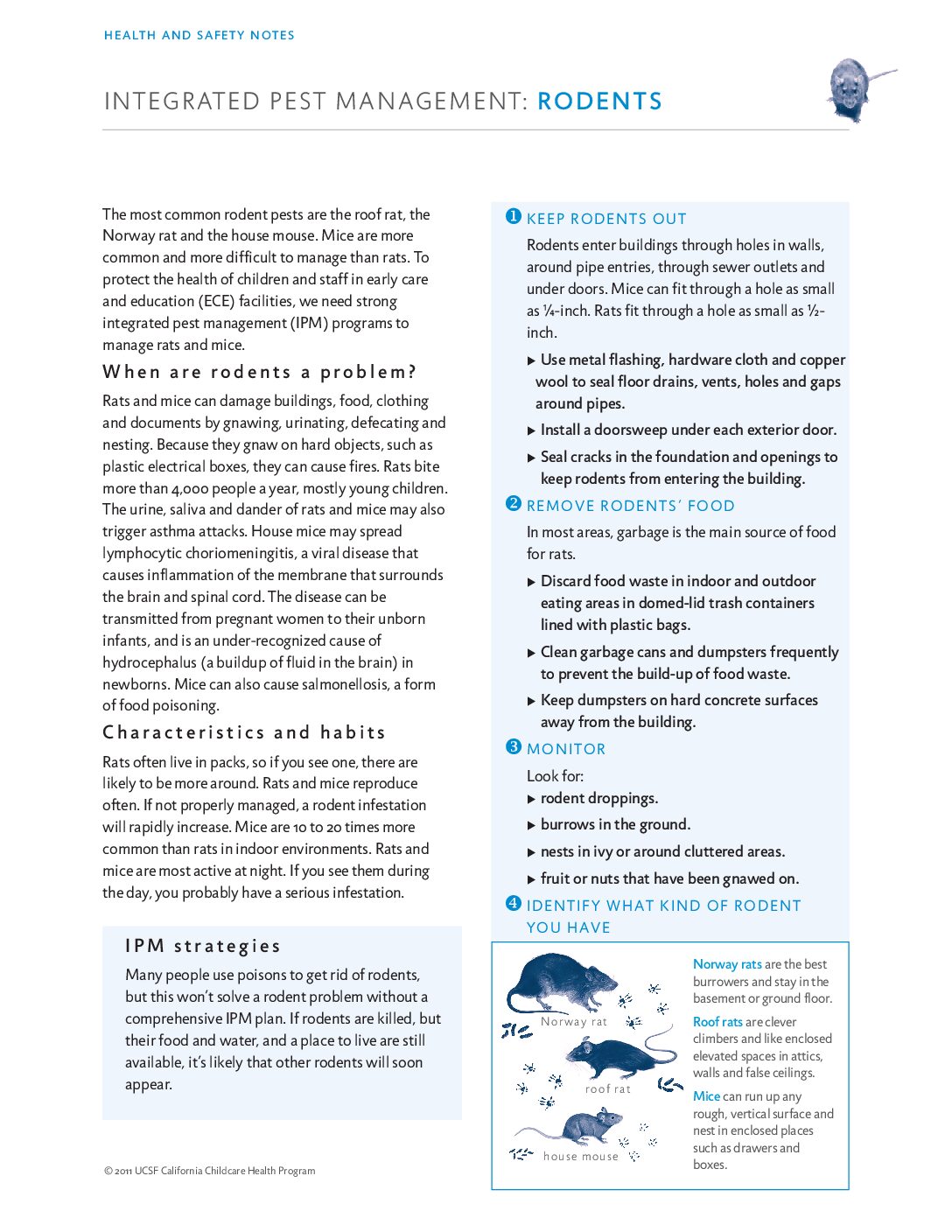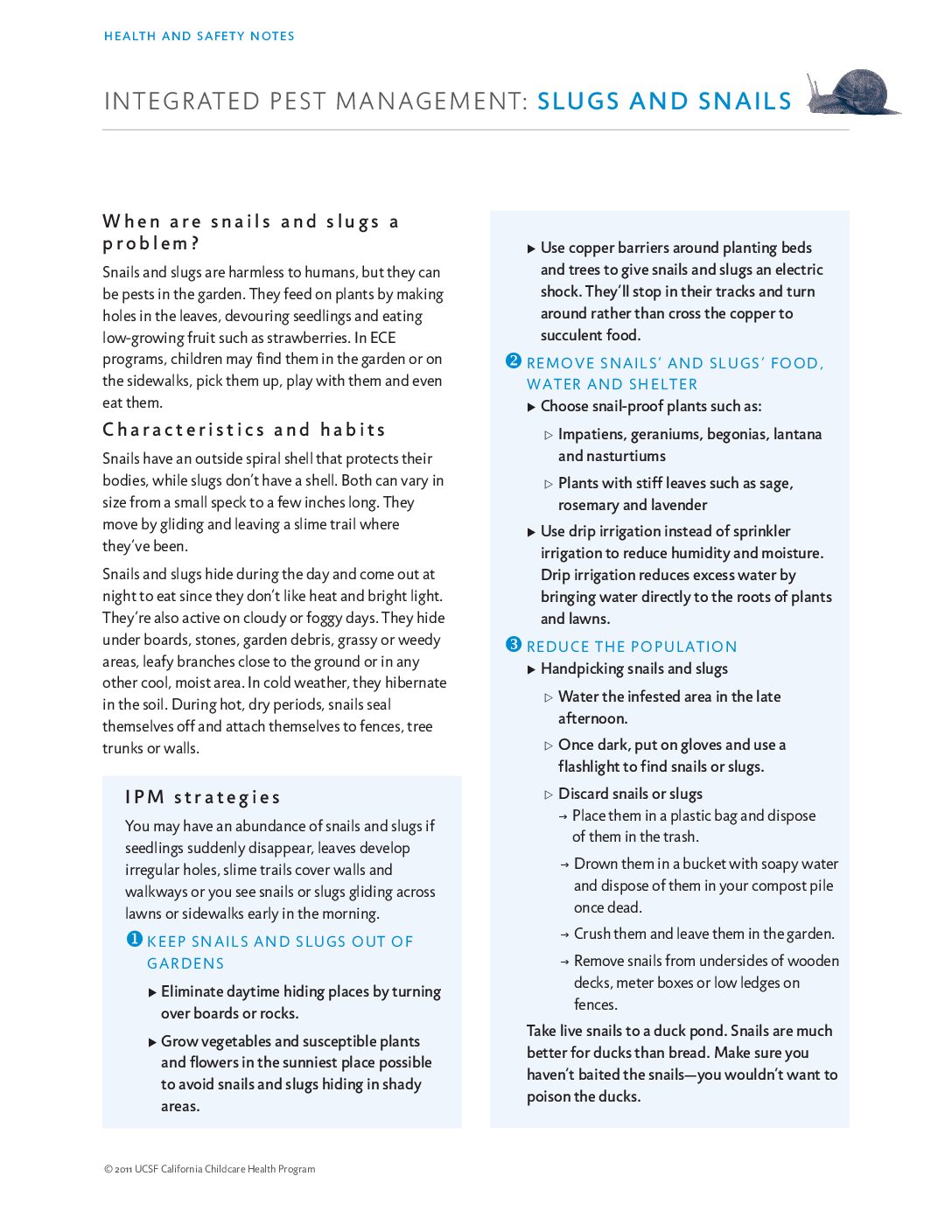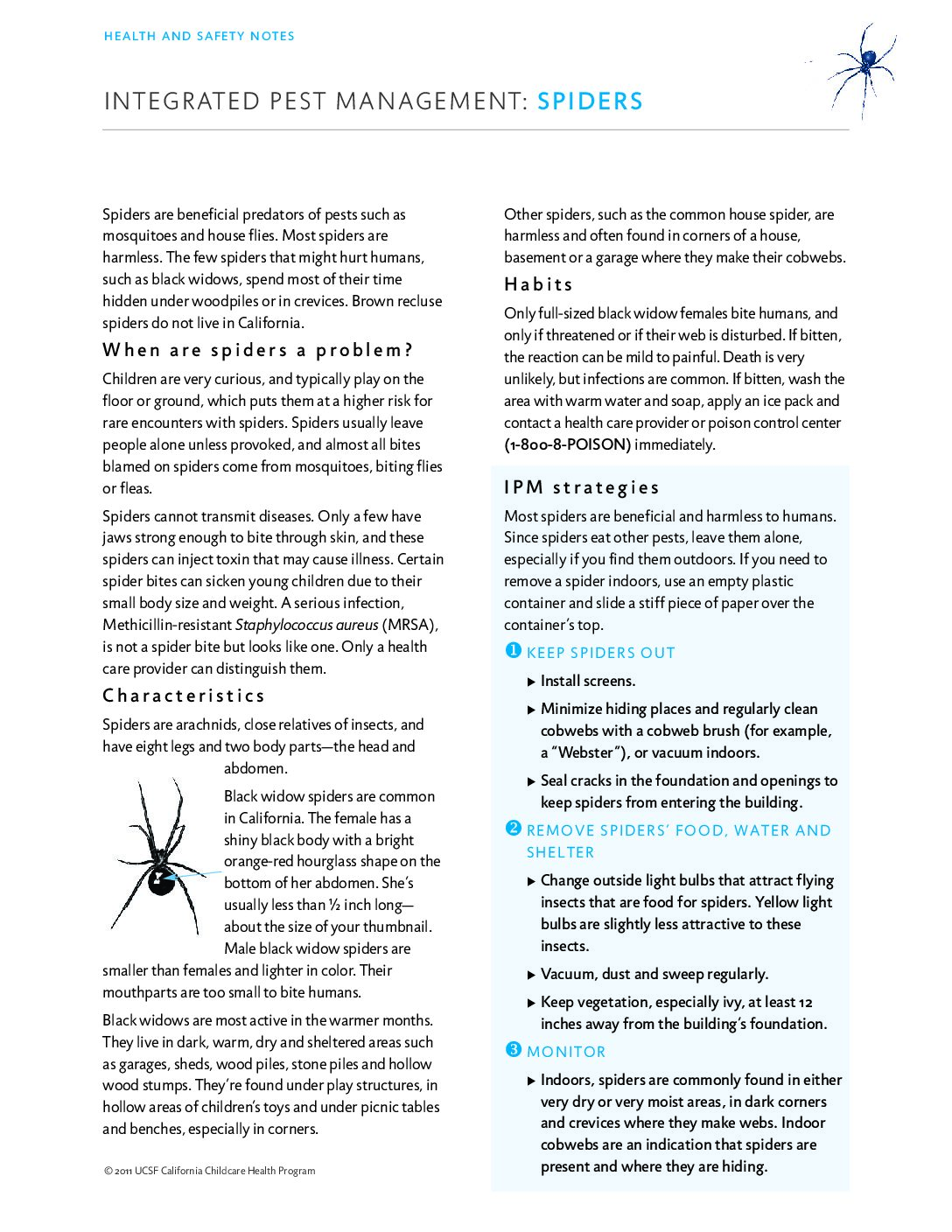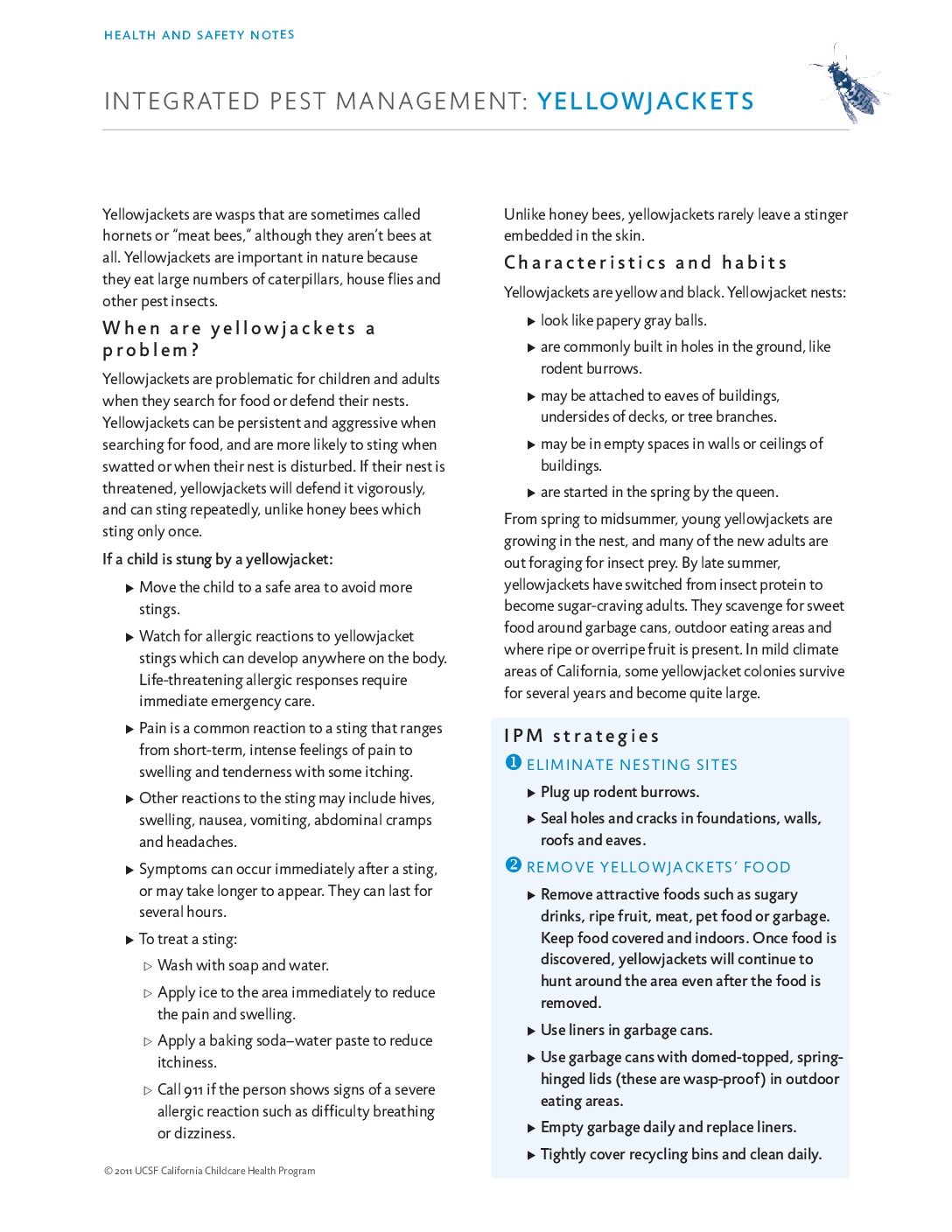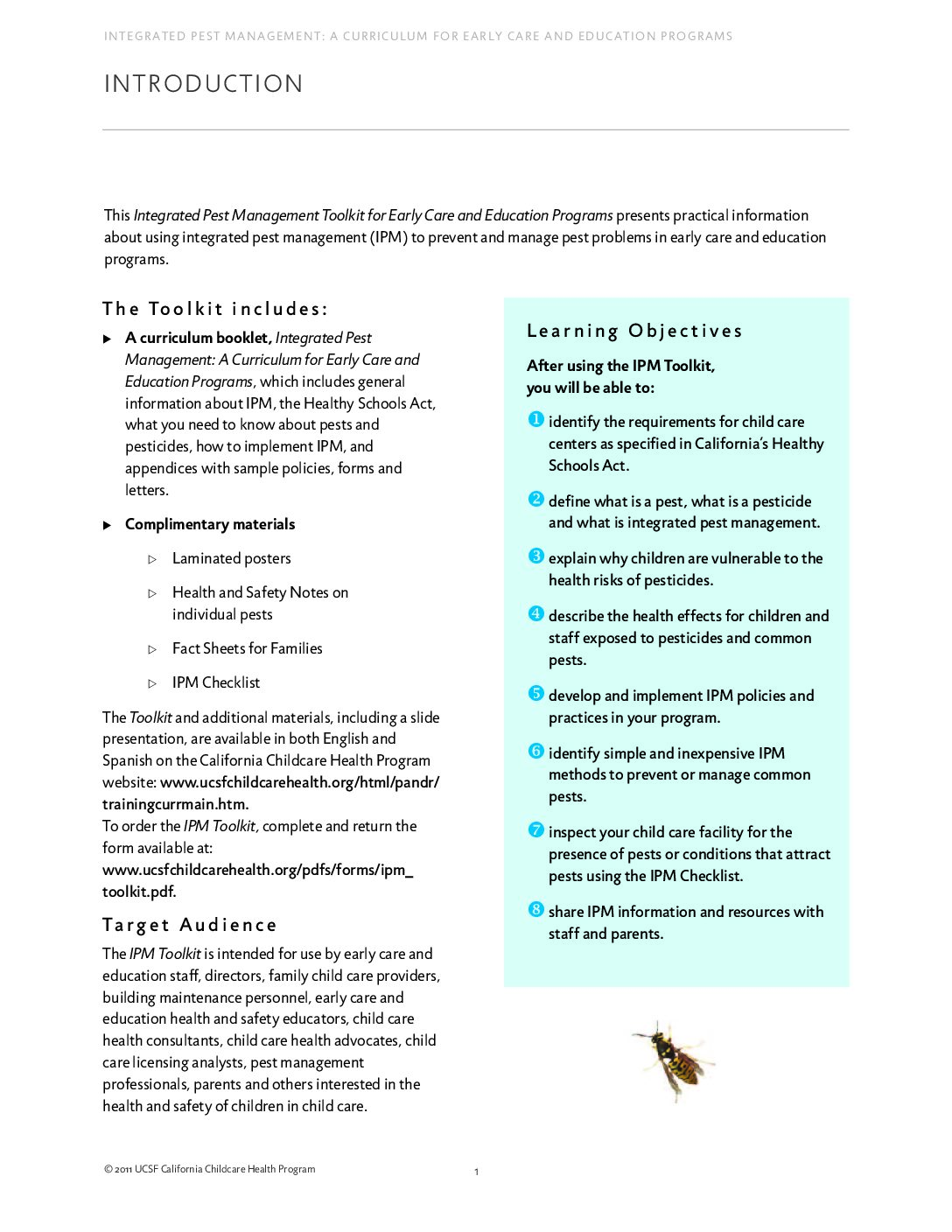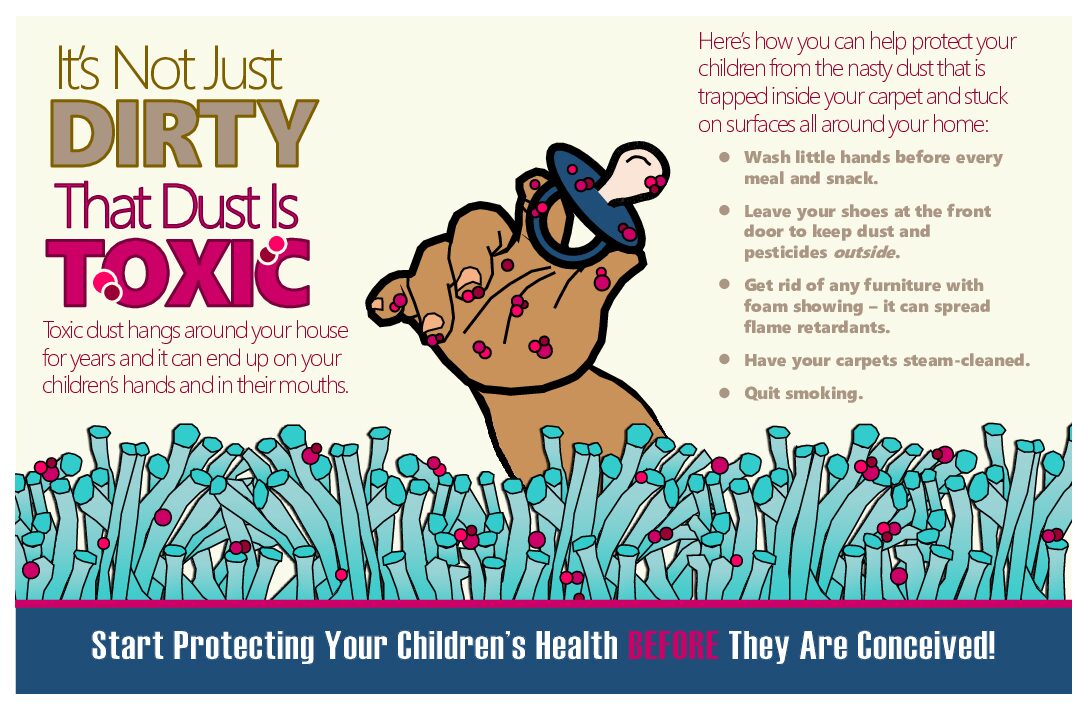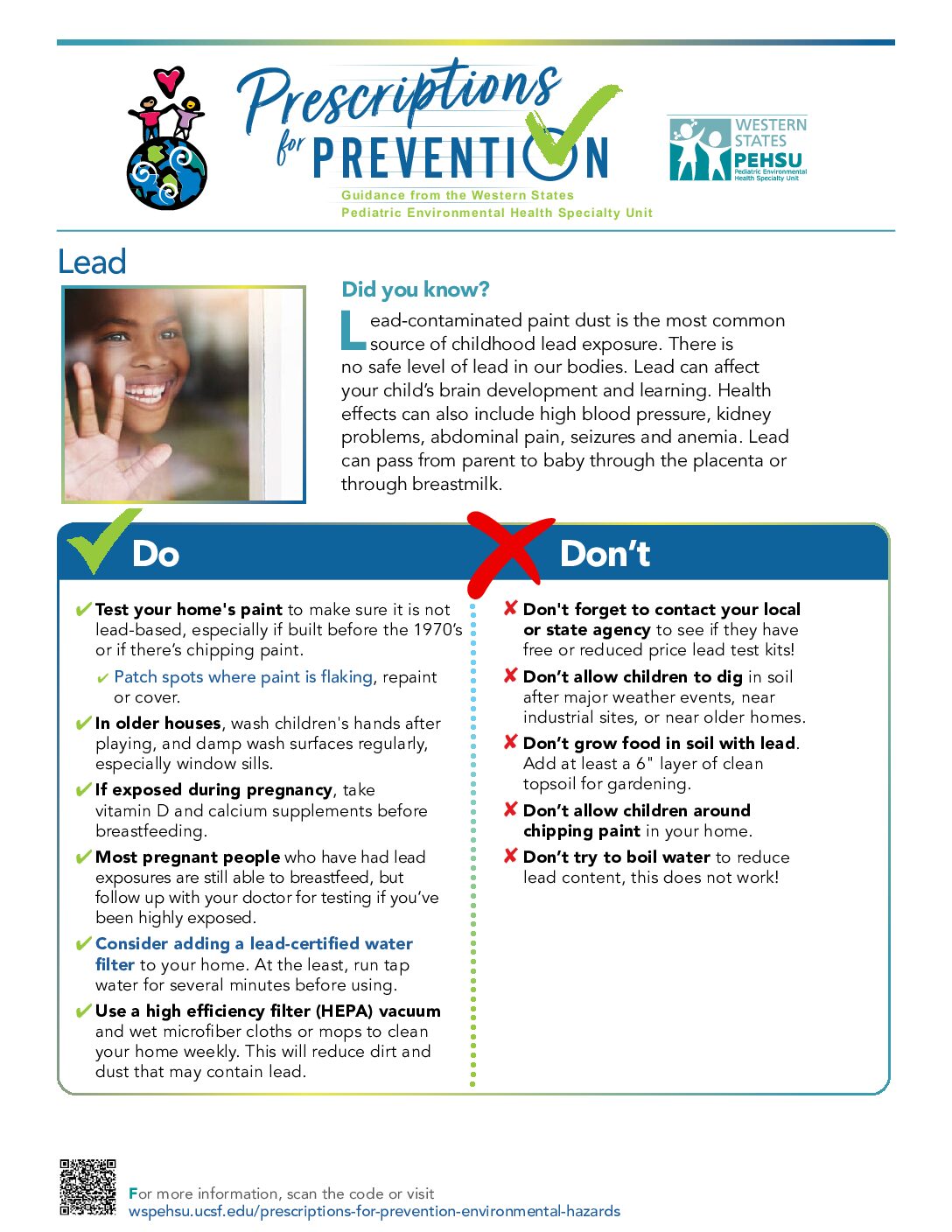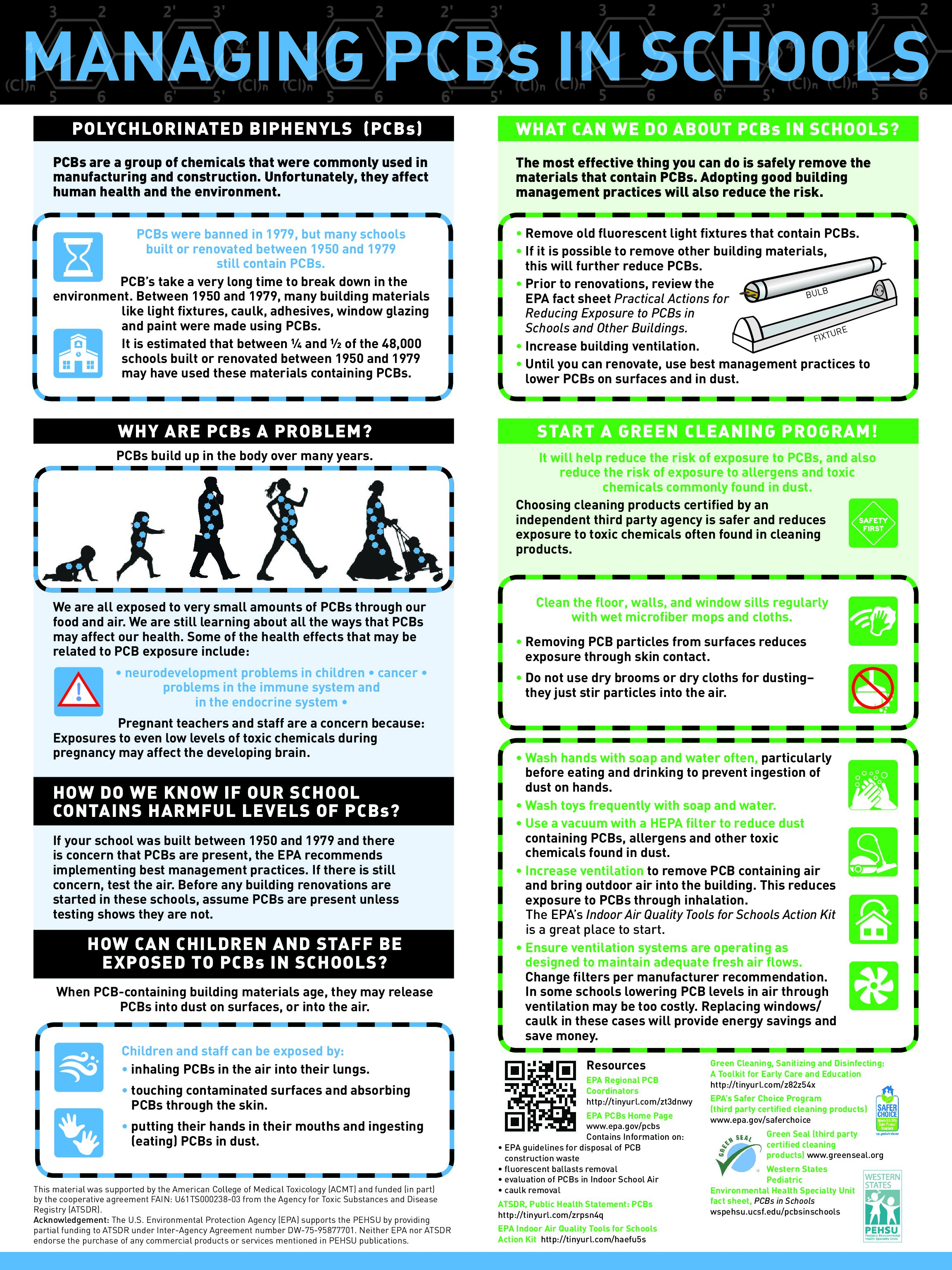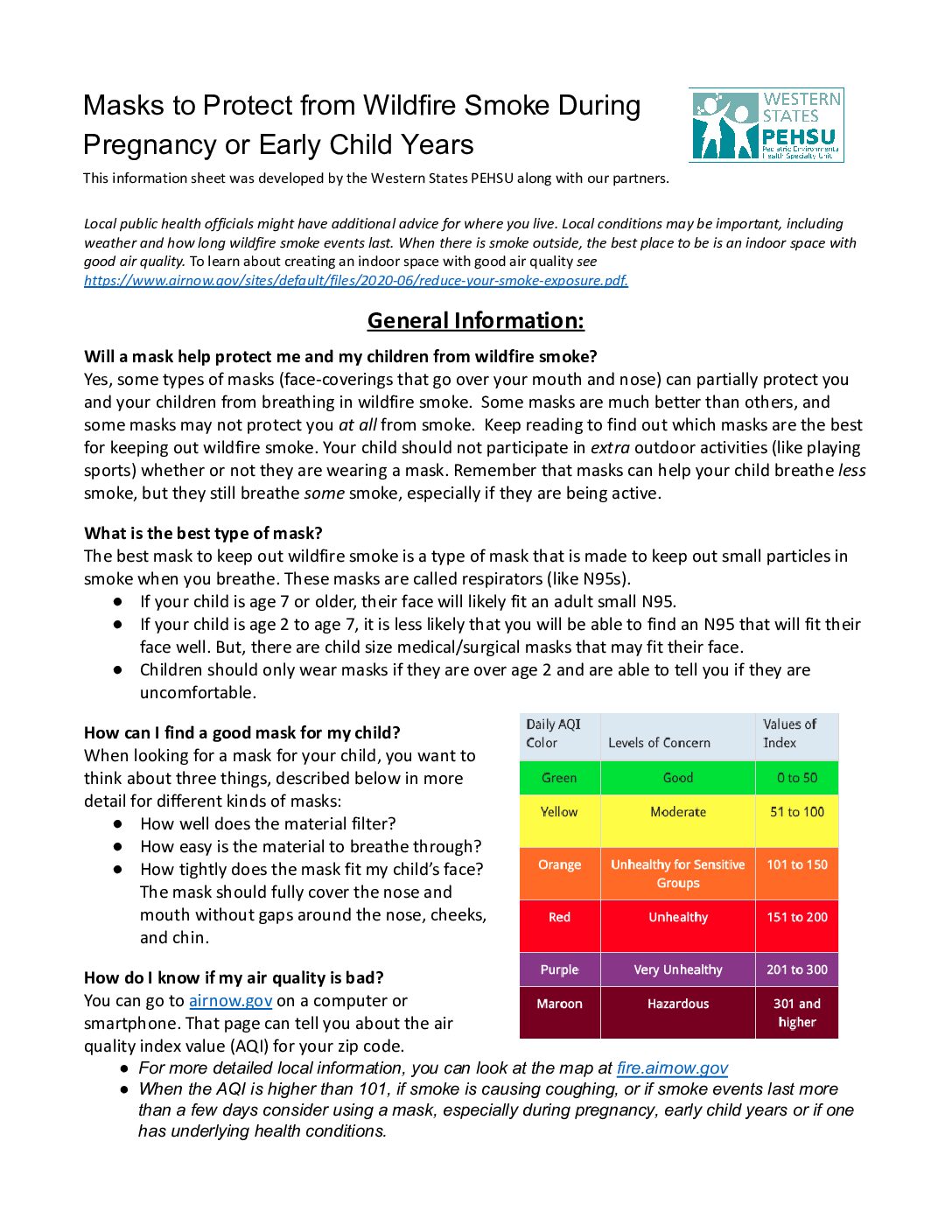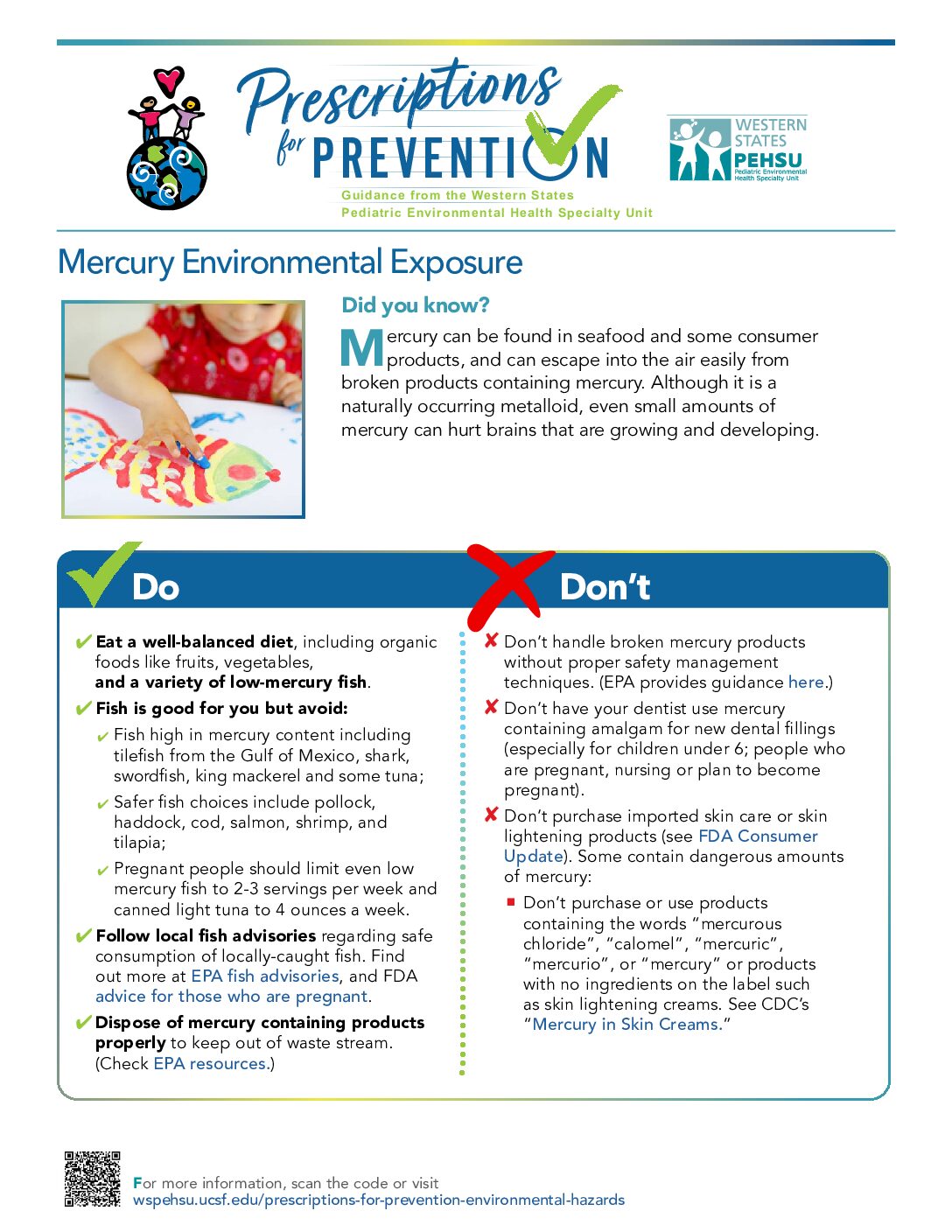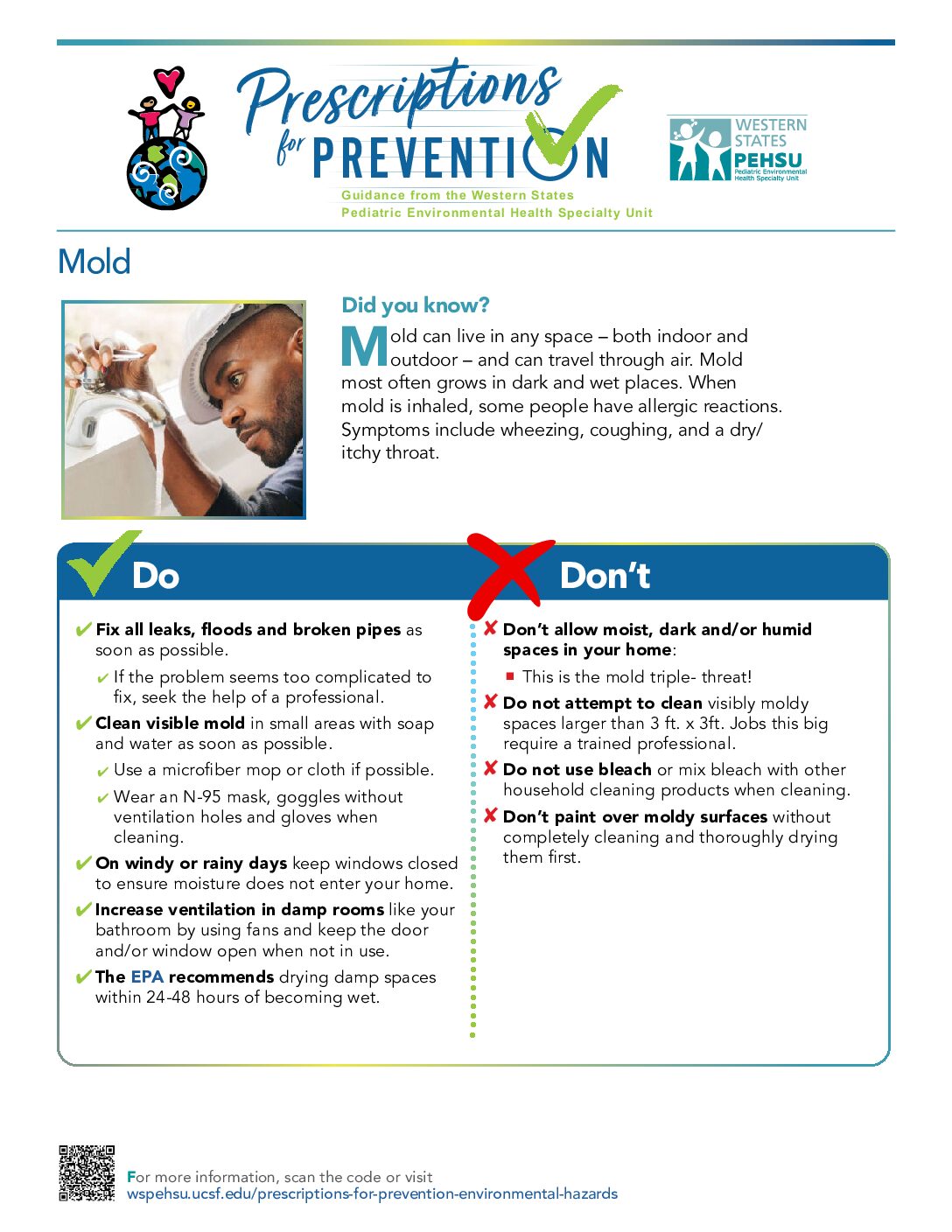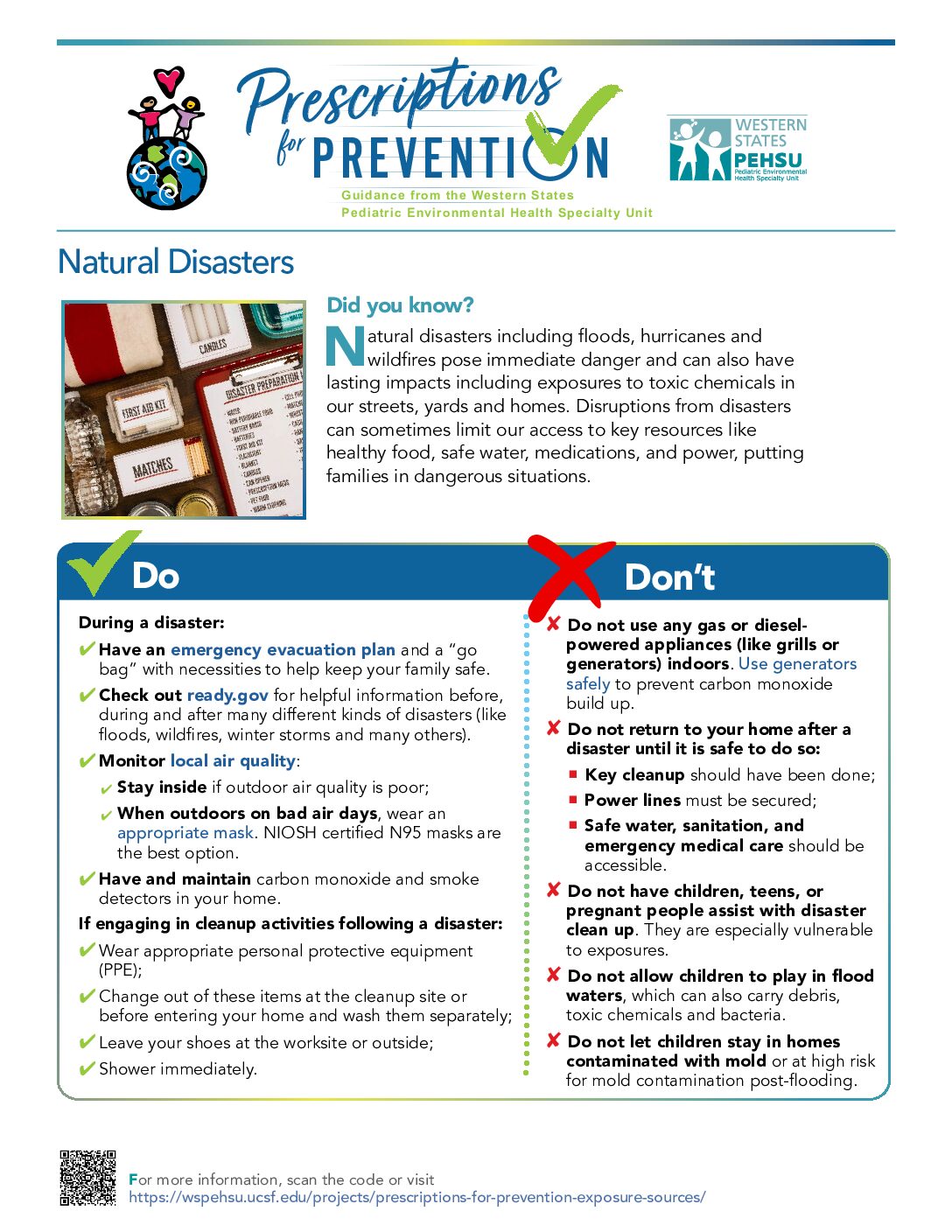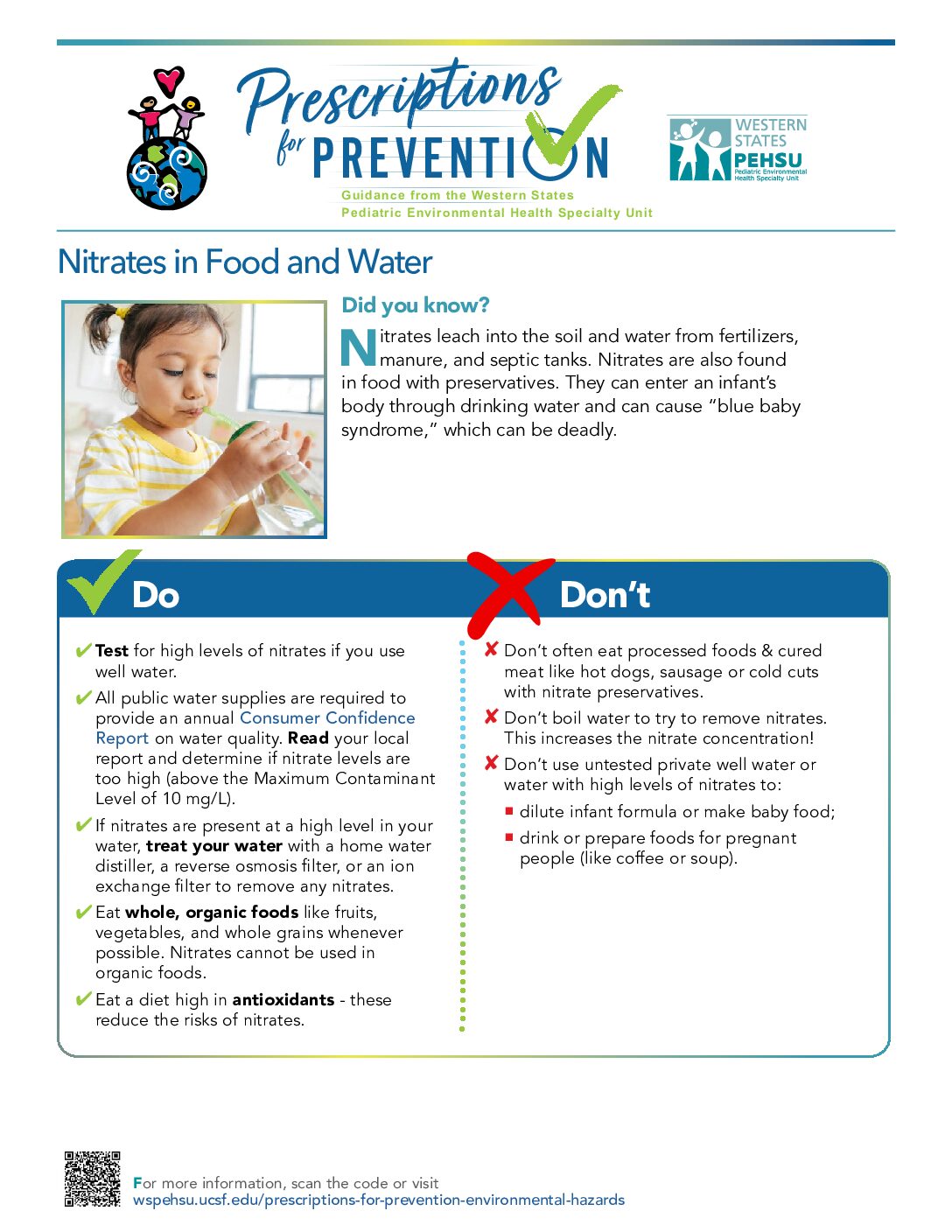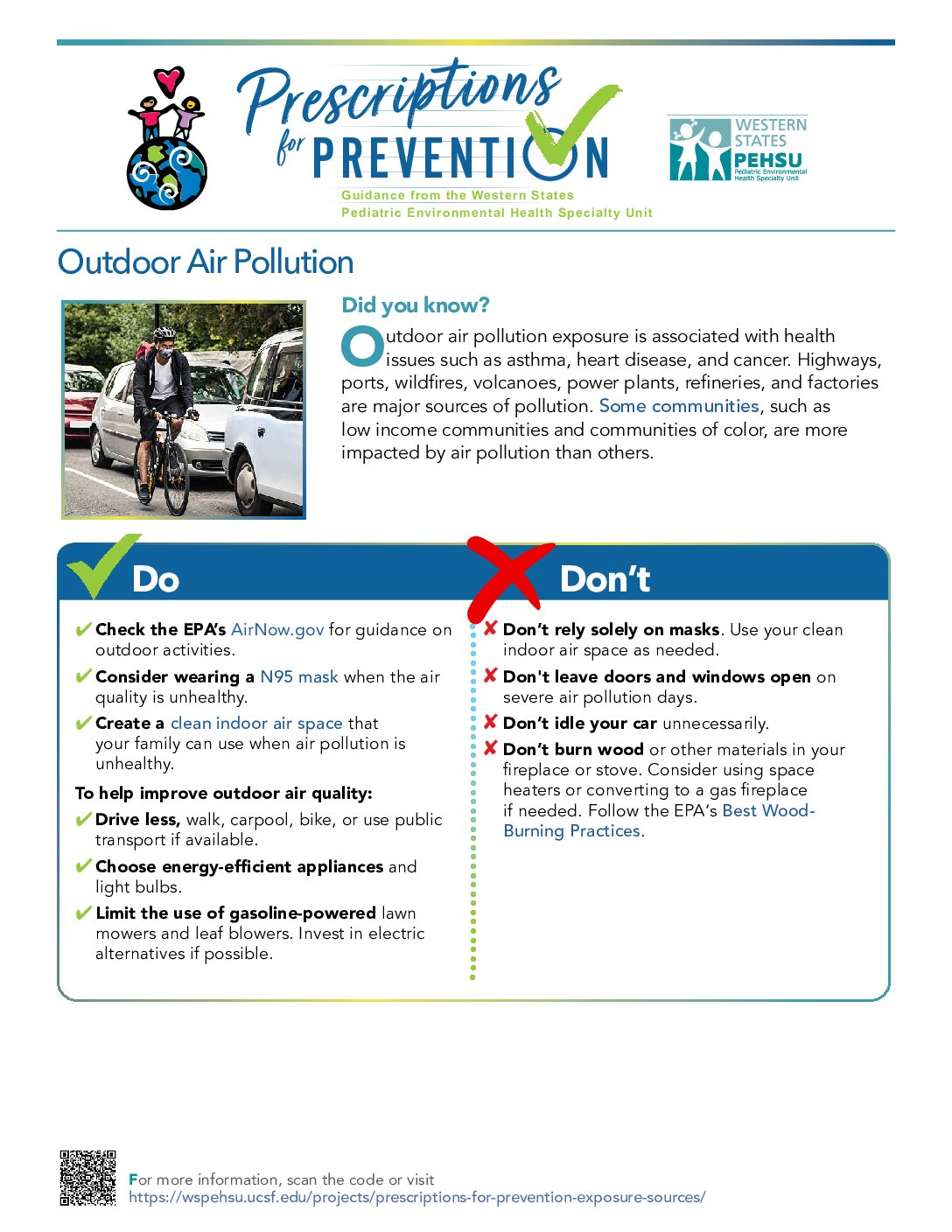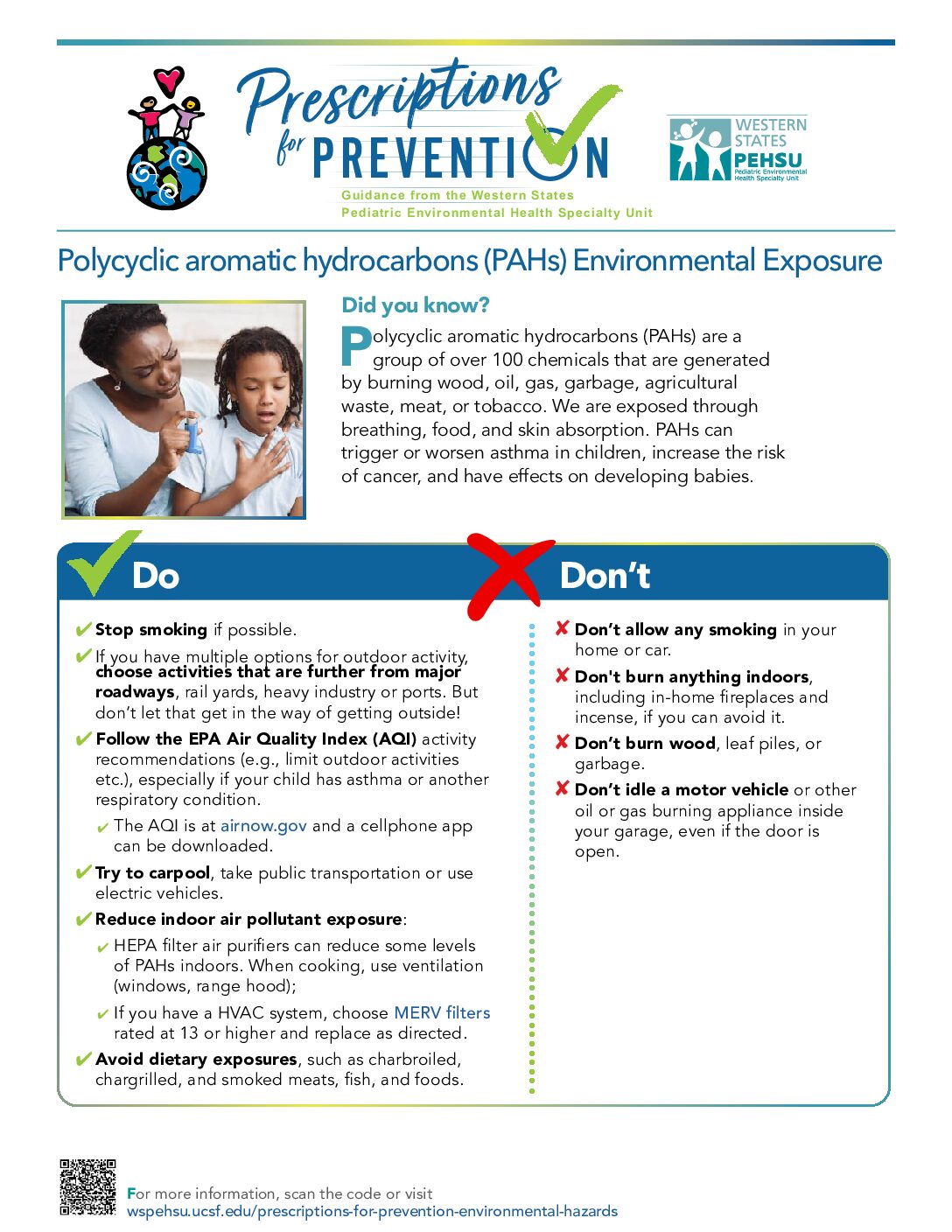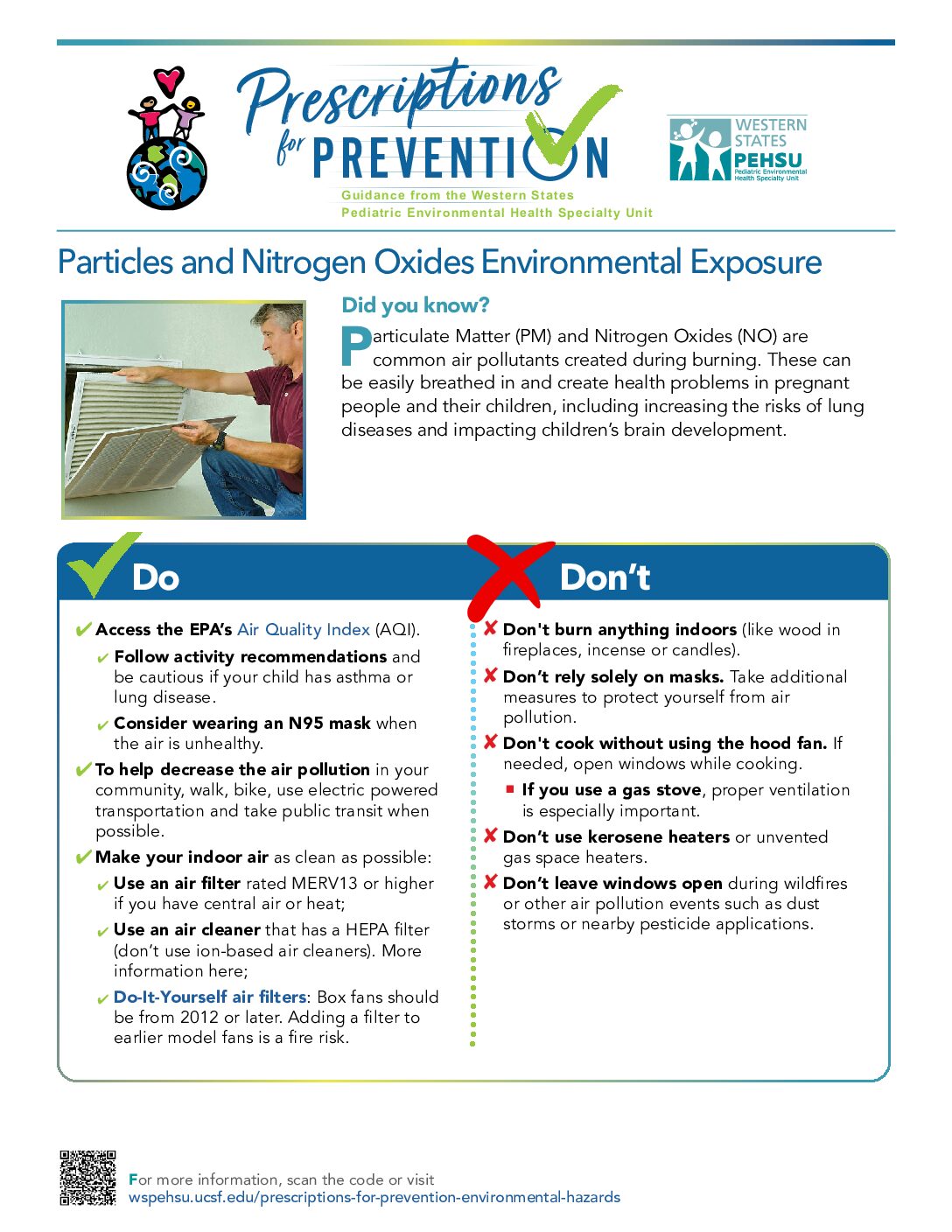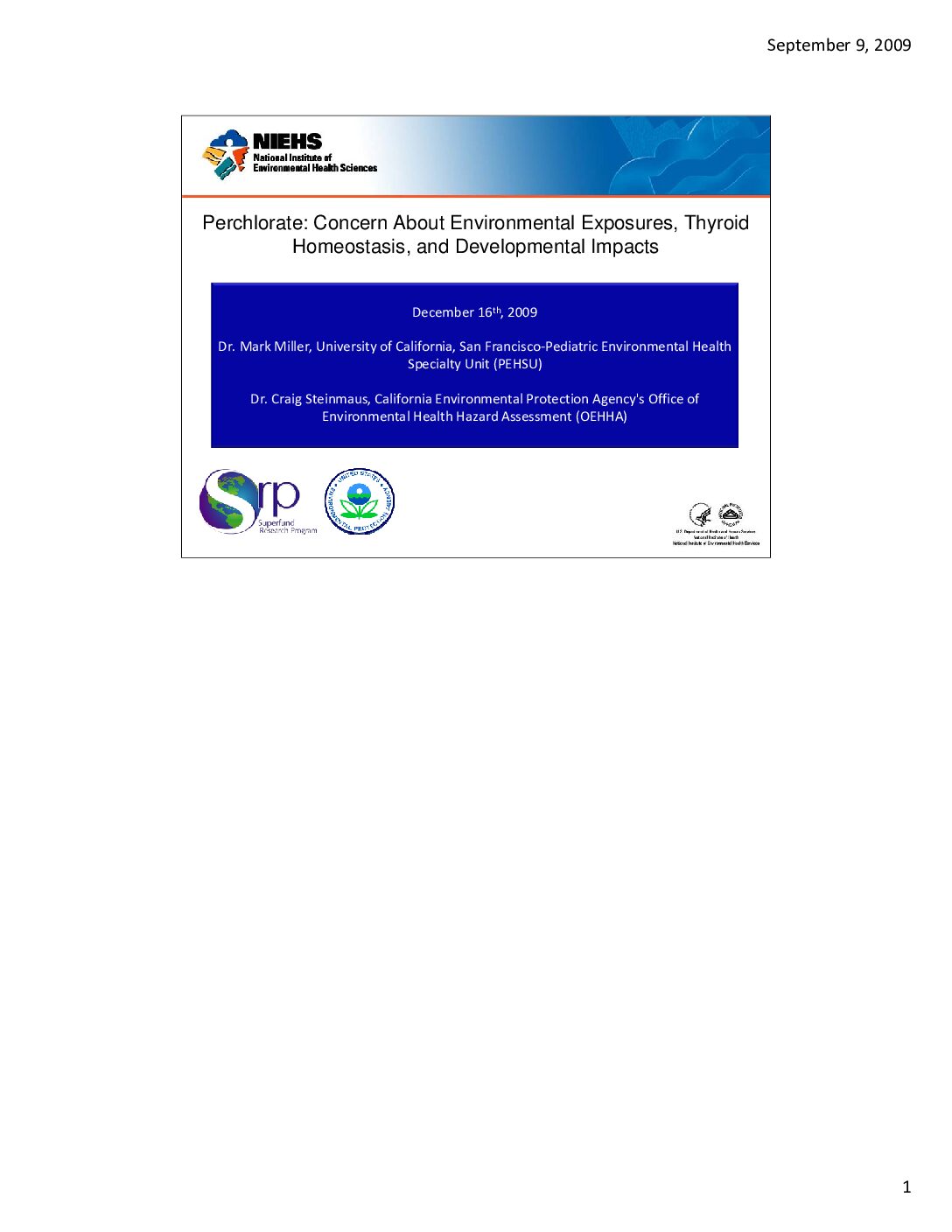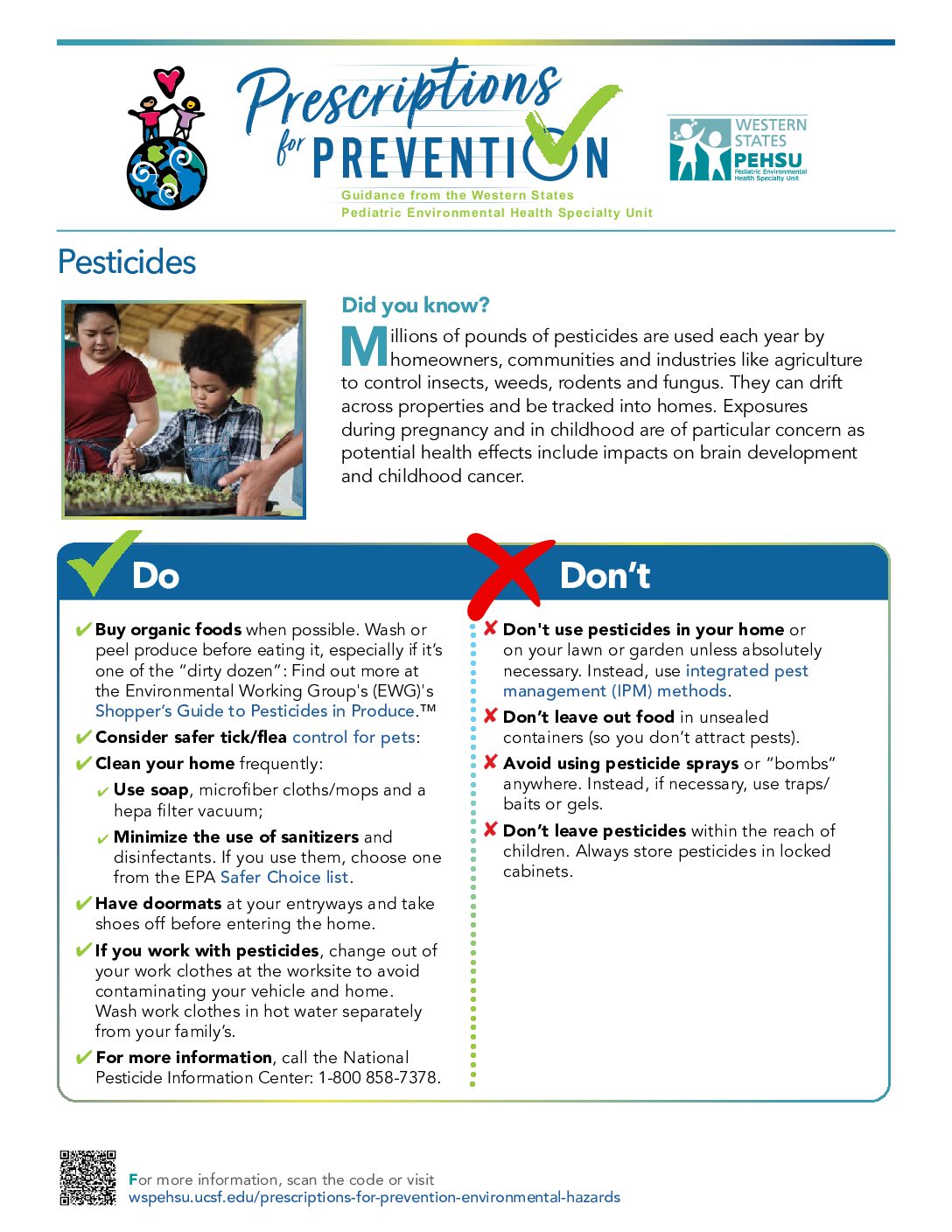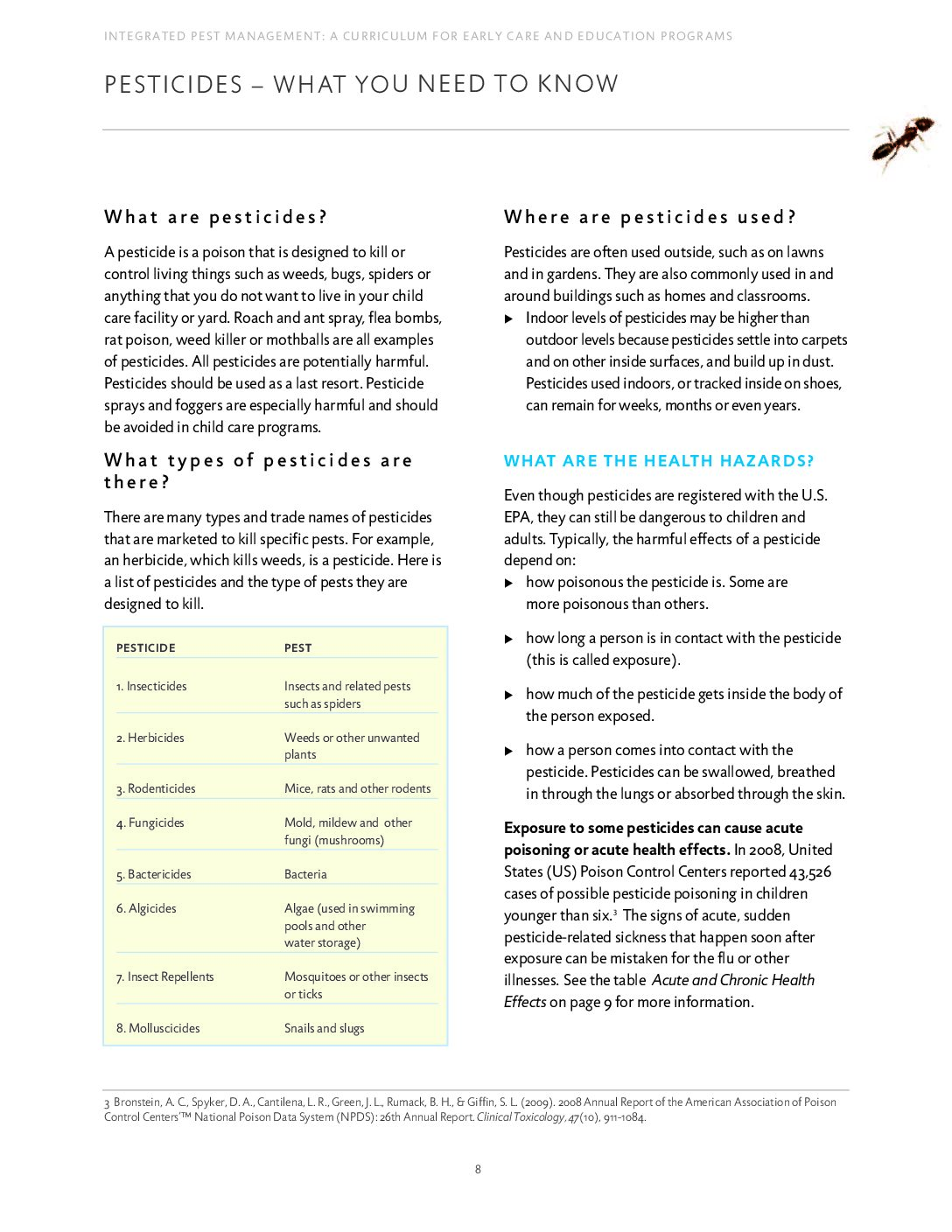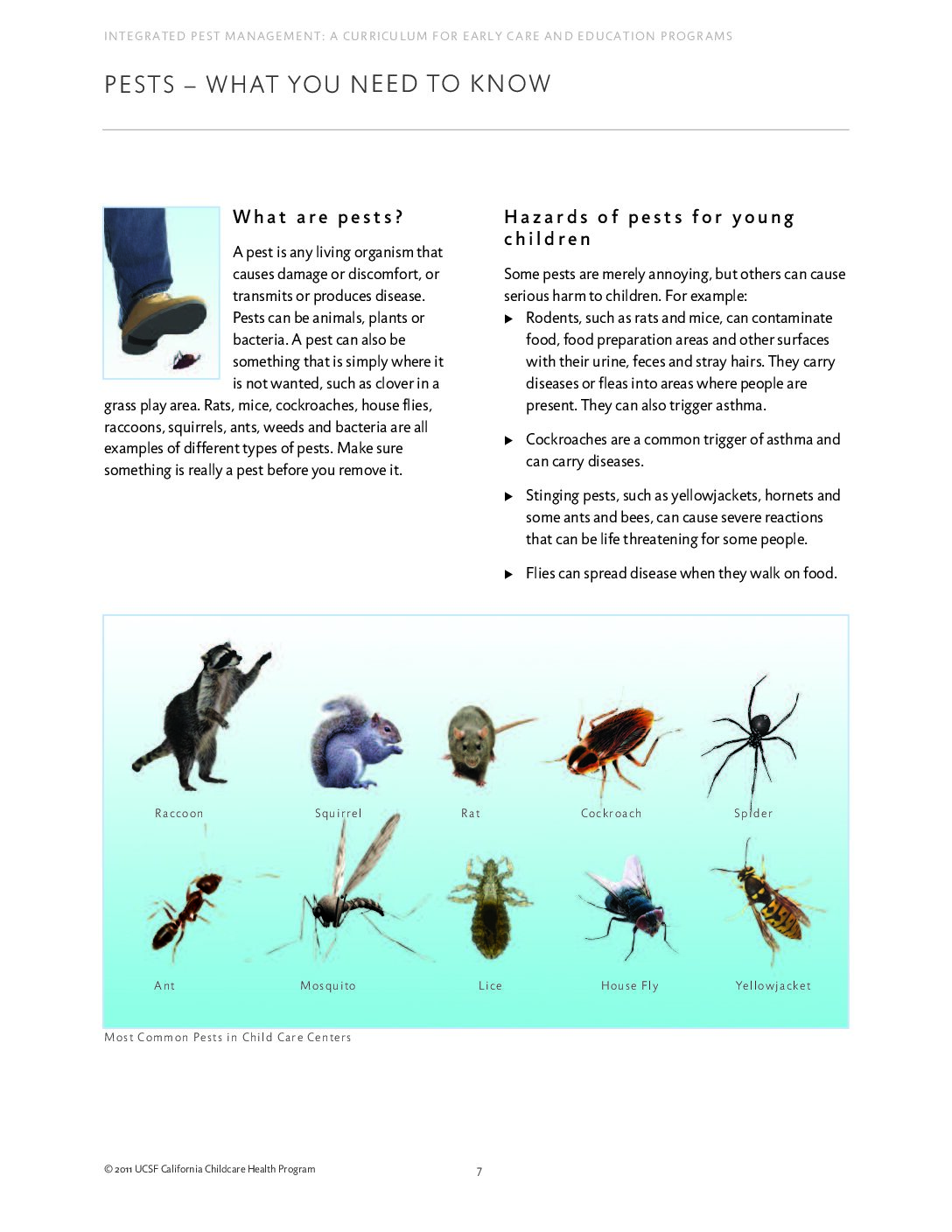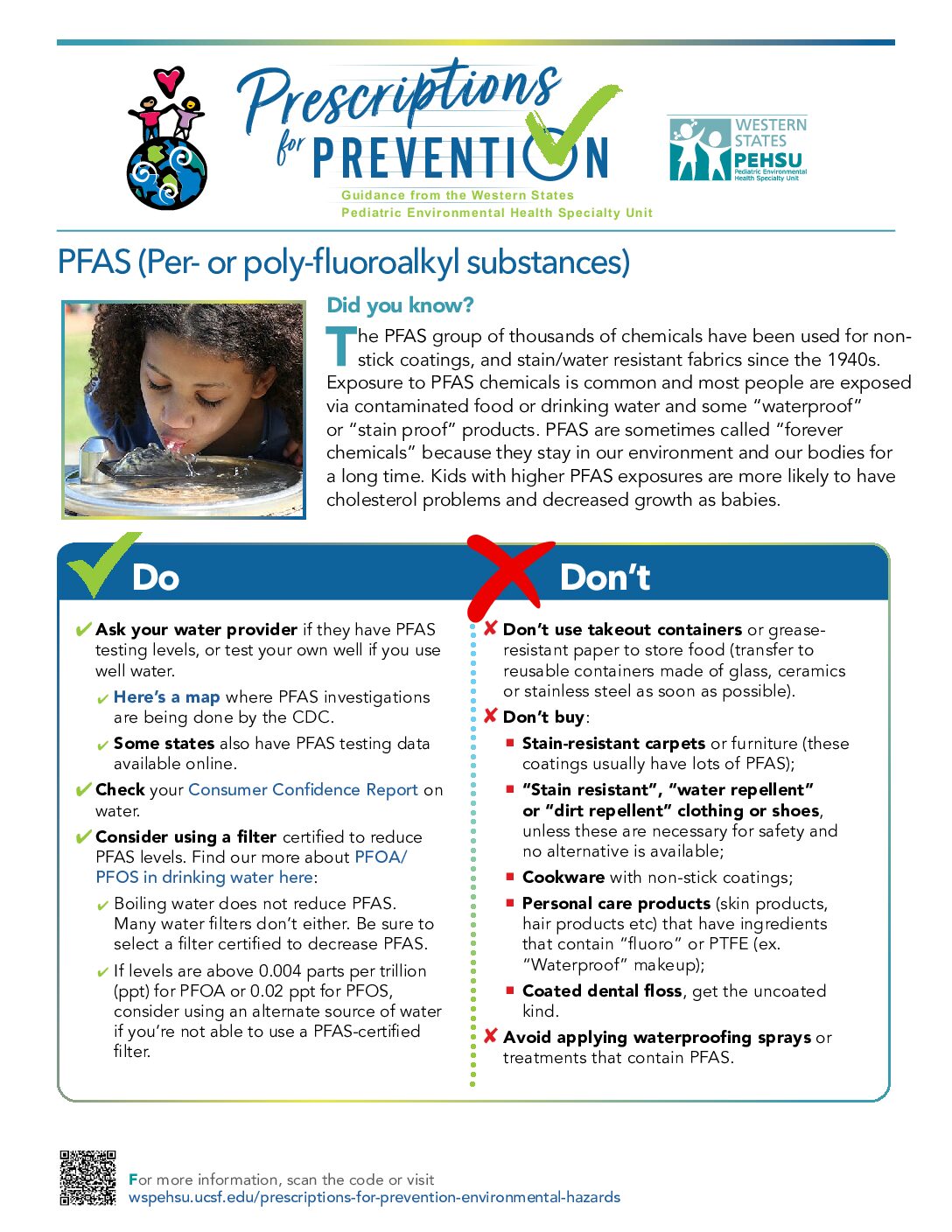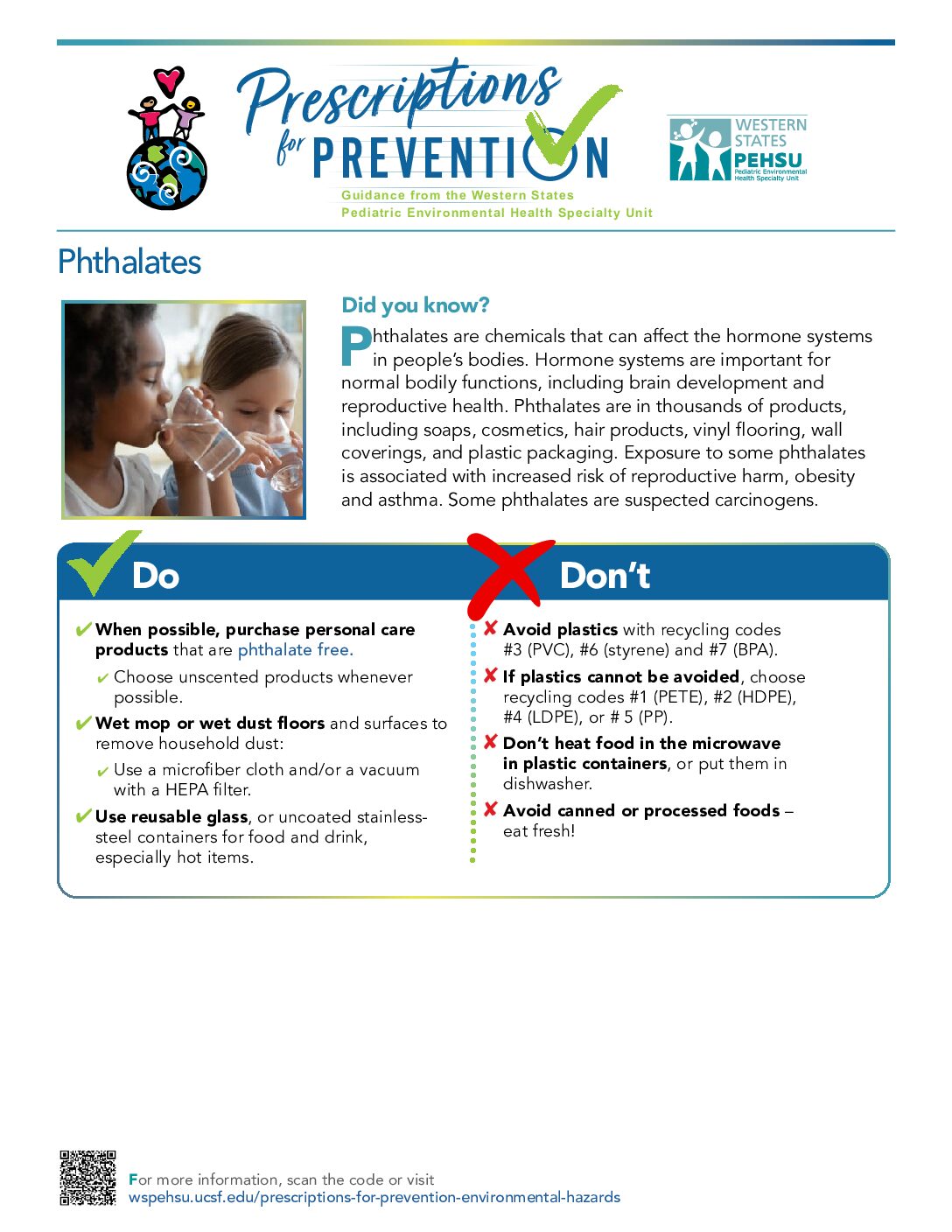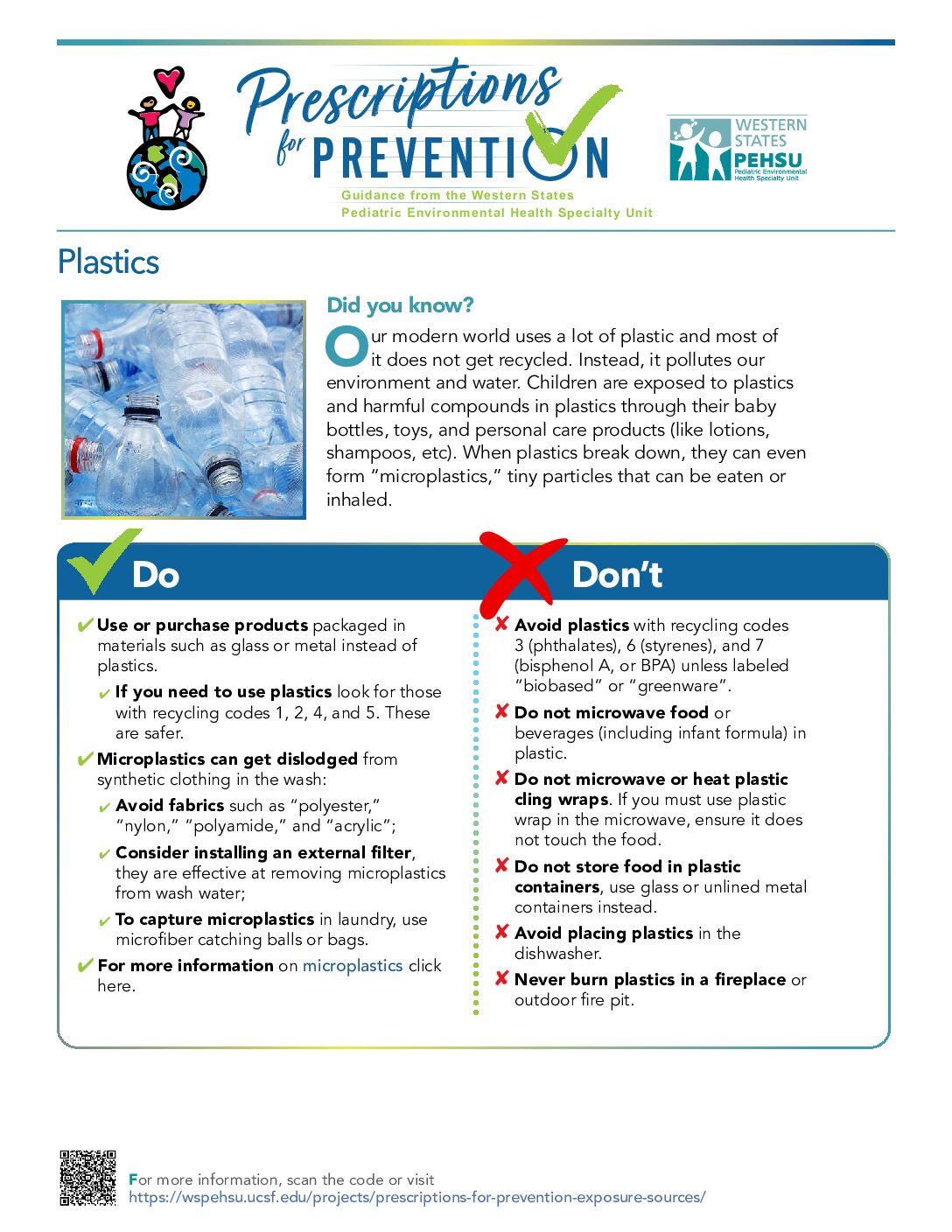This training module uses Brett’s story to examine the environmental and genetic contributors to asthma, providing insights into prevention and management strategies.
This training explores the environmental contributions to childhood cancer and prevention strategies.
Sofia’s story in this module addresses the health impacts of wildfires, discussing exposure risks, vulnerable populations, and measures to mitigate adverse health effects during wildfire events.
This document addresses arsenic exposure, its sources (such as contaminated water and certain foods), health effects, and preventive strategies to minimize risk. It emphasizes the importance of testing water sources and being aware of dietary intake.
This factsheet outlines the hazards of asbestos exposure, commonly found in older building materials. It details health risks like lung diseases and mesothelioma, identifies potential asbestos-containing materials, and advises on safe handling and abatement procedures.
This document examines the presence of heavy metals in baby food, their potential health impacts on infants, and recommendations for parents to reduce exposure. It suggests diversifying diets and choosing products tested for contaminants.
This factsheet focuses on Bisphenol A (BPA), a chemical used in plastics and resins. It discusses sources of BPA exposure, associated health concerns, and tips to limit contact, such as using BPA-free products and avoiding microwaving plastics.
This poster illustrates steps to break the chain of infection and prevent the spread of diseases in community settings.
Carbon Monoxide (CO) Environmental Exposure: This factsheet highlights the dangers of carbon monoxide—a colorless, odorless gas produced by burning fuels—and offers preventive measures such as installing CO detectors and ensuring proper ventilation to prevent poisoning.
This document provides an overview of health risks from chemical exposures in everyday environments, with a focus on prevention strategies and safer alternatives.
A mobile-friendly version of the brochure that highlights environmental factors linked to childhood cancer and offers practical prevention advice.
This brochure provides an overview of the connections between environmental exposures and childhood cancer, along with prevention tips for families.
This PowerPoint presentation offers an in-depth overview of environmental risks associated with childhood cancer and actionable prevention strategies.
This document addresses topics related to pediatric environmental health, such as the impact of environmental exposures on children’s health, strategies for prevention, and recent research findings in this field.
This report summarizes the achievements, initiatives, and future goals of the POCES program for the year 2024.
This factsheet offers recommendations for choosing safer cleaning and household products to reduce exposure to harmful chemicals.
This poster highlights the environmental pollution cycle and suggests strategies to reduce its effects.
Consumer Products: This document discusses potential chemical hazards in everyday consumer products, advising the use of safer alternatives and providing resources to make informed choices to reduce exposure to harmful substances.
This document explores that while maternal smoking during pregnancy can lead to premature birth, birth defects, or miscarriage, paternal smoking before conception can increase the risk of childhood leukemia and cancer-causing DNA changes in offspring.
This document explains how air filtration devices can improve indoor air quality and reduce exposure to harmful particles.
This handout offers guidance on constructing a DIY air purifier using a box fan and air filters. It includes step-by-step instructions, materials needed, and safety tips to improve indoor air quality, especially during events like wildfires.
Dust: This factsheet addresses the health risks associated with household dust, which can contain harmful contaminants, and recommends cleaning practices to minimize exposure, especially for children.
This document provides educational activities for healthcare workers to teach families about reducing childhood cancer risks from environmental exposures.
This factsheet highlights the health risks of endocrine-disrupting chemicals and provides guidance on reducing exposure in daily life.
This document outlines strategies for health professionals to support communities recovering from wildfire events.
This document outlines objectives for improving environmental health awareness and practices within communities.
An environmental history form designed to assist healthcare providers in assessing patients’ exposure to various environmental hazards, aiding in the identification of potential health risks linked to environmental factors.
This factsheet discusses the disproportionate environmental health burdens faced by marginalized communities and advocates for equitable policies and protections.
This resource explains the main routes of environmental exposure—ingestion, inhalation, and dermal contact—and provides strategies to minimize risks across different settings.
This PDF provides a fact sheet highlighting the impacts of extreme weather on children’s health and offers actionable prevention strategies for healthcare providers, educators, and communities.
This document highlights the health impacts of extreme weather, such as heat stress and air pollution, and emphasizes the need for mitigation and adaptation strategies to protect vulnerable populations.
This document discusses the relationship between extreme weather and pregnancy health outcomes, offering advice on minimizing risks.
This document outlines the unique risks of extreme weather for pregnant individuals and offers practical mitigation strategies.
This document provides quick, evidence-based answers to common questions about environmental health risks and mitigation strategies.
This factsheet examines the use of PBDEs as flame retardants, their potential health impacts, and tips to reduce exposure in homes and workplaces.
Nitrates in Food and Water: This document explains how nitrates from fertilizers and preservatives can contaminate food and water, posing health risks like “blue baby syndrome,” and suggests testing water sources and dietary precautions to reduce exposure.
This document illustrates that, between 1988 and 2012, the incidence of acute lymphoblastic leukemia (ALL) among Latino children in California increased by 35%, surpassing rates in non-Latino White children, with environmental pollution and potential genetic factors contributing to this disparity.
This flipchart provides information on common cancer risks related to environmental exposures and tips for prevention.
This glossary defines key terms related to environmental health, green cleaning, and chemical safety.
This educational comic follows the story of Oscar and Lisa as they learn about the dangers of lead exposure, its potential health impacts, and practical steps families can take to reduce exposure in their homes and communities.
This factsheet highlights the benefits of green cleaning practices as part of integrated pest management to reduce chemical exposure.
This manual provides a comprehensive framework for implementing green cleaning and sanitization practices in various settings.
This document provides practical information on maintaining clean and safe early care environments using less hazardous practices and products to protect young children and staff from infectious diseases
This checklist provides guidelines for identifying and mitigating environmental health risks at home or in childcare settings.
This comprehensive curriculum provides tools and strategies for promoting environmental health in early childhood education settings.
This document emphasizes the importance of proper handwashing in preventing the spread of infectious diseases.
This factsheet provides guidelines for communicating chemical hazards in early childhood education settings.
This document provides practical steps for preventing and managing head lice infestations in households.
This document highlights the importance of proper ventilation for maintaining healthy indoor air quality.
This poster highlights how to select safer pesticide options as part of an integrated pest management plan.
This guide explains how to perform a proper user seal check for respirators to ensure effective protection.
This factsheet provides guidelines for selecting pest management professionals that prioritize safety and effective pest control methods.
This document offers instructions for properly labeling cleaning containers to ensure safety and compliance with regulations.
This factsheet explains how to read and understand cleaning and disinfectant product labels to ensure safe and effective use.
This poster provides step-by-step guidance on understanding pesticide labels to ensure safe and effective use.
This document provides guidance on mask and respirator use for children and pregnant individuals during wildfire smoke events.
This document provides tips for minimizing the spread of infectious diseases in home environments.
This factsheet explores the benefits and potential contaminants in milk, offering recommendations for safer consumption to protect both infant and maternal health.
This document provides step-by-step guidance for implementing an Integrated Pest Management (IPM) program in various environments.
Particles and Nitrogen Oxides Environmental Exposure: This factsheet discusses the health impacts of particulate matter and nitrogen oxides from combustion processes, offering strategies to monitor air quality and reduce personal exposure.
This document provides health professionals with guidance on addressing the acute health impacts of wildfires.
This checklist outlines essential steps and practices for effective Integrated Pest Management (IPM) in various settings.
This collection of handouts provides detailed information and resources for implementing integrated pest management practices.
This serves as a comprehensive toolkit for early care and education programs, detailing strategies to prevent and manage pest problems through a combination of prevention, monitoring, record-keeping, and control methods, while minimizing the use of hazardous chemicals.
This document contains supplementary materials, such as data tables, charts, and references, supporting the main content of a larger report. It provides detailed information and methodologies pertinent to the primary study or analysis.
This curriculum provides comprehensive guidelines for addressing environmental health risks in early childhood care and education settings.
This factsheet provides tips on effectively managing ant infestations using safe, integrated pest management practices.
This document provides strategies for early care and education programs to manage ant infestations safely, emphasizing prevention, sanitation, and non-chemical methods to minimize children’s exposure to harmful pesticides.
This document outlines safe and effective methods for controlling cockroach infestations as part of an integrated pest management plan.
This factsheet provides guidelines for safely managing head lice infestations using integrated pest management strategies.
This document offers detailed notes on managing head lice infestations in schools and homes while prioritizing safety.
This factsheet provides strategies for identifying and managing mold issues in indoor environments as part of an integrated pest management approach.
This document details safe and effective mosquito control methods that align with integrated pest management principles.
This factsheet provides guidance on managing rodent infestations while minimizing health risks using integrated pest management techniques.
This factsheet offers tips for managing slugs and snails in gardens and landscapes using integrated pest management practices.
This document provides information on safely managing spider populations as part of an integrated pest management approach.
This factsheet provides strategies for managing yellowjacket infestations safely and effectively using integrated pest management principles.
This document serves as an introduction to environmental health concepts, focusing on understanding and mitigating health risks.
This graphic emphasizes the dangers of household dust contaminated with toxic chemicals, providing practical tips to reduce exposure and protect children’s health.
This document provides comprehensive information on the sources of lead exposure, its health effects, and strategies for prevention, emphasizing the importance of public health measures to reduce lead-related risks.
This poster highlights the risks of PCBs in schools and provides steps for safe management and mitigation.
This document provides guidance on mask and respirator use for children and pregnant individuals during wildfire smoke events.
Baby Food: This factsheet highlights concerns about heavy metals in baby foods and recommends feeding children a variety of fruits and vegetables, choosing products tested for contaminants, and preparing fresh foods when possible to minimize exposure.
This document discusses the health impacts of mold exposure in homes and provides tips for identifying, removing, and preventing mold growth.
This factsheet highlights environmental health risks during natural disasters and offers preparedness strategies to minimize exposure to harmful contaminants.
This document outlines the risks of nitrate contamination in food and water, especially for infants, and provides steps for testing and reducing exposure.
This factsheet provides strategies for cleaning and disinfecting without the use of harmful chemicals.
This factsheet focuses on pollutants affecting outdoor air quality, their health impacts, and actions individuals and communities can take to reduce exposure.
This document details the sources and health effects of PAHs, chemicals released during combustion, and suggests measures to limit contact.
This factsheet discusses the dangers of particulate matter in air pollution, its effects on respiratory and cardiovascular health, and ways to mitigate exposure.
This document provides information on the presence of PCBs in schools, their health risks, and strategies for safe management.
This presentation discusses the environmental presence of perchlorate, its potential to disrupt thyroid function, and the subsequent developmental risks, particularly emphasizing the importance of thyroid hormones in neurodevelopment and the implications of perchlorate contamination in drinking water.
This presentation discusses the environmental presence of perchlorate, its potential to disrupt thyroid function, and the subsequent developmental risks, particularly emphasizing the importance of thyroid hormones in neurodevelopment and the implications of perchlorate contamination in drinking water.
These slides address concerns about environmental exposures to perchlorate, its effects on thyroid function, and potential developmental impacts, emphasizing the importance of thyroid hormones in neurodevelopment and the risks posed by perchlorate contamination in drinking water.
This factsheet discusses the health risks of pesticide exposure, particularly for children, and offers tips for reducing exposure in homes, gardens, and food.
This document outlines the risks of pesticide use and provides guidance on safe application and alternatives.
This factsheet provides essential information on pest management, emphasizing safe and effective practices.
This document highlights the widespread use of PFAS chemicals, their persistence in the environment, and health concerns, with advice on minimizing exposure.
This factsheet outlines the sources and health risks of phthalates, commonly found in plastics and personal care products, and provides recommendations for avoidance.
This document examines the environmental and health impacts of plastic use, focusing on microplastics and chemical leaching, with strategies to reduce exposure.


